“ILLUMINATING WORDS THROUGH THE AGES”

SCHOOL | 2023

TIMEPIECE
 By CarterHall’24
By CarterHall’24



SCHOOL | 2023

 By CarterHall’24
By CarterHall’24

“Each and every one of my verses has chosen to take its place as a tangible object, each and every one of my poems has claimed to be a useful working instrument, each and every one of my songs has aspired to serve as a sign in space for the meeting between paths which cross one another, or as a piece of stone or wood on which someone, some others, those who follow after, will be able to carve the new signs.”
- Pablo NerudaLanguage and literature have the power to raise awareness, activate community, unify and transcend time. This volume of Babel is focused on the ability of poetry to endure and breakdown cultural divides by reminding us of the power of language to highlight shared experiences like love, loss, identity, injustice, etc. The interlinkage of language, tone and structure in poetry requires an interaction with poetry that is beyond the literal. It requires a fluency as well as a sense of intuition, feeling, and cultural and historical context to appropriately capture the spirit of the poem in its native language. At Babel we thrive on the process of collaboration and hope to capture for our readers, through our collection of diverse literature and art, the enduring and diverse community of our student body who share in a love of language and culture.
-By Sebastian Otero DeAngelis ’24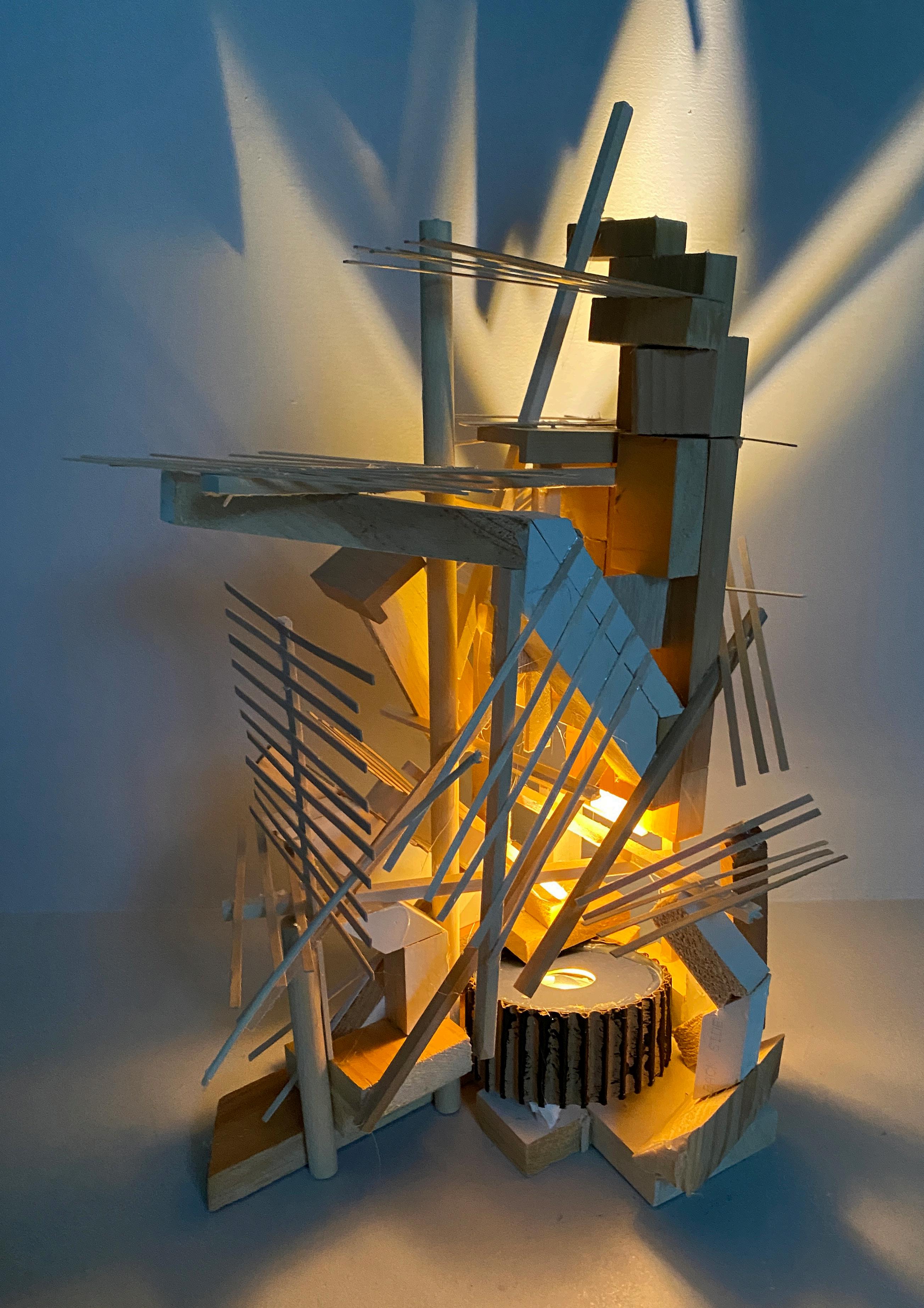
 By ChristianLarkin’23
By ChristianLarkin’23
Celebrating a decade of publications, the theme for this year’s Babel edition, “Illuminating Words through the Ages” is meant to celebrate the ability of language and literature to unify and transcend time.
Babel || 2023 || Volume No.10
Brunswick School
100 Maher Avenue
Greenwich, CT 06830
https://www.brunswickschool.org/
Babel, a Brunswick School literary magazine, presents the works of upper school students from Brunswick School and Geenwich Academy. The objective of Babel is to draw upon the diverse language skillset of our student body to demonstrate the power of language to break down barriers and provide a gateway to better understand the diverse cultures of the world around us. Art is often paired to compliment and enhance the literature presented. We believe that Babel is a testament to our students’ love of language and culture.
This year’s editorial staff consisted of five students and two chief faculty advisers from Brunswick School. The literary editors of Babel review each submission for quality and accuracy. Pieces are ultimately selected based on general quality, accuracy of translations and creativity of original works. Each student contributor is tasked with certain parts of the magazine, such as editing literary pieces and formatting. Students and faculty work together on editing and modifying the final content of the Babel literary magazine.
Babel Volume No. 10 consists of 54 student submissions of literature, 64 submissions of original art and is divided into six chronological periods of literary history and one section of original student works. Literature and art are paired according to relevance.This year’s volume includes brief biographies of the literary masters represented and translated to provide further language and literary context.
Importantly, the layout and the graphic design for the Babel publication is completely created by the students and does not rely on outside sources. Furthermore, Brunswick School does not offer a journalism program and therefore students must find time outside of their academic, athletic and club commitments to work on the Babel literary magazine.
The 2022-2023 editorial staff of Babel created Volume No. 10 using InDesign, Retro Proposal Layout. The text is primarily set in PT Sans Narrow. Volume No. 9, published in Pages (Apple), and Volumes No. 1-8, published in iBooks electronic format, can be viewed on Apple computers and devices.
The 128 pages of Babel Volume No. 10 were printed on 80 pound Blazer Silk stock with 100 pound Blazer Silk stock for the cover. Distribution of the publication is free.
The content of Babel literary magazine is protected by applicable copyright laws.
First and foremost, the chief faculty advisers, Ms. Mimi Melkonian and Dr. Nicholas Salazar, wish to thank Mr. Thomas W. Philip, Brunswick’s overall Head of School and also Head of Brunswick’s Upper School, both for his gracious permission to launch Babel literary magazine so many years ago and for his continued support of the magazine. We also thank Sr. Jaime González-Ocaña and the teachers of the language department for their unwavering encouragement, support, and promotion of this literary magazine as well as Mr. Andrew Hall and the teachers of the art department for their creative support. Finally, we thank our student contributors who have all been integral in the creation of this edition of Babel.
* Any questions about Babel literary works should be directed to Chief Faculty Adviser, Mimi Melkonian: mmelkonian@brunswickschool.org
* Any technical questions about Babel artwork should be directed to Brunswick Upper School Chair of Visual Performing Arts, Andrew Hall: ahall@brunswickschool.org.
Sebastian Otero DeAngelis ’24
Thomas Ewald ’24
Bennett Klein ’24
Jack Morningstar ’24
Johnny Saunders ’24
Thomas Whidden ’24
Brian Freeman
Tucker Hastings
Alina Hoyos
Jaime González-Ocaña
Edward Romeyn
Lucia Sardi
Jing Wang
Andrew Hall
Jamie Fessenden
Mimi Melkonian
Nicholas Salazar
Silver Crown: 2015
Gold Medal: 2014
Gold Medal: 2015
Silver Crown: 2016
Gold Medal: 2016
Gold Crown: 2017
Gold Medal: 2017
Gold Medal: 2018
Silver Crown: 2019
Gold Medal: 2019
Silver Crown: 2020
Gold Medal: 2020
Gold Medal: 2021
» Maddie Azrak ’23
» Brielle Gold ’23
» Jack Neal ’23
» Campbell Officer ’23
» Carter Bagaria ’24
» Cole Cline ’24
» Thomas Coughlin ’24
» Connor Crosby ’24
» Roble Daniel ’24
» Brendan Davey ’24
» Sebastian DeAngelis ’24
» Hannah Dwyer ’24
» Grace Galvin ’24
» Jack Morningstar ’24
» Jake Murphy ’24
» James O’Connor ’24
» Andrew Rodriguez ’24
» Johnny Saunders ’24
» William Schmitz ’24
» Spencer Segura ’24
» Peyton Wolfram ’24
» Ben Wu ’24
» Michael Yeager ’24
» Ludo Berardi ’25
» Lisa Cabot ’25
» Jackson Choi ’25
» Katherine Feiner ’25
» Will Fels ’25
» Subir Garg ’25
» Leo Gazal ’25
» Rena Georgakopoulos-Ueta ’25
» Cosimo Giovine ’25
» Agustin Grether ’25
» Emily Hall ’25
» James Lych ’25
» Annison Mahaffy ’25
» Siena Sabitsana ’25
» Ryan Warner ’25
» Helena Borcherding ’26
» Bryan Dean ’26
» Hope Hyde ’26
» Katherine Maliakal ’26
» Henry Mayerfield ’26
» Felicity McCormack ’26
» Fin Sargent ’26
» Roby Sickles ’26
» Miles Barakett ’23
» DJ Cook ’23
» Jack Karst ’23
» Christian Larkin ’23
» Scott Raissis ’23
» Leo Simon ’23
» Trip Williams ’23
» Sebastian DeAngelis ’24
» Charlie Gayner ’24
» Gunner Gregory ’24
» Carter Hall ’24
» Lee Huffard ’24
» Luc Lampert ’24
» Tucker MacLean ’24
» Bo MacNaughton ’24
» Kieran Raker ’24
» Zane Saad ’24
» Ryan Wachtel ’24
» Michael Yeager ’24
» Ben Atkinson ’25
» Anden Boulan ’25
» John Buttafuoco ’25
» Arnez Dowe ’25
» Will Fels ’25
» Oscar Geren ’25
» Kody Horton ’25
» Sean Kelly ’25
» Zara Kurbanov ’25
» James Lehrman ’25
» Ollie Leonard ’25
» Inacio Miranda ’25
» Hannah Murray ’25
» Patrick O’Donohue ’25
» Jacob Pelham ’25
» Sean Ryan ’25
» Fritz Smith ’25
» Will Sullivan ’25
» James Walker ’25
 FILTER
FILTER

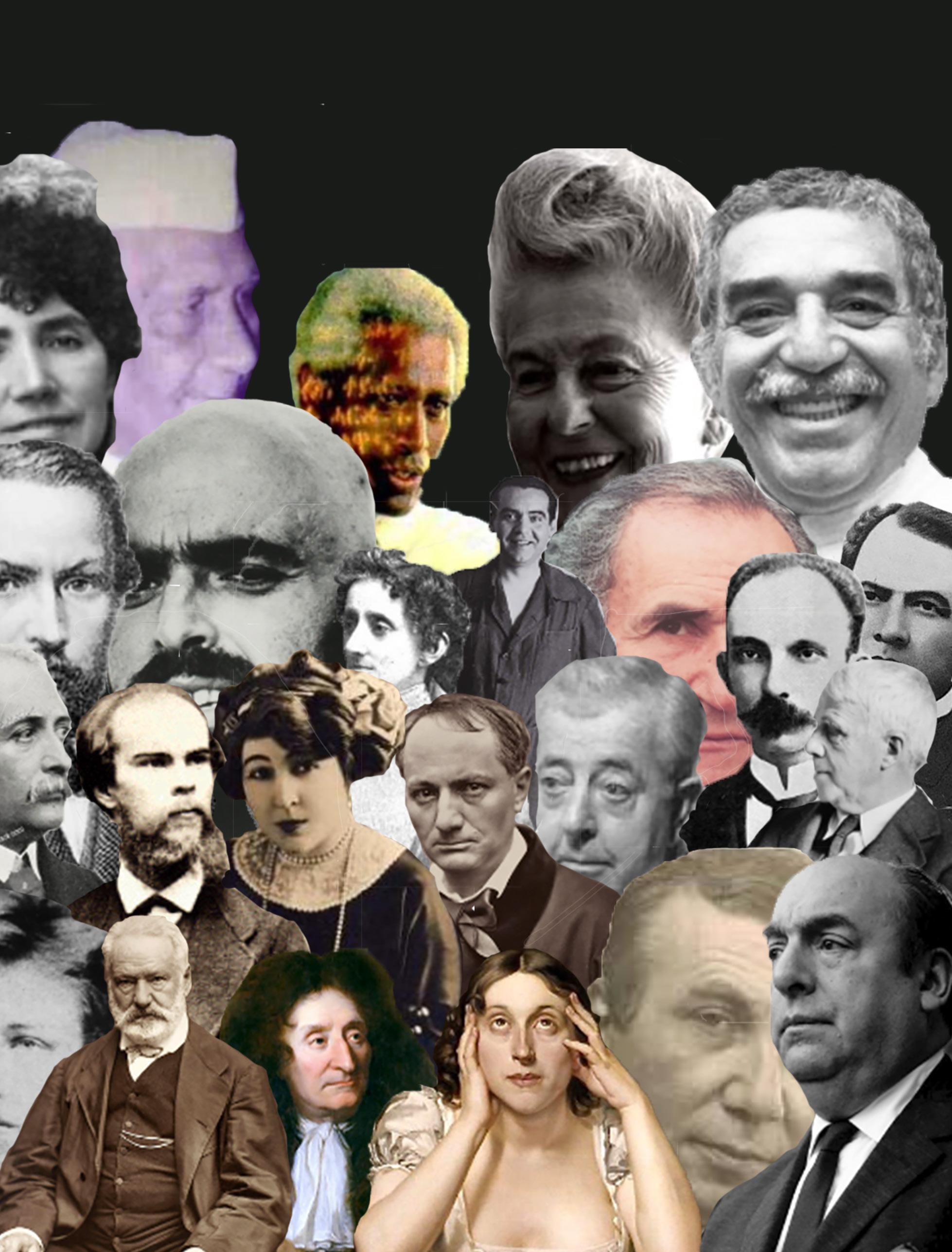 By SebastianDeAngelis’24
By SebastianDeAngelis’24
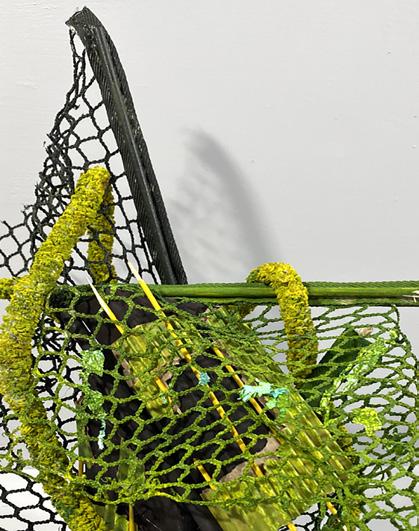
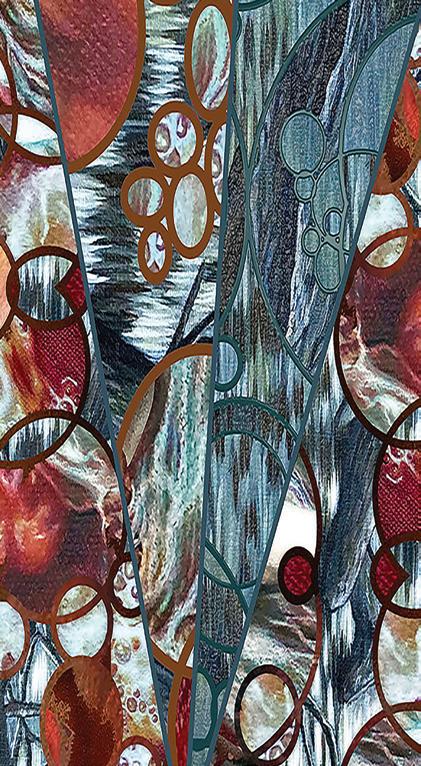
462BC: ANCIENT GREEK

Starting on page 15
» 462 BC: Selection from Pindar’s Isthmian Odes 1 (Ancient Greek) / Andrew Rodriguez ’24 / p. 16
1800-1849: ROMANTICISM
Starting on page 25
1650s: NEOCLASSICISM
Starting on page 19
» 1668: “Le Corbeau et le Renard” by Jean de La Fontaine (French) / Felicity Mccormack ’26 / p. 20-21
» 1843: “Canção do Exílio” by Gonçalves Dias (Brazilian) / Bryan Dean ’26 / p. 26-27
» 1848: “Les Roses de Saadi” by Marceline Desbordes-Valmore (French) / Hope Hyde ’26 / p. 28
» 1856: “Demain, dès l’aube” by Victor Hugo (French) / Cosimo Giovine ’25 / p. 30-31
» 1861: “L’Albatros” by Charles Baudelaire (French) / Roby Sickles ’26 / p. 32
1850-1899: SYMBOLISM & REALISM
Starting on page 35
» 1866: “Chanson d’automne” by Paul Verlaine (French) / Agustin Grether ’25 / p. 36
» 1870: “Le Dormeur du Val” by Arthur Rimbaud (French) / Helena Borcherding ’26 / p. 39
» 1880: “Negra Sombra” by Rosalía de Castro (Gallego) / Sebastian DeAngelis ’24 / p. 40-41
» 1880s: “Árbol de mi alma” by José Martí (Cuban) / Katherine Feiner ’25 / p. 42
» Late 1800s: “Castelli in Aria” by Achille Tedeschi (Italian) / Bryan Dean ’26 / p. 44-45
» 1889: “Bonne Année” by Rosemonde Gérard (French) / Katherine Maliakal ’26 / p. 46
1900-1949: MODERNISM
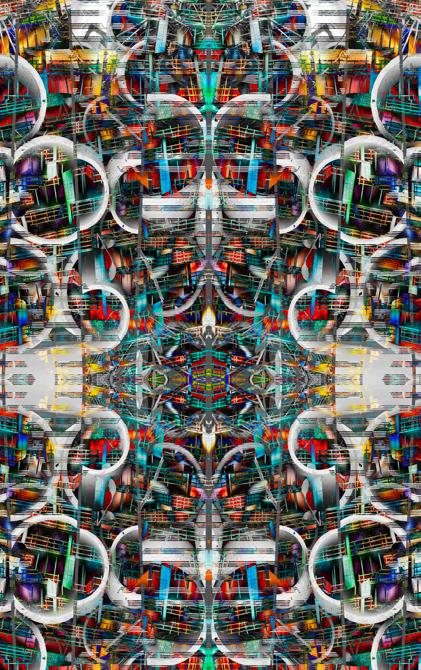
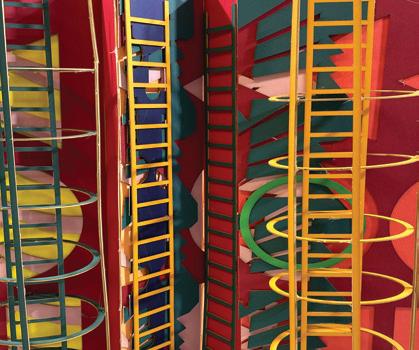

Starting on page 49
» 1891: “Cultivo una Rosa Blanca” by José Martí (Cuban) / Connor Crosby ’24 / p. 51
» 1900: “The Bridge Builder” by Will Allen Dromgoole (American) / Campbell Officer ’23 / p. 52-53
» 1903: “La Pioggia nel Pineto” by Gabriele D’Annunzio (Italian) / Rena Georgakopoulos-Ueta ’25 / p. 54
» 1900s: “Cuando Llegues a Amar” by Rubén Darío (Nicaraguan) / Thomas Coughlin ’24 / p. 57
» 1900s: “Al Claro de Luna” by Delmira Agustini (Uruguayan) / Will Fels ’25 / p. 58
» 1909: “¡Pobre alma sola!, no te entristezcas” by Rosalía de Castro (Gallego) / Ludo Berardi ’25 / p. 59
» 1912: “Caminante, No Hay Camino” by Antonio Machado (Spanish) / Annison Mahaffy ’25 / p. 60
» 1915: “The Road Not Taken” by Robert Frost (American) / Jake Murphy ’24 / p. 61
» 1924: “Me Gustas Cuando Callas” by Pablo Neruda (Chilean) / Jackson Choi ’25 / p. 62
» 1920s: “Es Verdad” by Federico García Lorca (Spanish) / Ryan Warner ’25 / p. 65
» 1900s: “Piedra Negra Sobre Una Piedra Blanca” by César Vallejo (Peruvian) / Carter Bagaria ’24 / p. 66
» 1945: “Les Feuilles Mortes” by Jacques Prévert (French) / James Lych ’25 / p. 68-69
1850-CURRENT: POST-MODERN
Starting on page 71
» 1960: “Soneto XVII” by Pablo Neruda (Chilean) Siena Sabitsana ’25 / p. 72-73
» Unknown Date: “ዝመጽእ ወለዶ / The Next Generation” by Dr. Reesom Haile (Tigrinya) Roble Daniel ’24 / p. 75
» Unknown Date: “
” by Sohanlal Dwivedi (Hindi) / Subir Garg ’25 / p. 76
» 1950-1990: “Movimiento” by Octavio Paz (Mexican) / Subir Garg ’25 / p. 79
» 1970: “اكلم اموي نكا مل / I Never Was a King” by Nizar Qabbani (Arabic) / Jack Neal ’23 / p. 80
» Unknown Date: “Desde Mi Pequeña Vida” by Margarita Carrera (Guatemalan) / Brendan Davey ’24 / p. 81
» 1970s: “رحبلا لوخد دنع / On Entering The Sea” by Nizar Qabbani (Arabic) / Jack Neal ’23 / p. 82
» 1970s: “ءاملا تحت نم ةلاسر / Letters from Under the Sea” by Nizar Qabbani (Arabic) / Jack Neal ’23 / p. 83
» ~1973: “Un Perro ha Muerto” by Pablo Neruda (Chilean) / Emily Hall ’25 / p. 84
» 1974: “Where the Sidewalk Ends” by Shel Silverstein (American) Peyton Wolfram ’24 / p. 87
» Unknown Date: “فيصلا مايأ يف / In the Summer” by Nizar Qabbani (Arabic) / Leo Gazal ’25 / p. 88
» 2007: “Si Supiera” by Gabriel García Márquez (Colombian) / William Schmitz ’24 / p. 91
Starting on page 93
ARABIC
» “Diana” by Jack Neal ’23 / p. 94
CHINESE
» “我想变 / I want to become…” by Fin Sargent ’26 / p. 96
» “我发现 / I discover” by Cole Cline ’24 / p. 99
» “我有 / I have” by Michael Yeager ’24 / p. 101
» “太阳朋友 / Sun my friend” by James O’Connor ’24 / p. 102
GREEK » “Χορός των φλογών/Dance of the Flames” by Rena Georgakopoulos-Ueta ’25 / p. 104
HEBREW » “לכה

םירשקה / The Connections in Everything” by Henry Mayerfield ’26 / p. 105
» “Freixo” by Sebastian DeAngelis ’24 / p. 106-107
SPANISH
» Untitled by Hannah Dwyer ’24 / p. 108-109
» América Latina by Jack Morningstar ’24 / p. 111
» “Trece Maneras de Mirar el Sol” by Spencer Segura ’24 / p. 112-113
» “Recuerdo” Grace Galvin ’24 / p. 114
» “La Maldición de la Vida” by Johnny Saunders ’24 / p. 115
» “Despedida” by Johnny Saunders ’24 / p. 115
» “La Caída Vuelve a Bajar” by Ben Wu ’24 / p. 116-117
» “Eres lo que Comes” by Maddie Azrak ’23 / p. 118
» “Explosión” by Brielle Gold ’23 / p. 121
» “¿Porque perfecto?” by Lisa Cabot ’25 / p. 122
Front Cover:
Back Cover:
Beam/ Laser Cut Matboard, Lighting / Will Fels ’25. This piece speaks to this year’s theme, “Illuminating Words through the Ages.”
Faces/ Photo Collage / Sebastian DeAngelis ’24. This piece is an ode to the literary masters translated in Babel Volume No. 10. Photos were sourced from stock photos on the Internet.
» Timepiece/ Laser Cut Matboard / Carter Hall ’24
» Hope/ Wood, Lighting / Will Fels ’25
» Retina/ Laser Cut Matboard / Christian Larkin ’23
» Filter/ Laser Cut Matboard / Lee Huffard ’24
» Faces/ Photo Collage / Sebastian DeAngelis ’24
» Rubble/ Mixedmedia /Trip Williams ’23
» Flow (left) ||Clarity (right) / Acrylic / Zara Kurbanov ’25
» Harvest/ Mixedmedia /Ryan Wachtel ’24
» Wings/ Laser Cut Matboard / Will Fels ’25
» Bosque/ Wood / John Buttafuoco ’25
» Potential/ Laser Cut Matboard / Ben Atkinson ’25
» Canopy/ Cardboard / Miles Barakett ’23
» Fragments/ Mixedmedia / Trip Williams ’23
» Dawn/ Wood / Michael Yeager ’24
» Flight/ Mixedmedia / Oscar Geren ’25
» TheCatch/ Mixedmedia / Sebastian DeAngelis ’24
» Rhythm/ Laser Cut Matboard, Wood / Kody Horton ’25
» LeafPile/ Laser Cut Wood / Jack Karst ’23
» Awakening/ Mixedmedia / Arnez Dowe ’25
» Twilight/ Mixedmedia / Leo Simon ’23
» Dawn/ Photography / Sebastian DeAngelis ’24
» Gloaming/ Laser Cut Matboard, Lighting / Will Fels ’25
» Shine/ Photography / Sebastian DeAngelis ’24
» Oscillation/ Mixedmedia / Oscar Geren ’25
» GardenofLife/ Laser Cut Mixedmedia / Luc Lampert ’24
» TheCrossing/ Laser Cut Matboard / Lee Huffard ’24
» Prism/ Mixedmedia / Arnez Dowe ’25
» Inferno/ Mixedmedia / James Lehrman ’25
» LaLuna/ Photography / Sebastian DeAngelis ’24
» Divergence/ Mixedmedia/ Inacio Miranda ’25
» Harmony/ Laser Cut Matboard / James Walker ’25
» Horizon/ Laser Cut Mixedmedia / Ollie Leonard ’25
» Convergence/ Laser Cut Matboard / Kody Horton ’25
» Memories/ Laser Cut Mixedmedia / Luc Lampart ’24
» Kaleidoscope/ Acrylic / Zara Kurbanov ’25
» Metamorphosis/ Laser Cut Matboard / Anden Boulan ’25
» GearsofTime/ Laser Cut Matboard / Sean Ryan ’25
» Atlas/ Laser Cut Matboard / Gunner Gregory ’24
» TimeisTicking/ Laser Cut Matboard / Sean Kelly ’25
» PearlsoftheSea/ Pastel / Zara Kurbanov ’25
» Serenity/ Pastel / Zara Kurbanov ’25
» Hodgepodge/ Mixedmedia / Bo MacNaughton ’24
» Scales/ Mixedmedia / Jacob Pelham ’25
» Ascension/ Laser Cut Matboard / DJ Cook ’23
» Tesselations/ Mixedmedia / Charlie Gayner ’24
» Heartbeat/ Mixedmedia / Scott Raissis ’23
» Dreams/ Laser Cut Matboard / Will Sullivan ’25
» MessageinaBottle/ Mixedmedia / Zane Saad ’24
» Passion/ Laser Cut Matboard / Michael Yeager ’24
» Picasso/ Laser Cut Mixmedia / Kieran Raker ’24
» Ablaze/ Cardboard / Fritz Smith ’25
» MyPapa/ Photography / Sebastian DeAngelis ’24
» Ocean’sBounty/ Mixedmedia / Anden Boulan ’25
» Reflections/ Mixedmedia / Hannah Murray ’25
» Rollercoaster/ Wood / Tucker MacLean ’24
» “Reel”Life/ Laser Cut Mixmedia / Sean Ryan ’25
» CaveFormations/ Laser Cut Mixmedia / Carter Hall ’24
» Ritual/ Pastel / Zara Kurbanov ’25
» Fuse/ Mixedmedia / Patrick O’Donohue ’25
» Escape/ Lasercut Matboard / Ben Atkinson ’25
» Life+Death/ Mixededia / Sebastian DeAngelis ’24
» Beacon/ Laser Cut Matboard, Lighting / Will Fels ’25
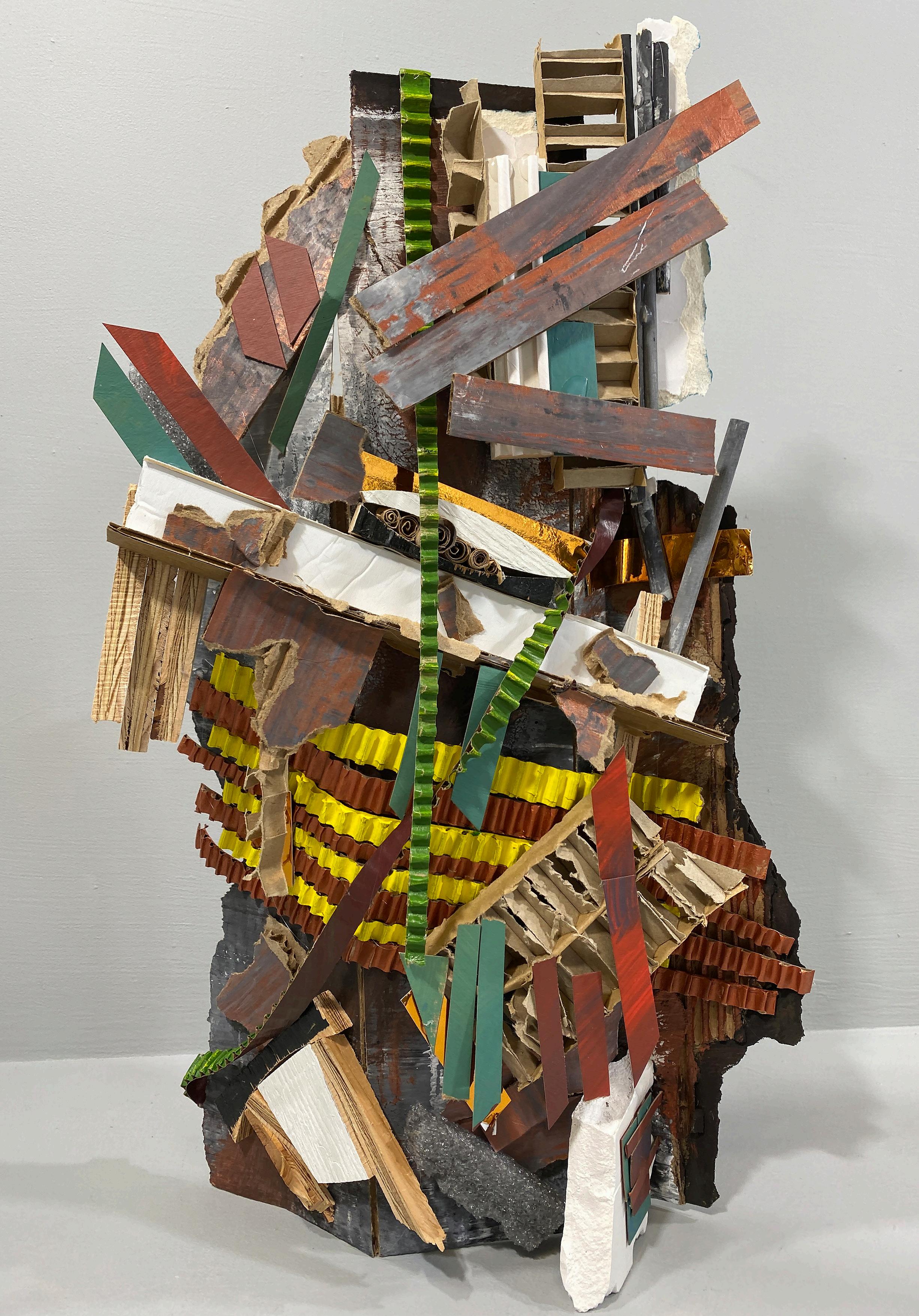
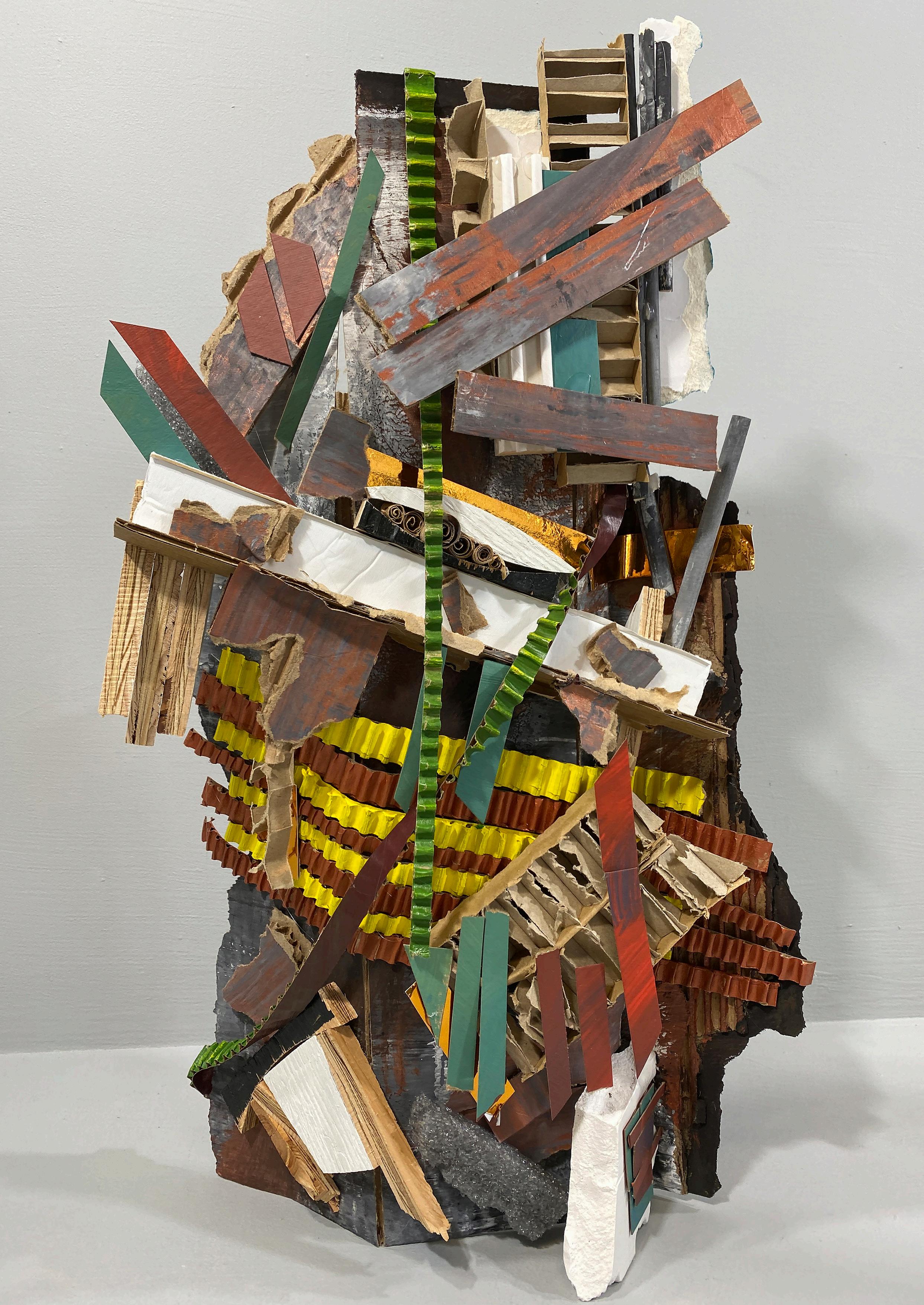
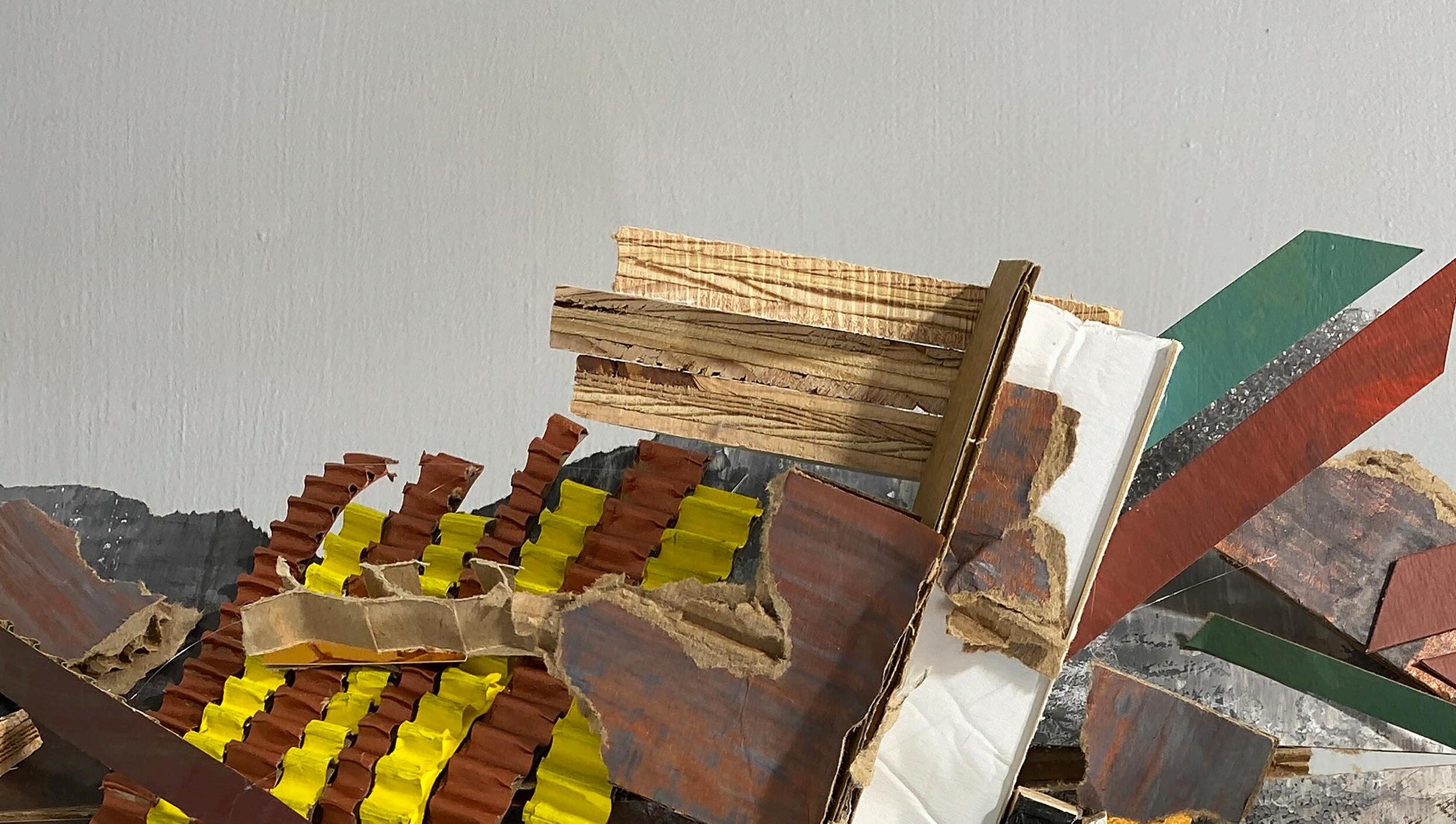
462 BC: Selection from Pindar’s “Isthmian Odes 1”
Translation by Andrew Rodriguez ’24
ὁ
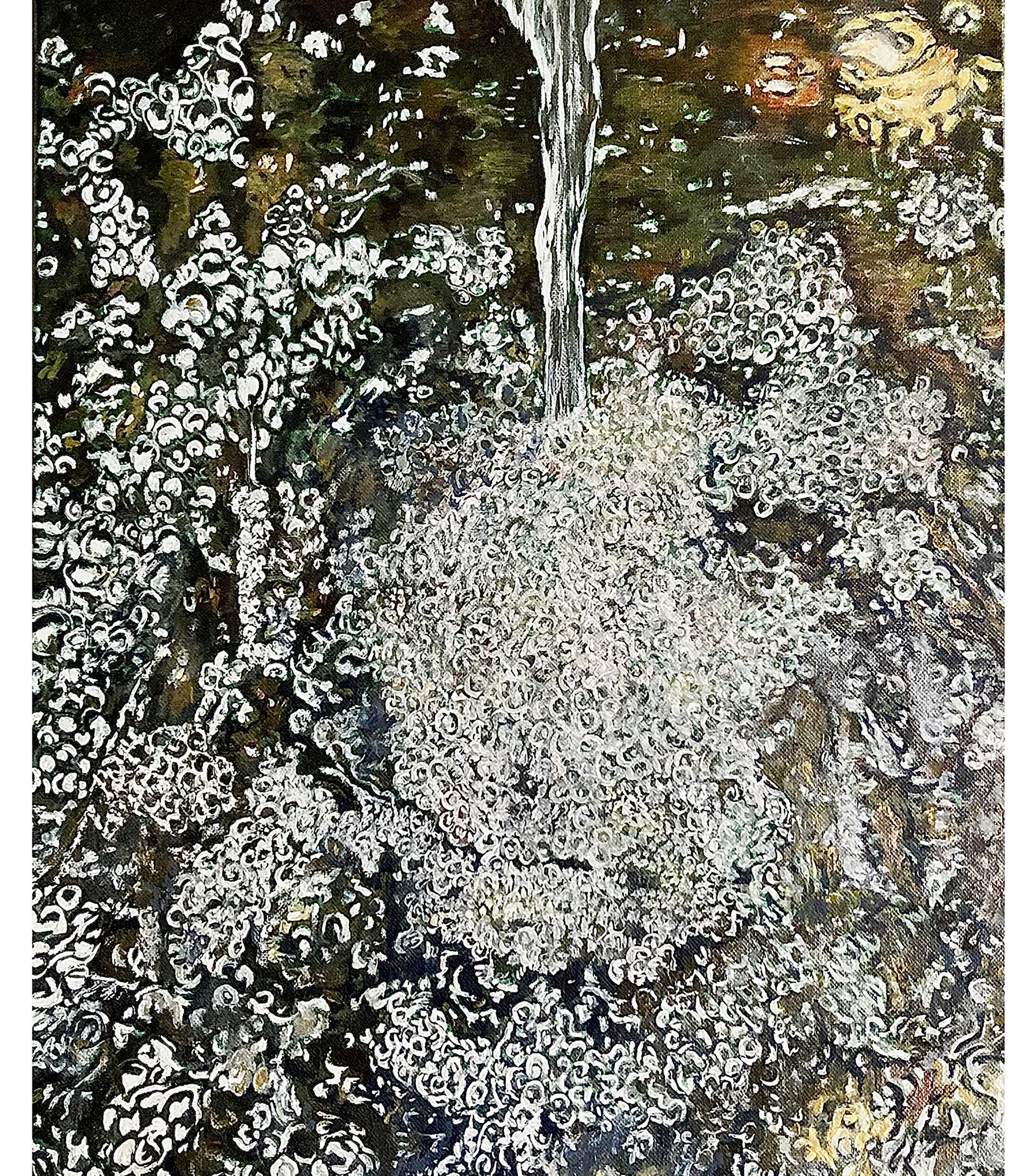
πονήσαις δὲ νόῳ καὶ προμάθειαν φέρει: εἰ δ᾽ ἀρετᾷ κατάκειται πᾶσαν ὀργάν, ἀμφότερον δαπάναις τε καὶ πόνοις, χρή νιν εὑρόντεσσιν ἀγάνορα κόμπον
μὴ φθονεραῖσι φέρειν γνώμαις.
ἐπεὶ κούφα δόσις ἀνδρὶ σοφῷ
ἀντὶ μόχθων παντοδαπῶν ἔπος εἰπόντ᾽
ἀγαθὸν ξυνὸν ὀρθῶσαι καλόν.
He who has suffered toils gains foresight in his mind. And if he expends all impulse for excellence, both in cost and in toils, it is necessary to grant manly praise without envious judgment to those finding greatness. For it is an easy gift for a wise man to say noble words in recompense for all kinds of hardship to promote the common good.
ABOUT THE AUTHOR:
Pindar’s Isthmian Odes 1 is a lyric poem that celebrates the victory of the athlete Herodotus of Thebes in the Isthmian Games, one of the four major Panhellenic games of ancient Greece. The poem is one of four surviving odes composed by Pindar for this occasion. In this selection, Pindar emphasizes the importance of striving for excellence and the value of hard work and discipline in achieving success.
 ZaraKurbanov’25
ZaraKurbanov’25
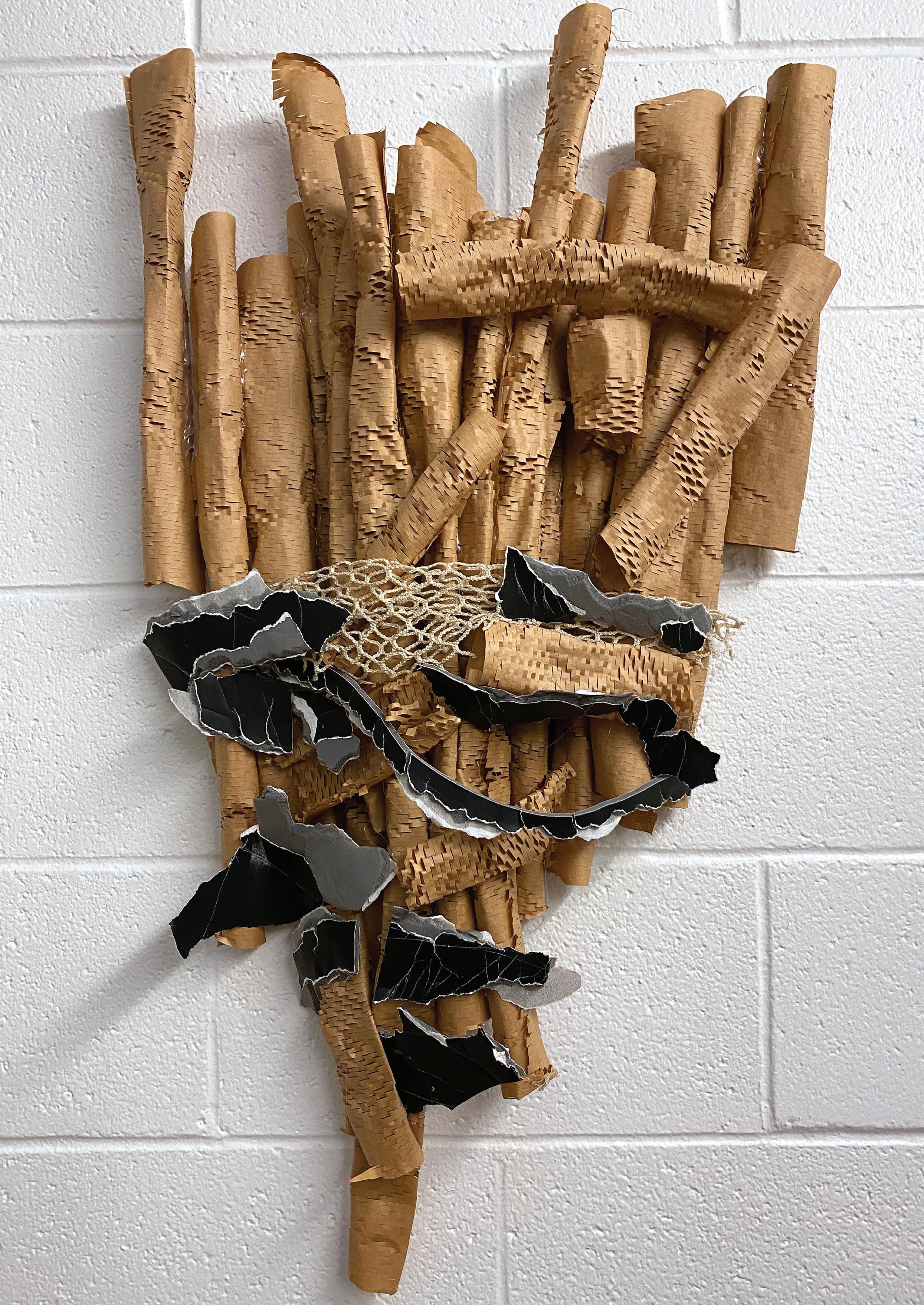
1668: “Le Corbeau et le Renard”
By Jean de La FontaineTranslation by Felicity Mccormack ’26

Maître Corbeau, sur un arbre perché, Tenait en son bec un fromage.
Maître Renard, par l’odeur alléché, Lui tint à peu près ce langage:
Hé! Bonjour, Monsieur du Corbeau. Que vous êtes joli! Que vous me semblez beau!
Sans mentir, si votre ramage Se rapporte à votre plumage, Vous êtes le phénix des hôtes de ces bois. A ces mots le corbeau ne se sent pas de joie;
Et, pour montrer sa belle voix, Il ouvre un large bec, laisse tombe sa proie.
Le renard s’en saisit, et dit: Mon bon monsieur, Apprenez que tout flatteur
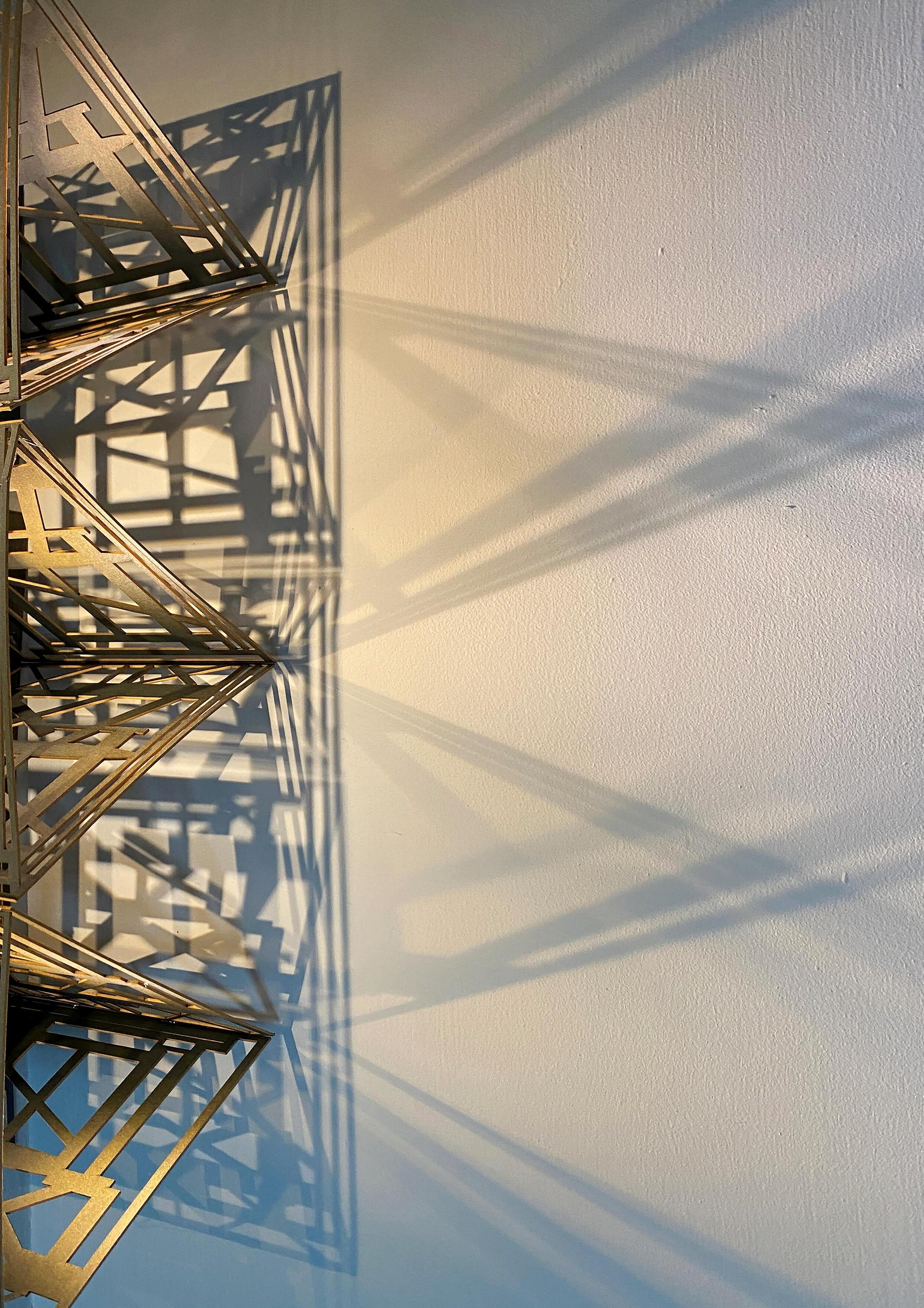
Vit aux dépens de celui qui l’écoute: Cette leçon vaut bien un fromage, sans doute.
Le corbeau, honteux et confus, Jura, mais un peu tard, qu’on ne l’y prendrait plus.
ABOUT THE AUTHOR:
Jean de La Fontaine (1621-1695) was one of the most widely read French poets of the 17th century. Most famous for his Fables, which provided a model across Europe. “Le Corbeau et le Renard”, an adaptation of Aesop’s Fables, was largely seen as a critique of Louis XIV’s French society.
Master Crow, perched on a tree, Was holding in its beak, a cheese.
Master Fox, enticed by the smell, He spoke to him more or less like this:
“Hey! Good morning, Mr. Crow. You are pretty! You look so beautiful to me!
I’m not lying, if your voice Is like your plumage, You are the phoenix of all the inhabitants of these woods.”
At these words, the crow is very happy; In order to show off his beautiful voice, He opened his beak wide and lets his prey fall.
The fox grabs the prey and says: “my good man, Learn that every flatterer
Lives at the expense of the person that listened to him This lesson, without doubt, is well worth the cheese.”
The crow, ashamed and embarrassed, Swore, that he would not take it again.
Translation by Felicity McCormack ’26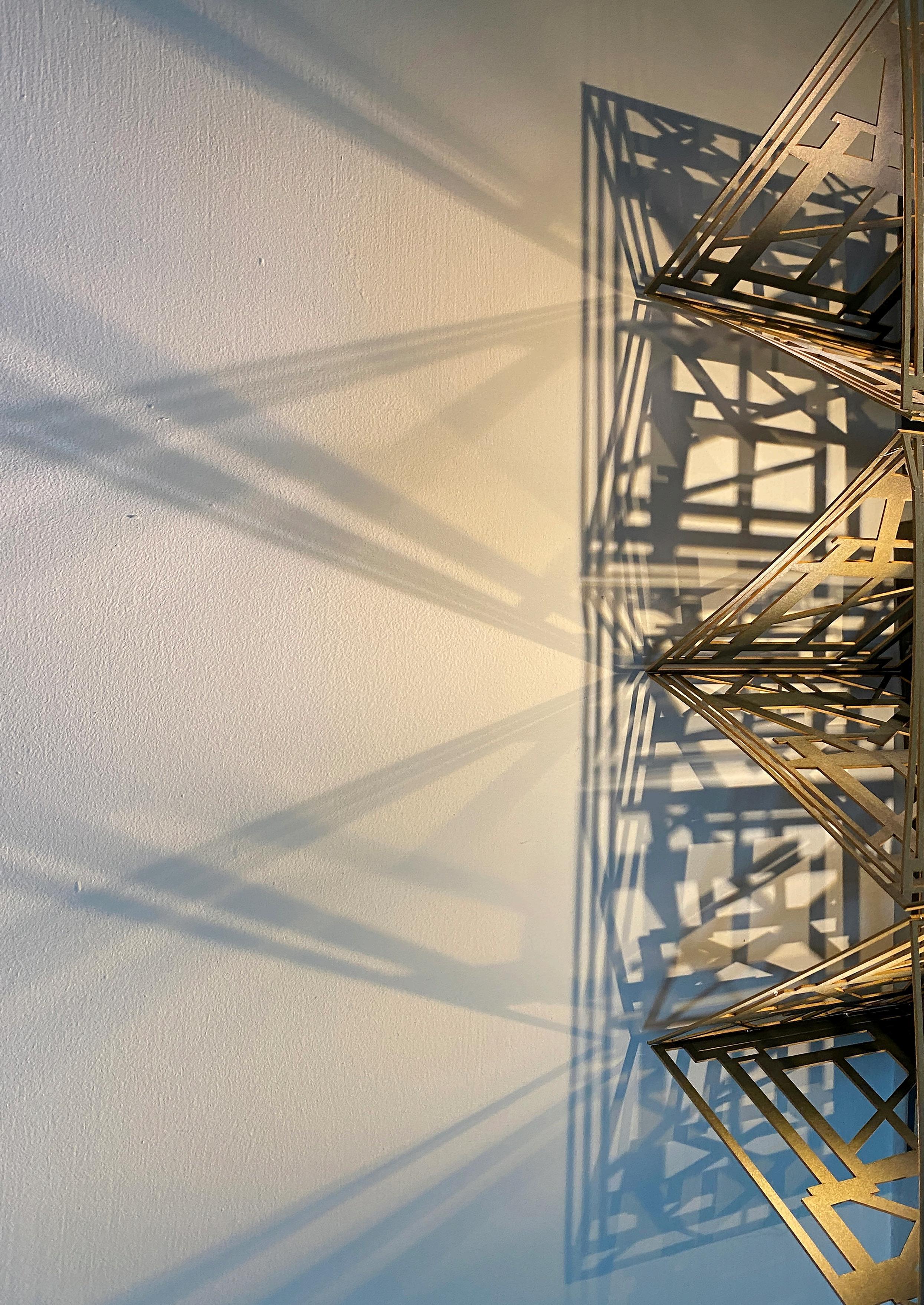 By WillFels’25
By WillFels’25
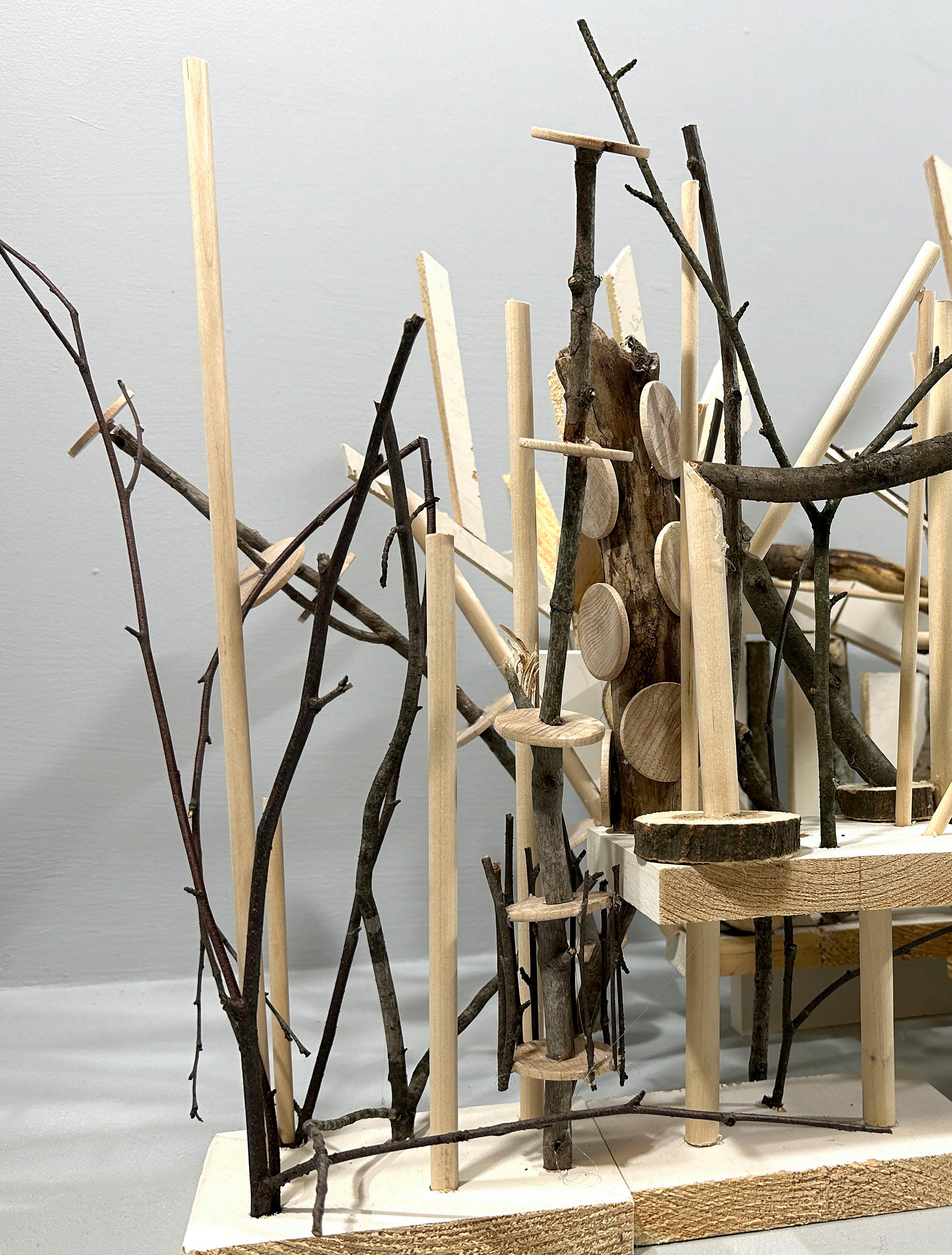 By JohnButtafuoco’25
By JohnButtafuoco’25
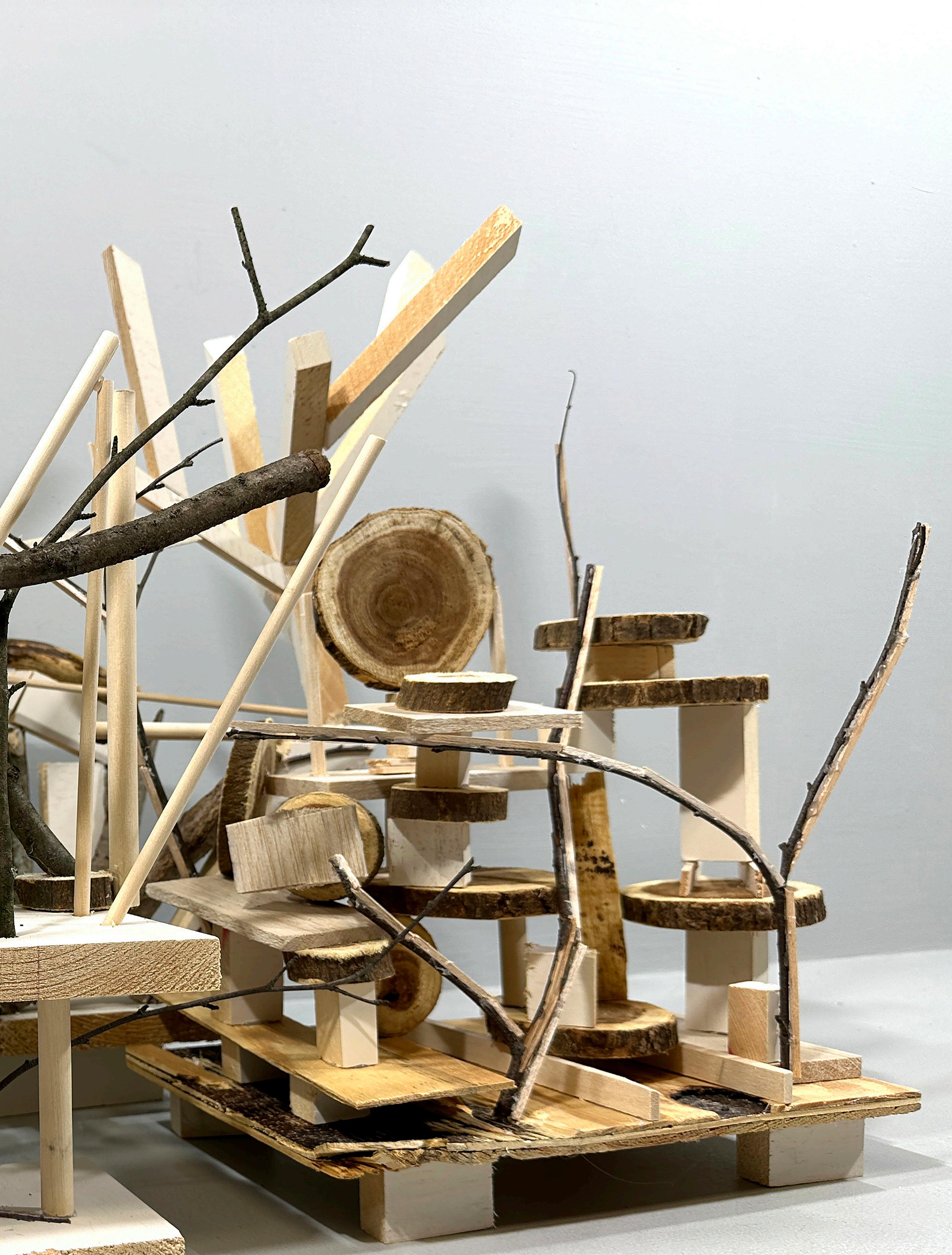
 By BenAtkinson’25
By BenAtkinson’25
1843: “Canção do Exílio”
By Gonçalves DiasTranslation by Bryan Dean ’26
1848: “Les Roses de Saadi”
By Marceline Desbordes-Valmore
Translation by Hope Hyde ’26
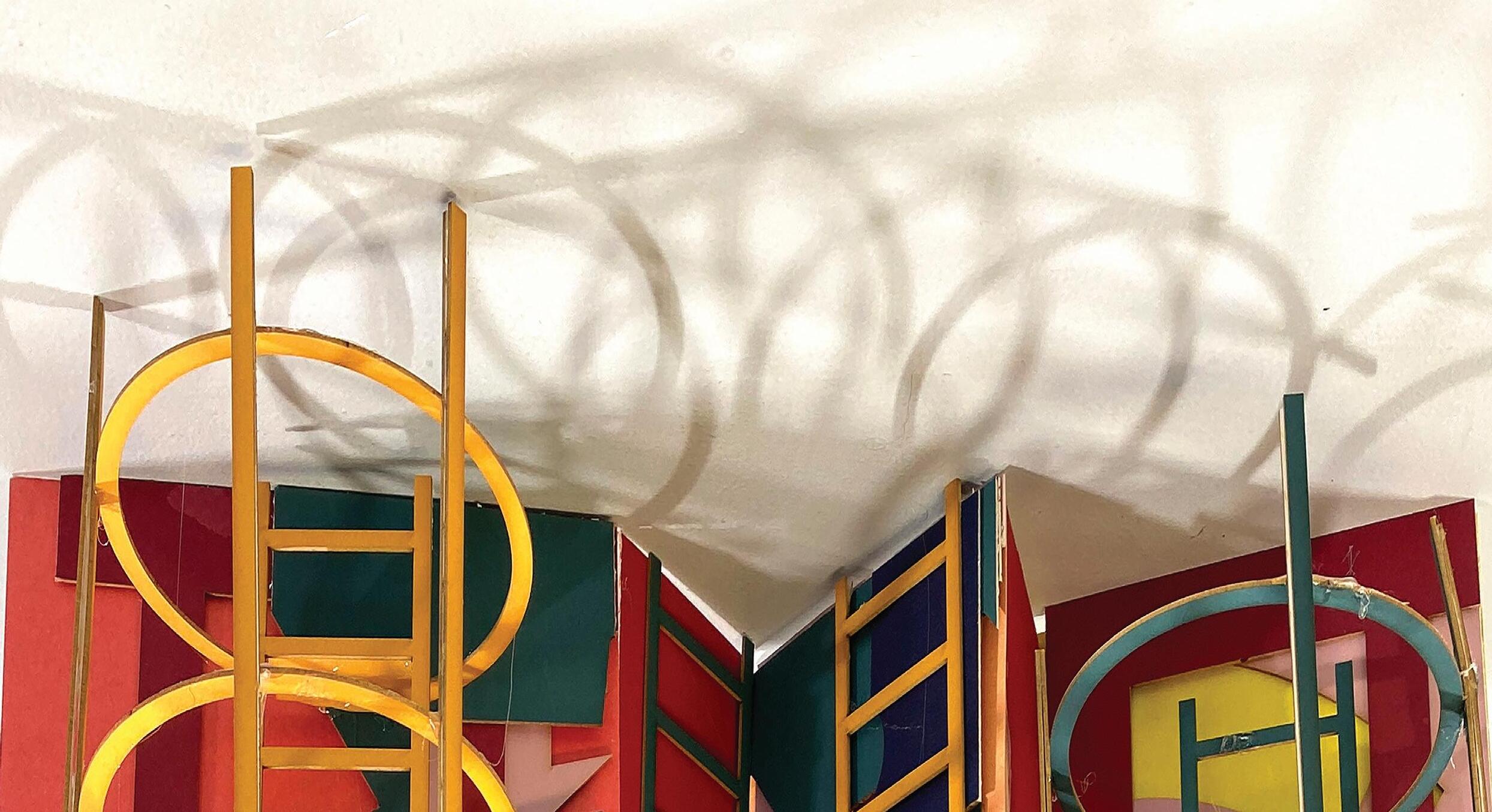
1856: “Demain, dès l’aube”
By Victor HugoTranslation by Cosimo Giovine ’25
1861: “L’Albatros”
By Charles BaudelaireTranslation by Roby Sickles ’26
Minha terra tem palmeiras, Onde canta o Sabiá: As aves, que aqui gorjeiam, Não gorjeiam como lá.
Nosso céu tem mais estrelas, Nossas várzeas têm mais flores, Nossos bosques têm mais vida, Nossa vida mais amores.
Em cismar, sozinho, à noite, Mais prazer eu encontro lá; Minha terra tem palmeiras, Onde canta o Sabiá.
Minha terra tem primores, Que tais não encontro eu cá; Em cismar, sozinho, à noite, Mais prazer eu encontro lá; Minha terra tem palmeiras, Onde canta o Sabiá.
Não permita Deus que eu morra, Sem que eu volte para lá; Sem que disfrute os primores Que não encontro por cá; Sem qu’inda aviste as palmeiras, Onde canta o Sabiá.
ABOUT THE AUTHOR:

Gonçalves Dias (1823- 1864) was a Brazilian poet best known for his nationalistic Brazilian romantic writing. “Canção do Exílio”, one of the most famous examples of Brazilian romanticism, captures the essence of Brazil in patriotic verses, and is even cited in the Brazilian national anthem. .


 Translation by Bryan Dean ’26
Translation by Bryan Dean ’26
My land has palm trees, Where the Sabiá sings: The birds that chirp here, Do not chirp like there.
Our sky has more stars, Our floodplains have more flowers, Our woods have more life, Our life more love.
In brooding, alone, at night, I found more pleasure there; My land has palm trees, Where the Sabiá sings. My land has beauty, That I cannot find here; In brooding, alone, at night, I found more pleasure there; My land has palm trees, Where the Sabiá sings.
God, do not let me die, Without returning there; Without enjoying the beauties That I cannot find here; Without even seeing the palm trees, Where the Sabiá sings.
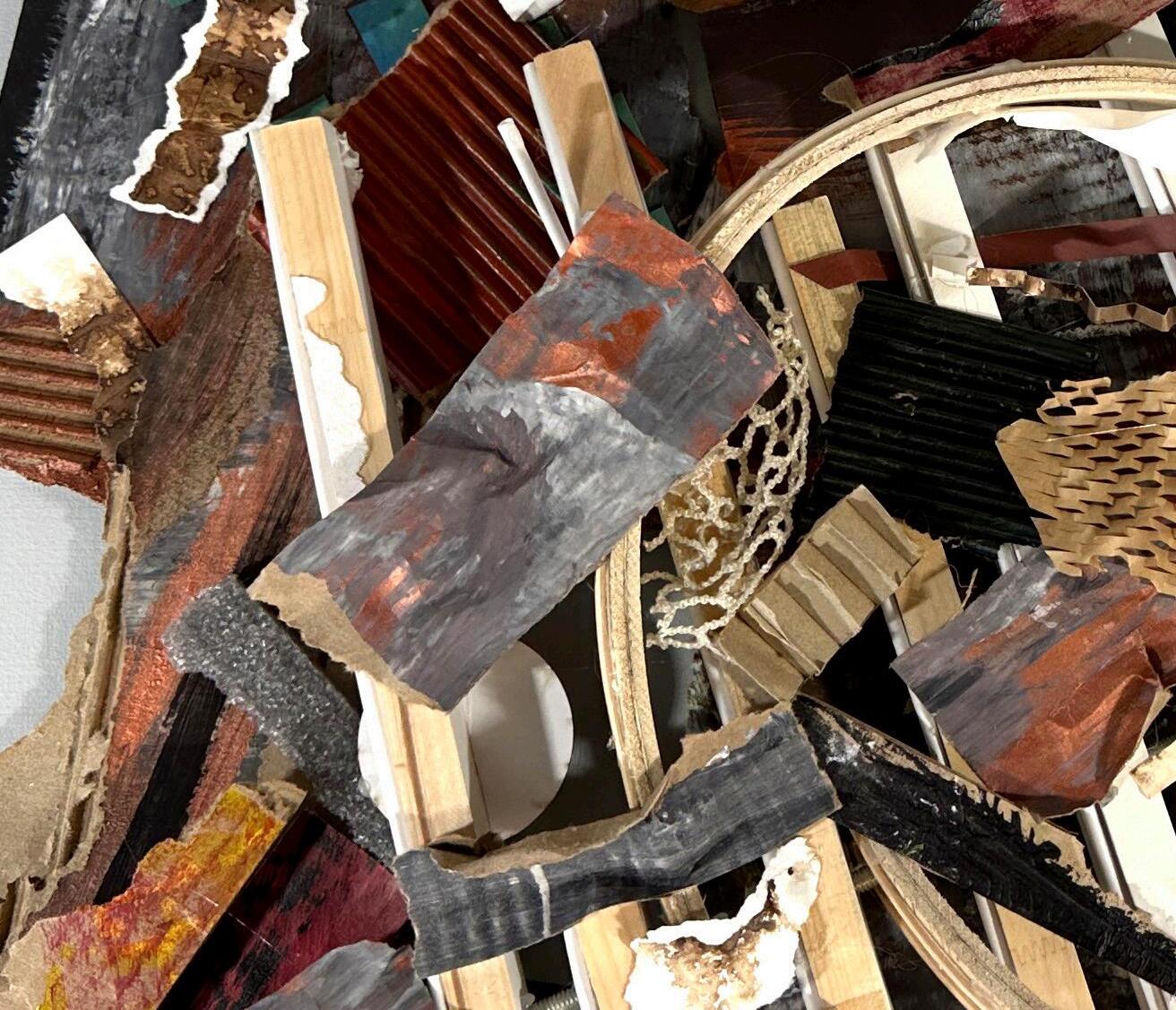 By Marceline Desbordes-Valmore, 1848
By Marceline Desbordes-Valmore, 1848
J’ai voulu ce matin te rapporter des roses; Mais j’en avais tant pris dans mes ceintures closes Que les noeuds trop serrés n’ont pu les contenir. Les noeuds ont éclaté. Les roses envolées Dans le vent, à la mer s’en sont toutes allées. Elles ont suivi l’eau pour ne plus revenir; La vague en a paru rouge et comme enflammée. Ce soir, ma robe encore en est tout embaumée… Respires-en sur moi l’odorant souvenir.
This morning I wanted to bring back roses; But I filled my belt with so much already That the knots squeezed tightly because I had so many. The knots burst. The roses flew through the sky In the wind, they were taken to the sea. They took to the water with no chance of getting them back; The waves appeared red like a blaze of fire. That night my dress still smelled of the roses... Breathing in the fragrant memory of them.
Translation by Hope Hyde ’26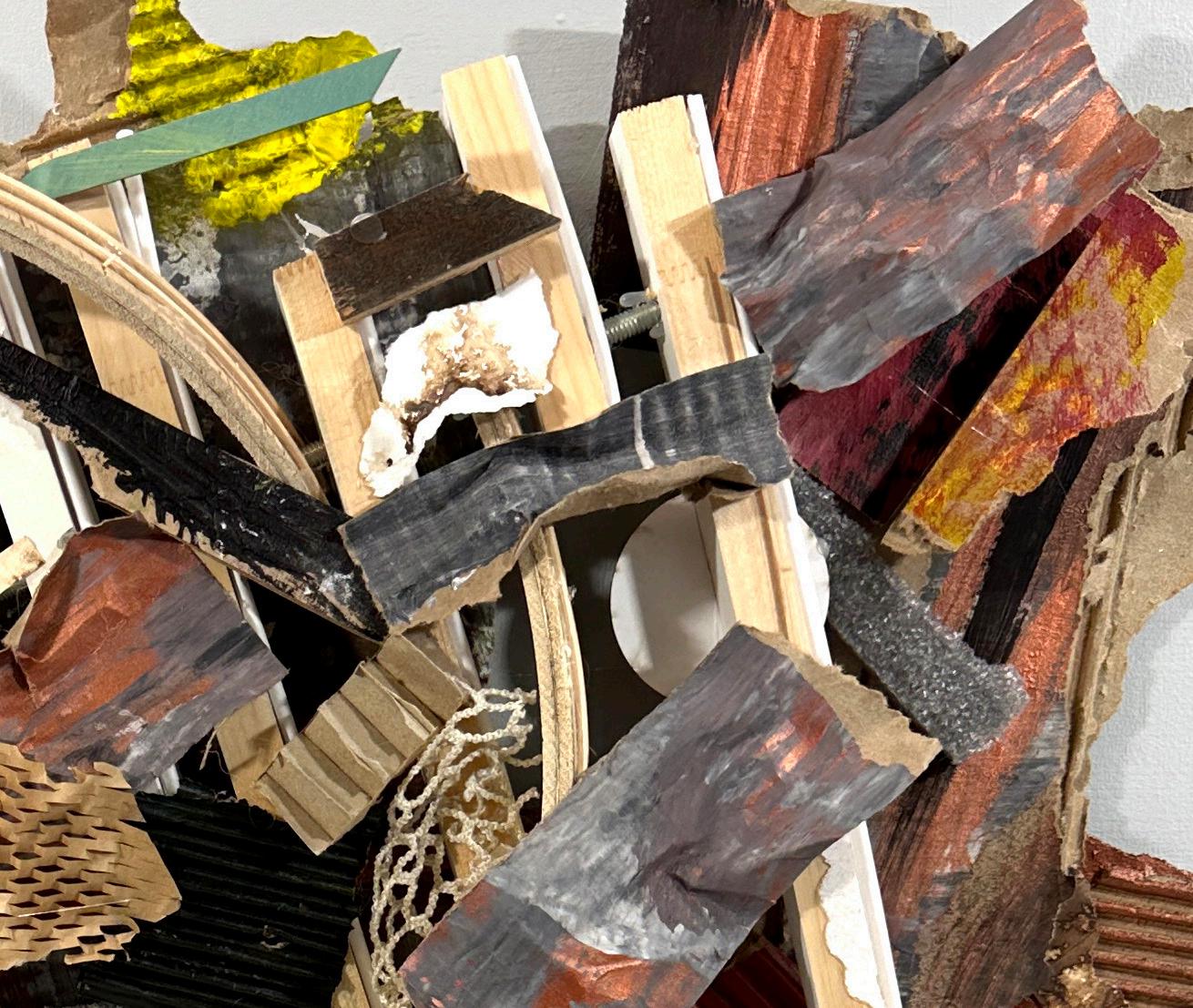
ABOUT THE AUTHOR:
Marceline Desbordes-Valmore (1786-1859) was a French novelist and poet. The romance poem “Les Roses de Saadi” was named after the Persian poet Saadi. These famously beautiful prose, published posthumously, follow the journey of roses from a belt to the sea and the memory they left behind.
By TripWilliams’23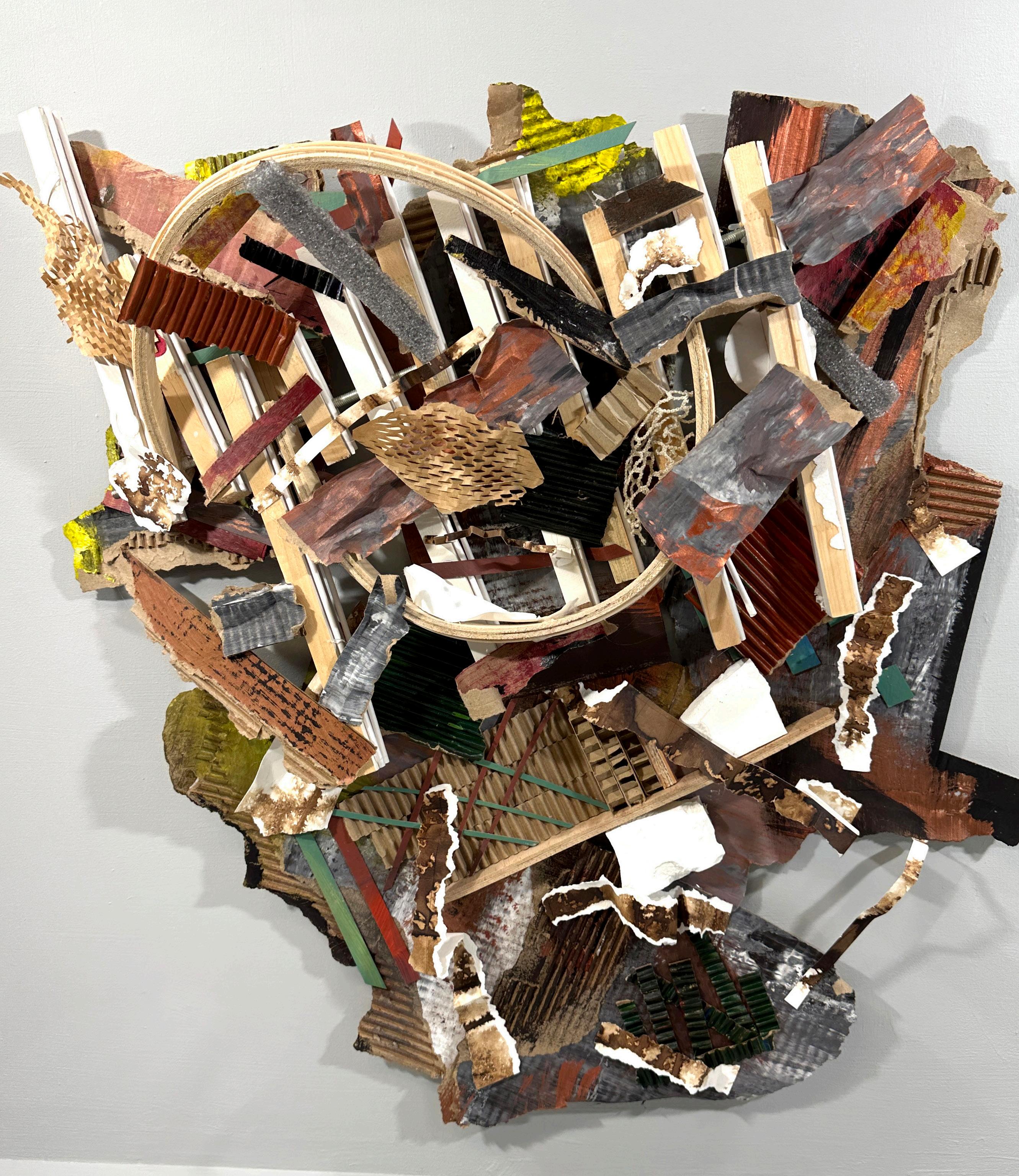
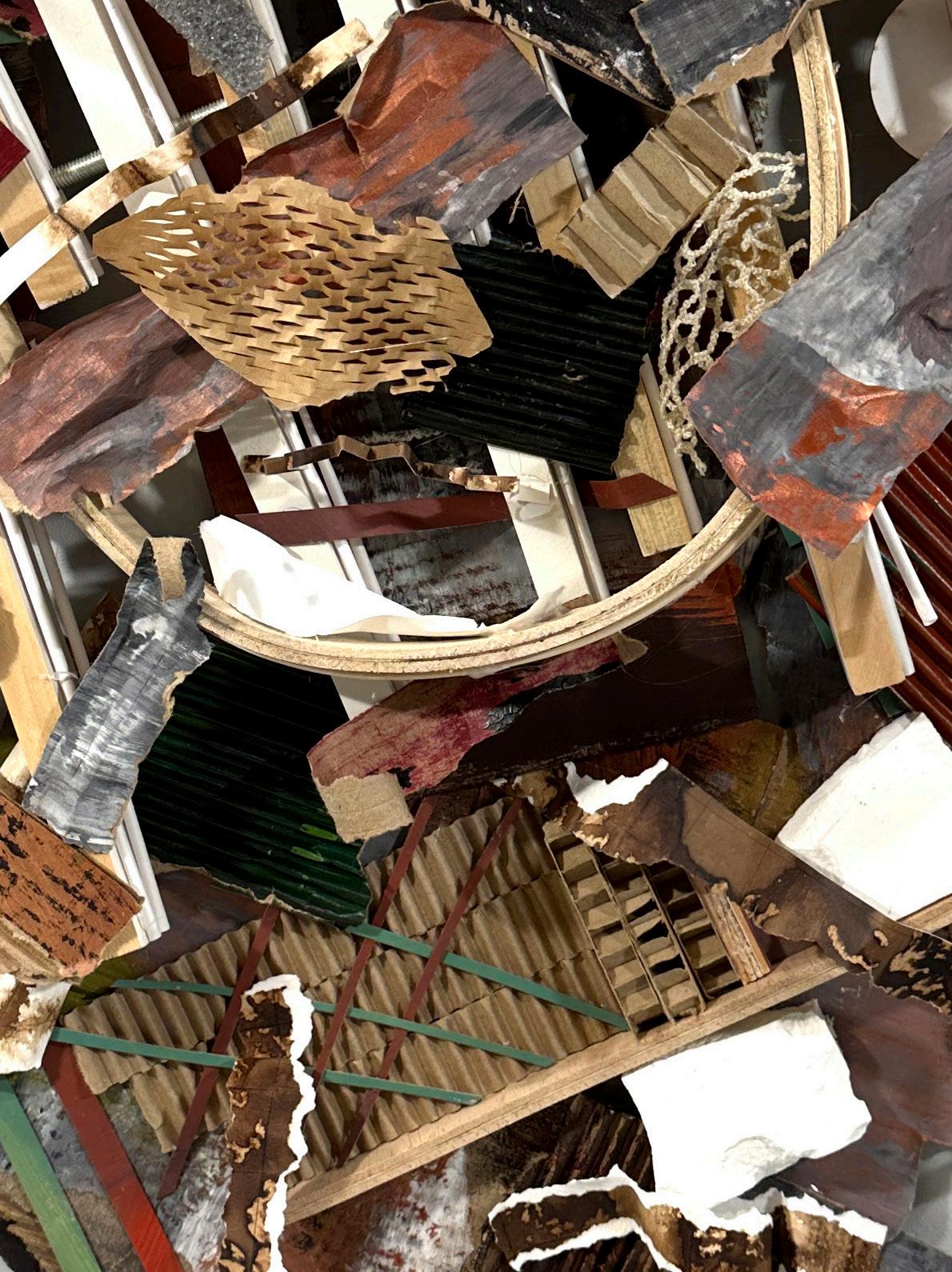
Demain, dès l’aube, à l’heure où blanchit la campagne, Je partirai. Vois-tu, je sais que tu m’attends. J’irai par la forêt, j’irai par la montagne. Je ne puis demeurer loin de toi plus longtemps. Je marcherai les yeux fixés sur mes pensées, Sans rien voir au dehors, sans entendre aucun bruit, Seul, inconnu, le dos courbé, les mains croisées, Triste, et le jour pour moi sera comme la nuit. Je ne regarderai ni l’or du soir qui tombe, Ni les voiles au loin descendant vers Harfleur, Et quand j’arriverai, je mettrai sur ta tombe Un bouquet de houx vert et de bruyère en fleur.
ABOUT THE AUTHOR:
Author of Les Misérables, Victor Hugo (1802-1885) is one of the most well-known French writers, and often considered on par with Dickens or Tolstoy. Possessing a melancholy typical of French poems, “Demain, dès l’aube” is a poignant account of grief, following Hugo as he visits the grave of his daughter.
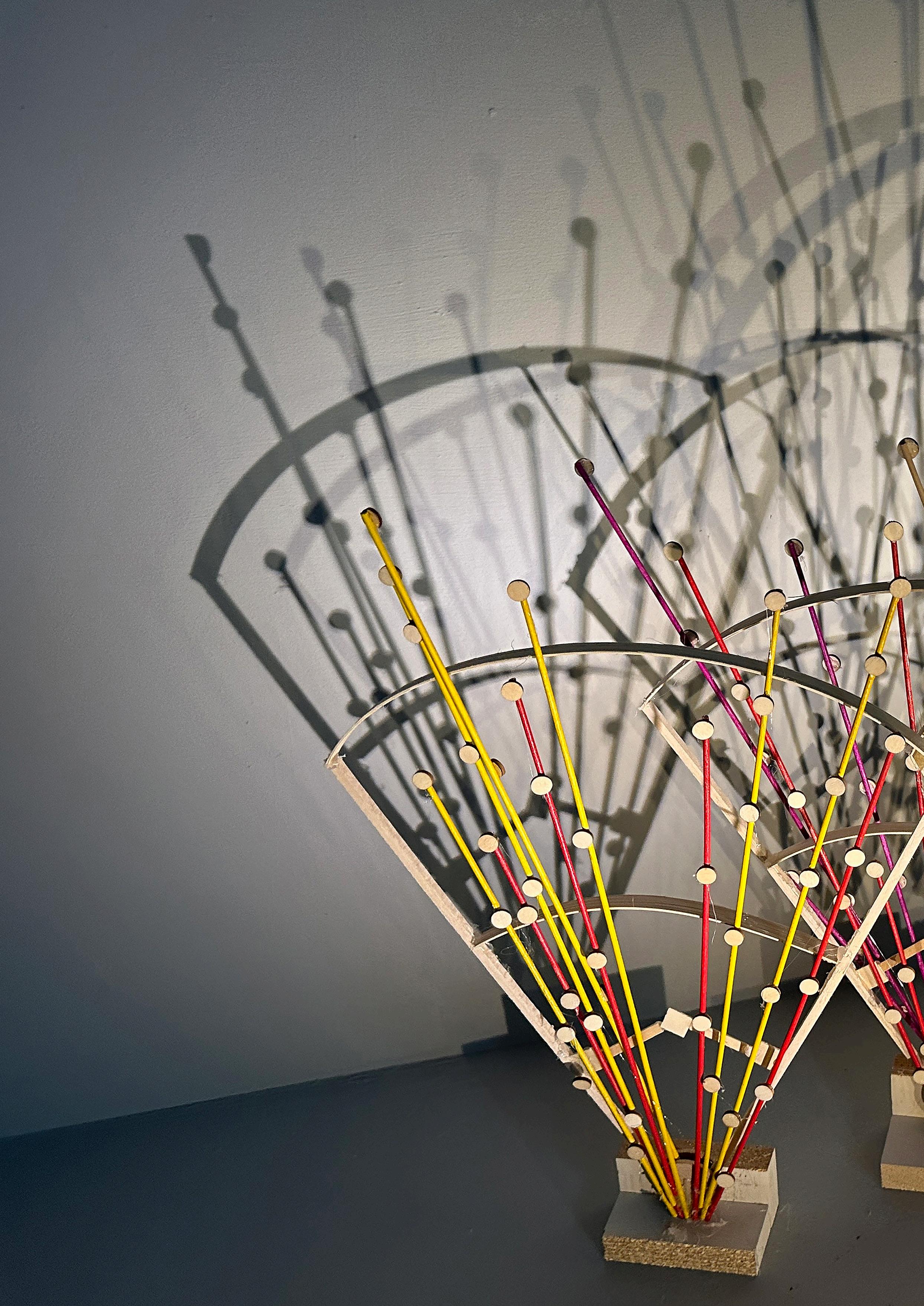
Tomorrow at dawn as the white blanket engulfs the countryside, I will leave comfortably knowing you are waiting for me to arrive. I will go through the forest and I will trek across the mountains. I cannot resist the pull you have on me anymore. I will walk while keeping my eyes fixated on my goals, Without being bothered, I will push through, Alone, unknown, back bent, my hands are braced, Sad, for me, the day will be like the night. I will not look at the gold of the falling evening, Nor the sails in the distance descending towards Harfleur, And when I arrive, I will have placed on your grave A bouquet of green holly and flowering heather.
Translation by Cosimo Giovine ’25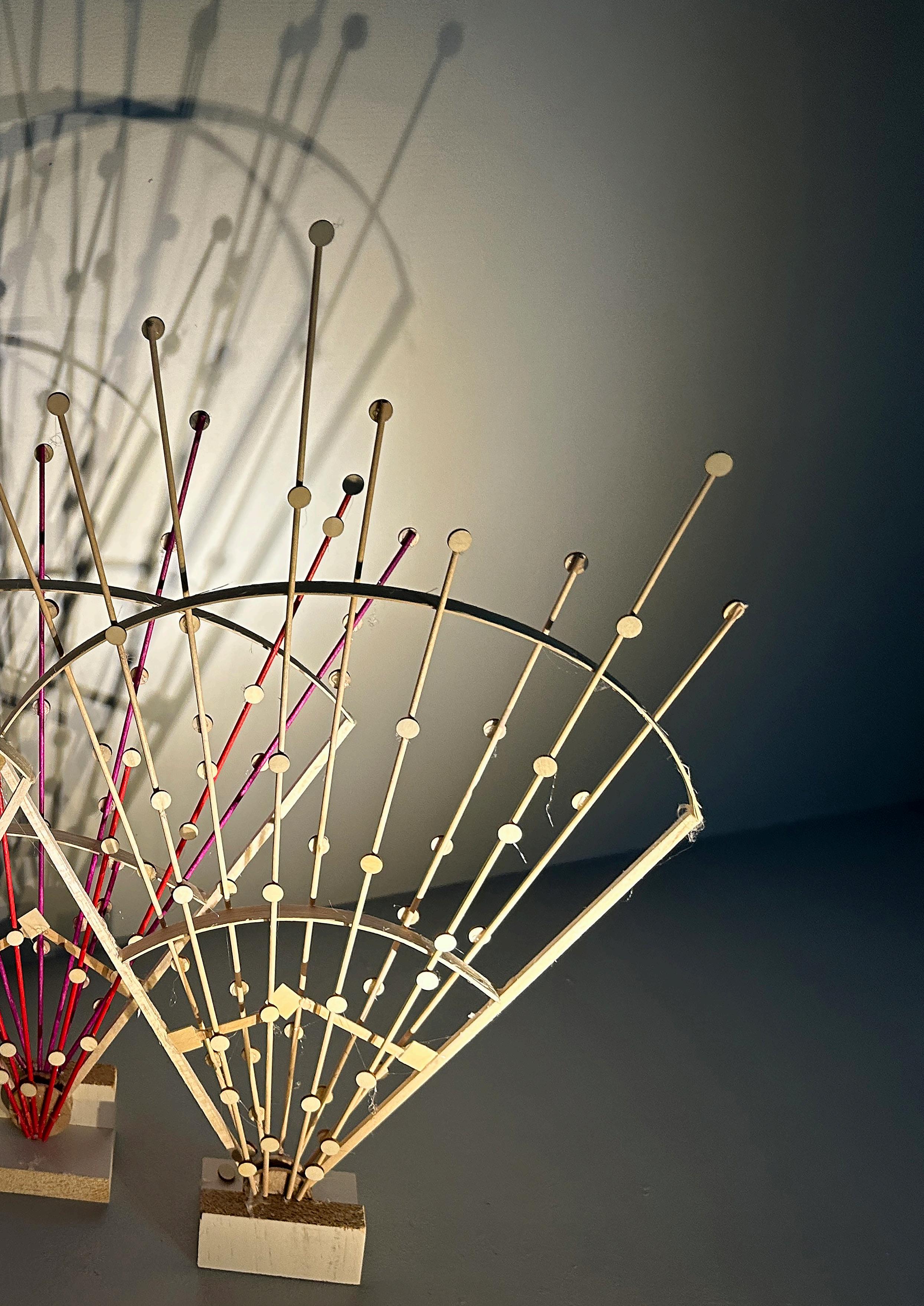 DAWN By MichaelYeager’24
DAWN By MichaelYeager’24
Souvent, pour s’amuser, les hommes d’équipage Prennent des albatros, vastes oiseaux des mers, Qui suivent, indolents compagnons de voyage, Le navire glissant sur les gouffres amers. À peine les ont-ils déposés sur les planches, Que ces rois de l’azur, maladroits et honteux, Laissent piteusement leurs grandes ailes blanches Comme des avirons traîner à côté d’eux. Ce voyageur ailé, comme il est gauche et veule!
Lui, naguère si beau, qu’il est comique et laid!
L’un agace son bec avec un brûle-gueule, L’autre mime, en boitant, l’infirme qui volait!
Le Poète est semblable au prince des nuées Qui hante la tempête et se rit de l’archer; Exilé sur le sol au milieu des huées, Ses ailes de géant l’empêchent de marcher.
ABOUT THE AUTHOR:
Charles Baudelaire (1821-1867), was a notable French poet. “L’Albatros” was inspired by a sea trip he went on with his stepfather where he noticed a similarity between a captured albatross and a poet, who is captive to society.
Often, to enjoy themselves, the sailors. Capture albatrosses, giant birds of the sea, Who follow, care free companions of the voyage As the ship slides on the bitter chasm. In trouble they drop on the floor, That these kings of the sky, clumsy and ashamed, Lose miserably their giant white wings. Like the rowers that wander near them. This winged passenger was graceless and feeble! Him, not long ago beautiful, now comical and ugly! One man irritates his beak with a brand, The other mimics the limping cripple who was flying! A Poet is like the prince of the clouds Who haunts the storms and laughs at the archer Exiled on the ground amid mortals, His giant wings preventing him from walking.
Translation by Roby Sickles ’26
 By SebastianDeAngelis’24
By SebastianDeAngelis’24
1866: “Chanson d’automne”
By Paul VerlaineTranslation by Augustin Grether ’25
1870: “Le Dormeur du Val”
By Arthur RimbaudTranslation by Helena Borcherding ’26
1880: “Negra Sombra” osalía de Castro
Translation by Sebastian DeAngelis ’24

Árbol de mi alma” (published 1913)
José Martí
Translation by Katherine Feiner’25
Late 1800s: “Castelli in Aria”
By Achille TedeschiTranslation by Bryan Dean ’26
“Bonne Année”
By Rosemonde GérardTranslation by Katherine Maliakal ’26
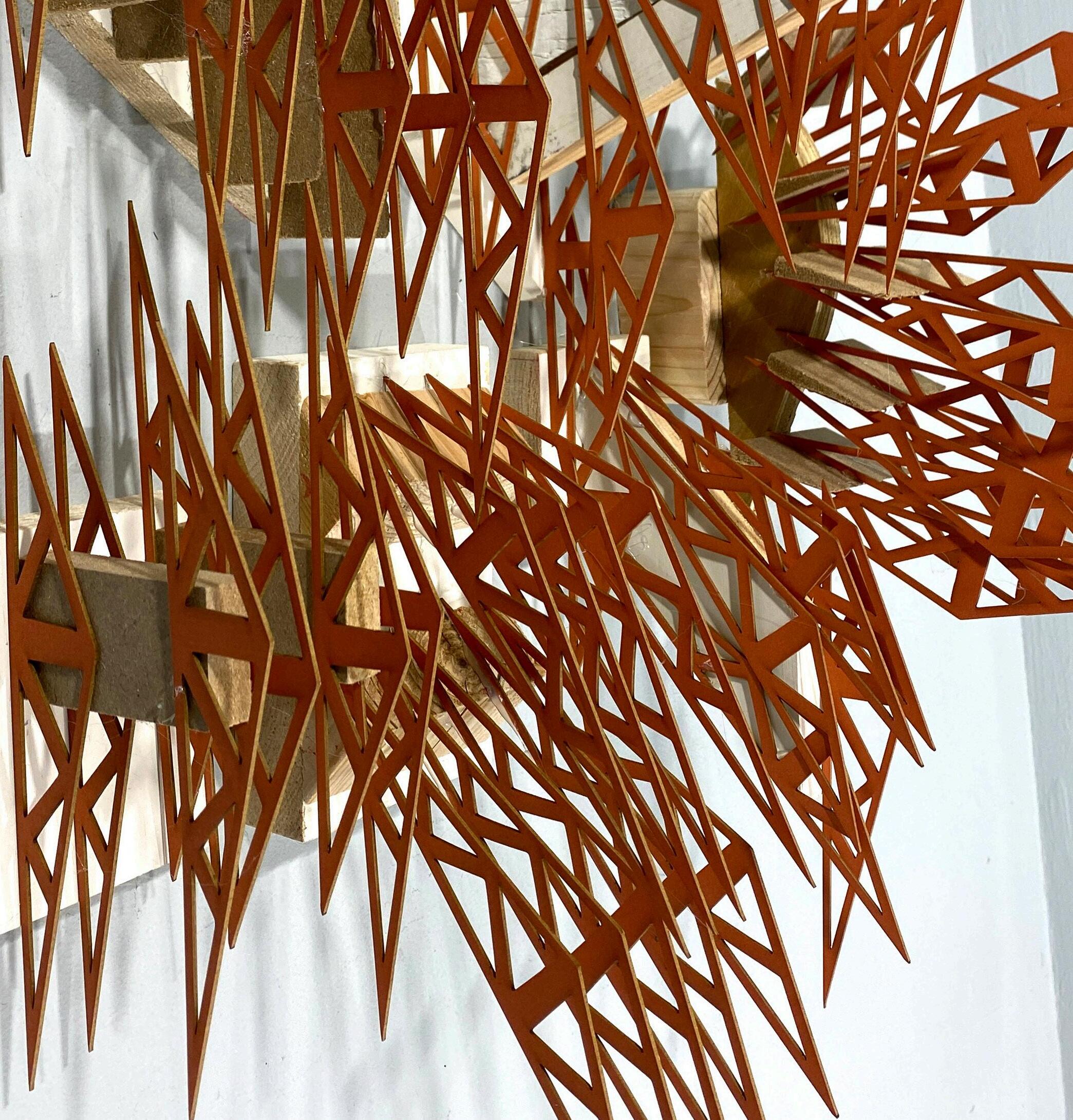




THE LONG SOBS OF THE VIOLINS IN AUTUMN WOUND MY HEART WITH A MONOTONOUS LANGUOR.
SUFFOCATING
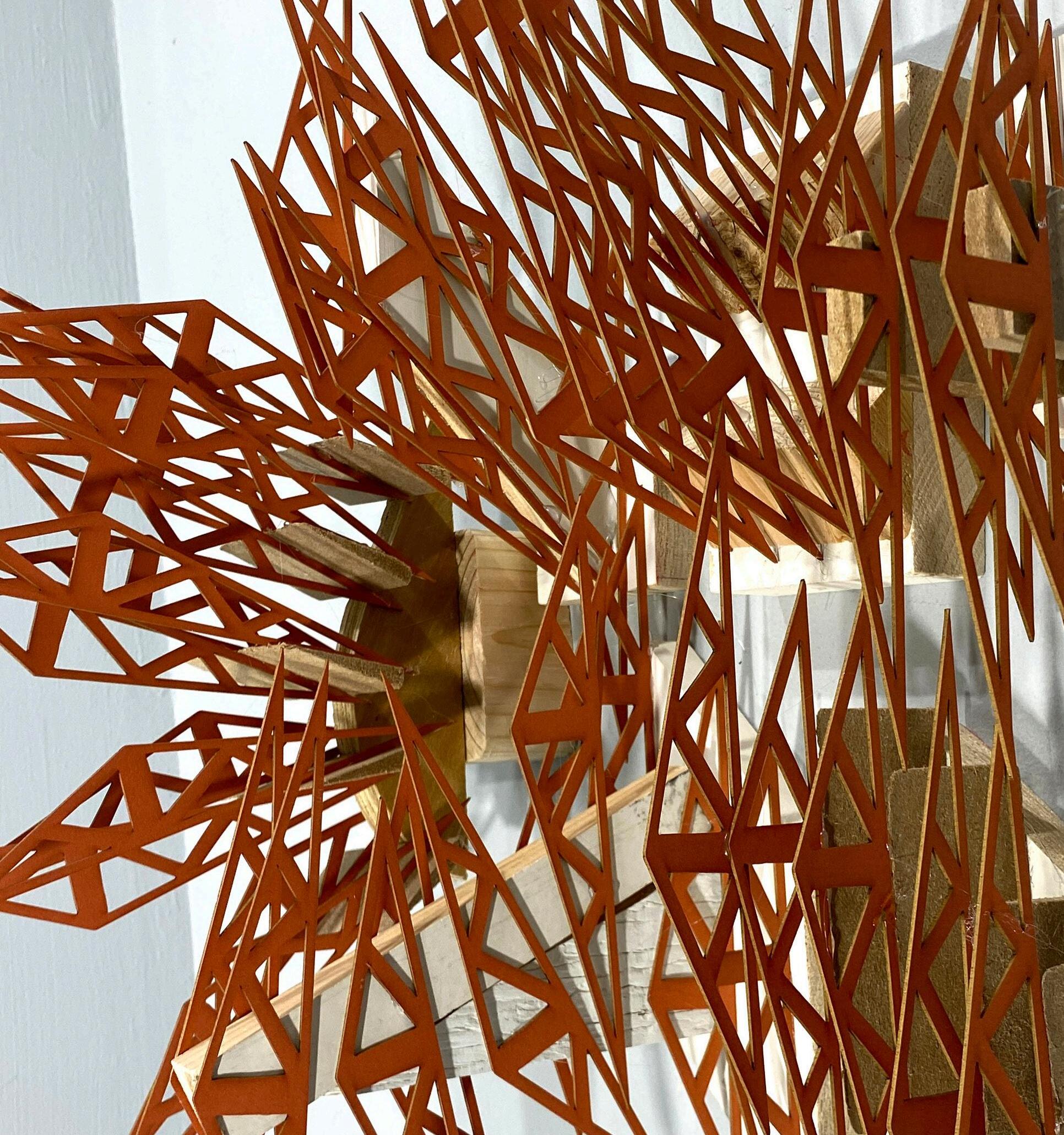
AND PALE, WHEN THE CLOCK STRIKES, I RECALL THE OLD DAYS, AND I CRY; AND I LEAVE TAKEN BY THE WIND BUFFETED FROM HERE TO THERE LIKE A DEAD LEAF.
ABOUT THE AUTHOR:
Paul Verlaine (1844-1896), a French lyric poet, best known as a leader of the Symbolist movement. The short, irregular lines of “Chanson d’automne” mimic the rhythm of Fall rain showers to convey a sense of melancholy and despair. The nostalgia of the Fall season inspired Verlaine to liken the
RHYTHM
By KodyHorton’25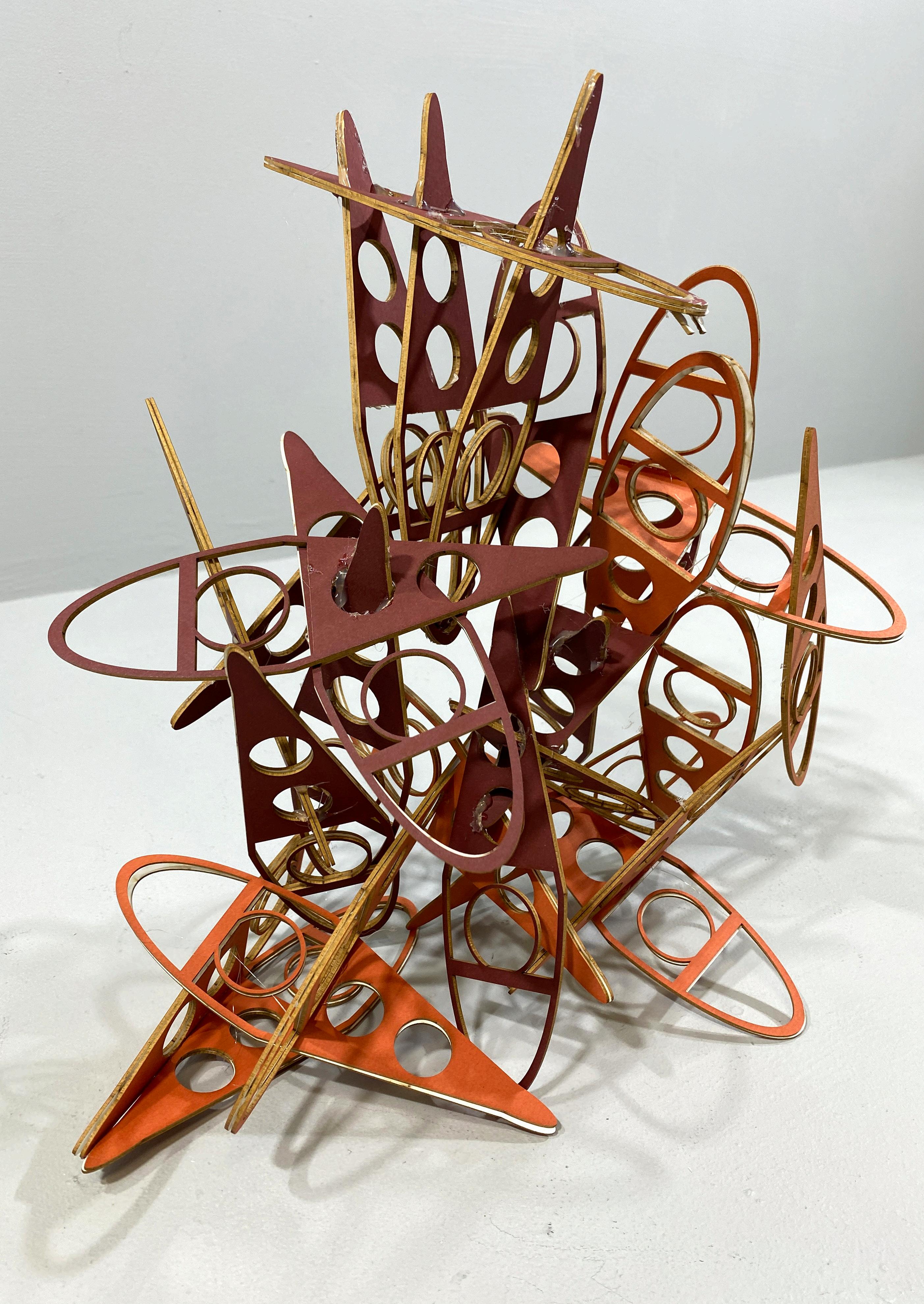 By JackKarst’23
By JackKarst’23
 By ArnezDowe’25
By ArnezDowe’25
C’EST UN TROU DE VERDURE OÙ CHANTE UNE RIVIÈRE
ACCROCHANT FOLLEMENT AUX HERBES DES HAILLONS
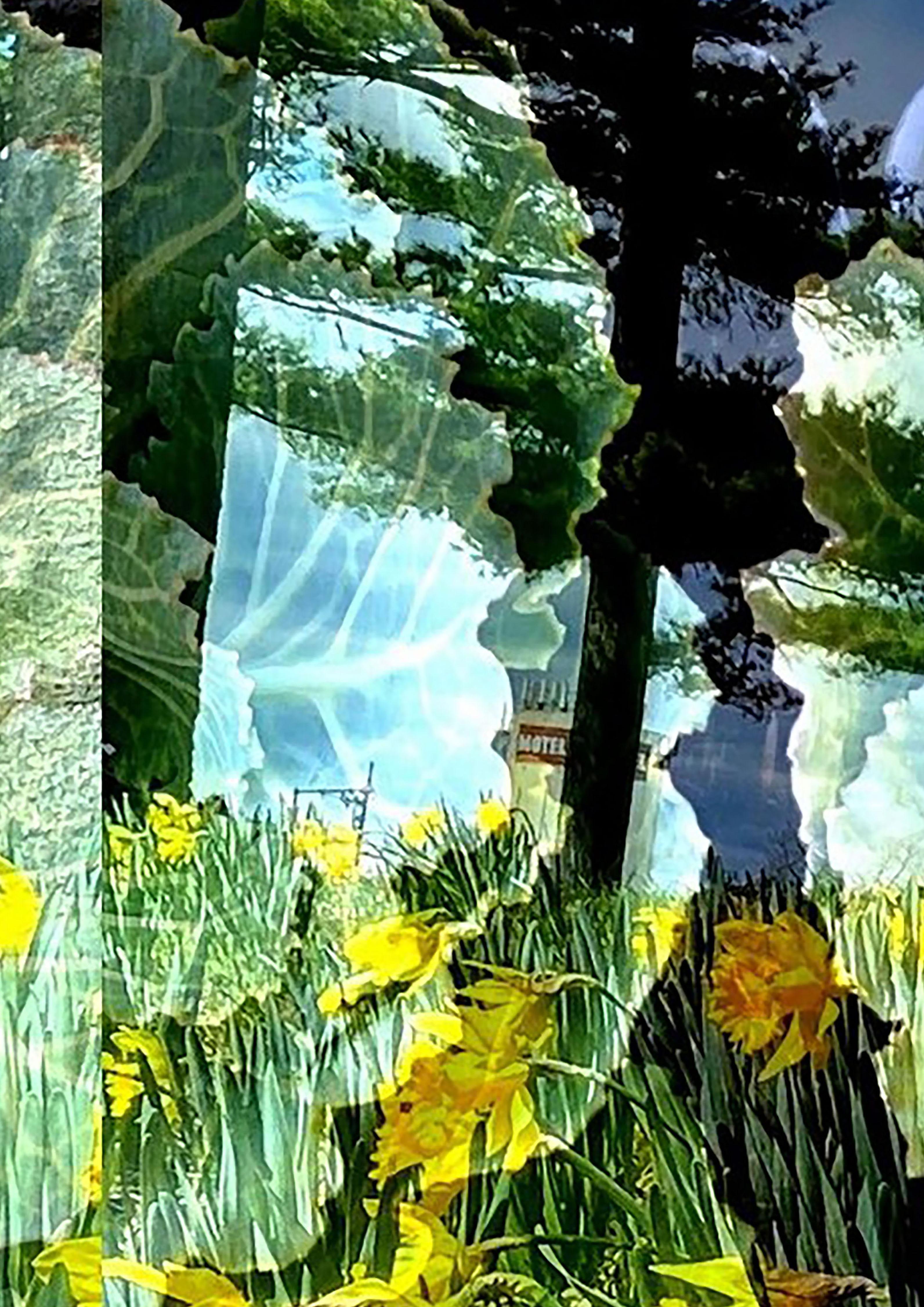
D’ARGENT; OÙ LE SOLEIL, DE LA MONTAGNE FIÈRE, LUIT; C’EST UN PETIT VAL QUI MOUSSE DE RAYONS. UN SOLDAT JEUNE BOUCHE OUVERTE, TÊTE NUE, ET LA NUQUE BAIGNANT DANS LE FRAIS CRESSON BLEU, DORT; IL EST ÉTENDU DANS L’HERBE, SOUS LA NUE, PÂLE DANS SON LIT VERT OÙ LA LUMIÈRE PLEUT.
LES PIEDS DANS LES GLAÏEULS, IL DORT. SOURIANT COMME SOURIRAIT UN ENFANT MALADE, IL FAIT UN SOMME:
NATURE, BERCE-LE CHAUDEMENT: IL FAIT FROID.
LES PARFUMS NE FONT PLUS FRISSONNER SA NARINE; IL DORT DANS LE SOLEIL, LA MAIN SUR SA POITRINE
TRANQUILLE. IL A DEUX TROUS ROUGES AU CÔTÉ DROIT.
IT IS A GREEN HOLLOW, WHERE A RIVER SINGS
MADLY HANGING TO THE GRASS RAGS OF SILVER; WHERE THE SUN, FROM THE PROUD MOUNTAIN SHINES; IT IS A LITTLE VALLEY FOAMING WITH RAYS.
A YOUNG SOLDIER, HIS MOUTH OPEN, HIS BARE HEAD, AND HIS NECK BATHES IN THE COOL BLUE WATERCRESS, SLEEPS; HE IS EXTENDED OUT ON THE GRASS, UNDER THE SKIES, PALE IN HIS GREEN BED WHERE THE LIGHT RAINS.
THE FEET IN THE GLADIOLAS, HE SLEEPS. SMILING LIKE A SICK CHILD WOULD SMILE, HE TAKES A NAP: NATURE, ROCKS HIM WARMLY: BUT HE IS COLD.
ABOUT THE AUTHOR:
Arthur Rimbaud (1854-1891), a French poet, was widely recognized for his impact on the surrealist movement and modern European poetry. Written during the Franco-Prussian War, “Le Dormeur du Val” is about a young soldier nappping in a grassland. With mounting sorrow, we learn in the end of the poem that he is injured. Rimbaud was 16 at the time experiencing the war first-hand in the eastern France.
PERFUMES NO LONGER BOTHER HIS NOSTRIL; HE SLEEPS IN THE SUN, HAND ON HIS CHEST
PEACEFUL. HE HAS TWO RED HOLES ON HIS RIGHT SIDE.
Translation by Helena
Borcherding ’26Cando penso que te fuches, negra sombra que me asombras, ó pé dos meus cabezales tornas facéndome mofa.
Cando maxino que es ida, no mesmo sol te me amostras, i eres a estrela que brila, i eres o vento que zoa. Si cantan, es ti que cantas, si choran, es ti que choras, i es o marmurio do río i es a noite i es a aurora.
En todo estás e ti es todo, pra min i en min mesma moras, nin me abandonarás nunca, sombra que sempre me asombras.

ABOUT THE AUTHOR:
Rosalía de Castro (1837-1885), a Galician icon, is considered one of the most important 19th century Spanish writers. Her foundational Galician poetry, is often filled with emotion and is focused on prevalent social and political issues of her time such as poverty, the abuse of power in the Spanish government, empowerment, Galician identity, emigration and loss. “Negra Sombra”, written shortly after the death of her two children, became one of the most recognized Galician poems when composer Xoán Montés Capón (1840-1899) included it in his Galician alalá ballad.
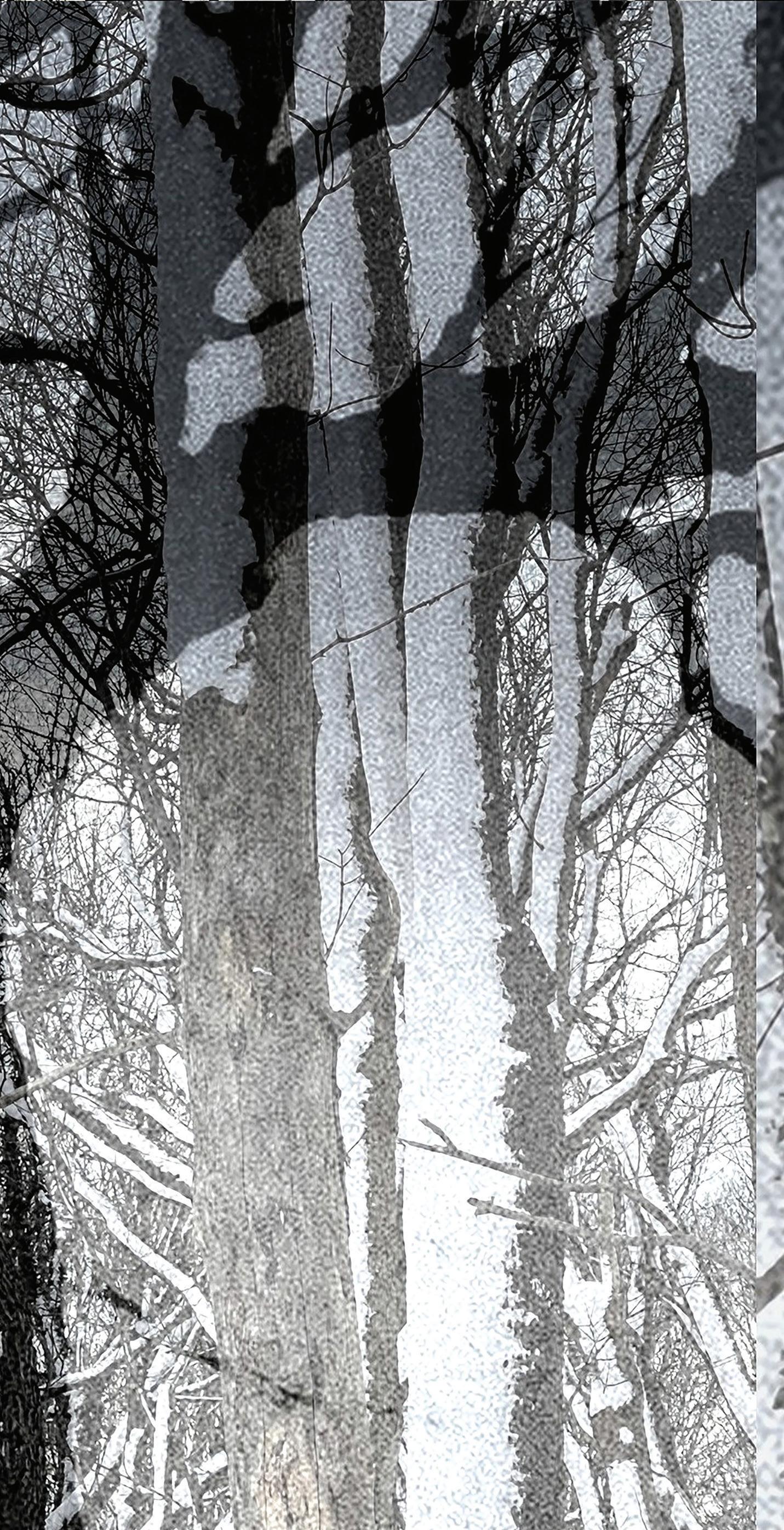
When I believe that you have left a black shadow overwhelms me, from the end of my pillows you turn and tease me.
When I imagine that you are gone you appear in the sun and you are the star that shines and you are the wind that buzzes.
If they sing, it is you singing, if they cry, it is you weeping and you are the murmur of the river and you are the night and the dawn.
You’re in everything and you’re everything for me, you will always live within me you will never abandon me shadow that will always shadow me.
1913
Como un ave que cruza el aire claro Siento hacia mí venir tu pensamiento
Y acá en mi corazón hacer su nido.
Ábrese el alma en flor: tiemblan sus ramas
Como los labios frescos de un mancebo
En su primer abrazo a una hermosura: Cuchichean las hojas: tal parecen
Lenguaraces obreras y envidiosas, A la doncella de la casa rica
En preparar el tálamo ocupadas:
Ancho es mi corazón, y es todo tuyo:
Todo lo triste cabe en él, y todo
Cuanto en el mundo llora, y sufre, y muere!
De hojas secas, y polvo, y derruidas
Ramas lo limpio: bruño con cuidado
Cada hoja, y los tallos: de las flores
Los gusanos del pétalo comido
Separo: oreo el césped en contorno
Y a recibirte, oh pájaro sin mancha
Apresto el corazón enajenado!
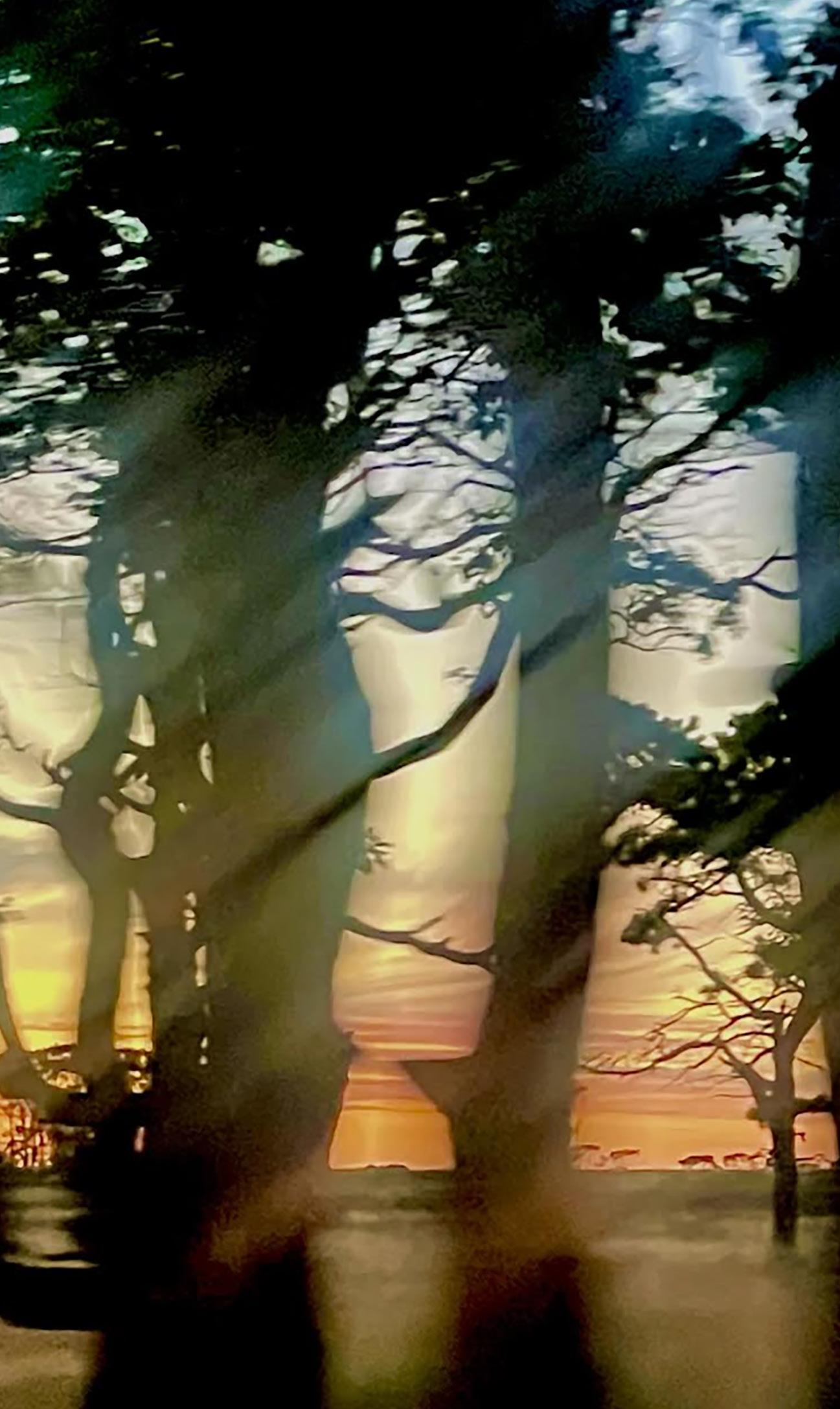 Translation by Katherine Feiner ’25
Translation by Katherine Feiner ’25
Like a bird that crosses the clear air
I feel your thoughts come towards me
And make your nest here in my heart.
The soul opens in bloom: its branches tremble
Like the fresh lips of a young man
In his first embrace with a young lady: The leaves whisper: they seem
Like foulmouthed and envious workers, To the woman of the rich house
Busily preparing the nuptial bed:
Wide is my heart, and it is all yours:
All the sadness fits in it, and all
ABOUT THE AUTHOR:
A Cuban national hero, dedicated to Cuba’s independence movement, José Martí José (18531895) was considered a prominent figure in Latin American literature. In “Árbol de mi alma”, Martí uses nature to personify the feeling of a soulmate.
That the world cries, and suffers, and dies!
Of the dry leaves, and dust, and demolished
Branches I clean: I carefully polish
Each leaf, and the stems: of the flowers
The worms of the eaten petal
I separate: I part the wavy grasses
And to receive you, oh unblemished bird
I prepare my enraptuerd heart!
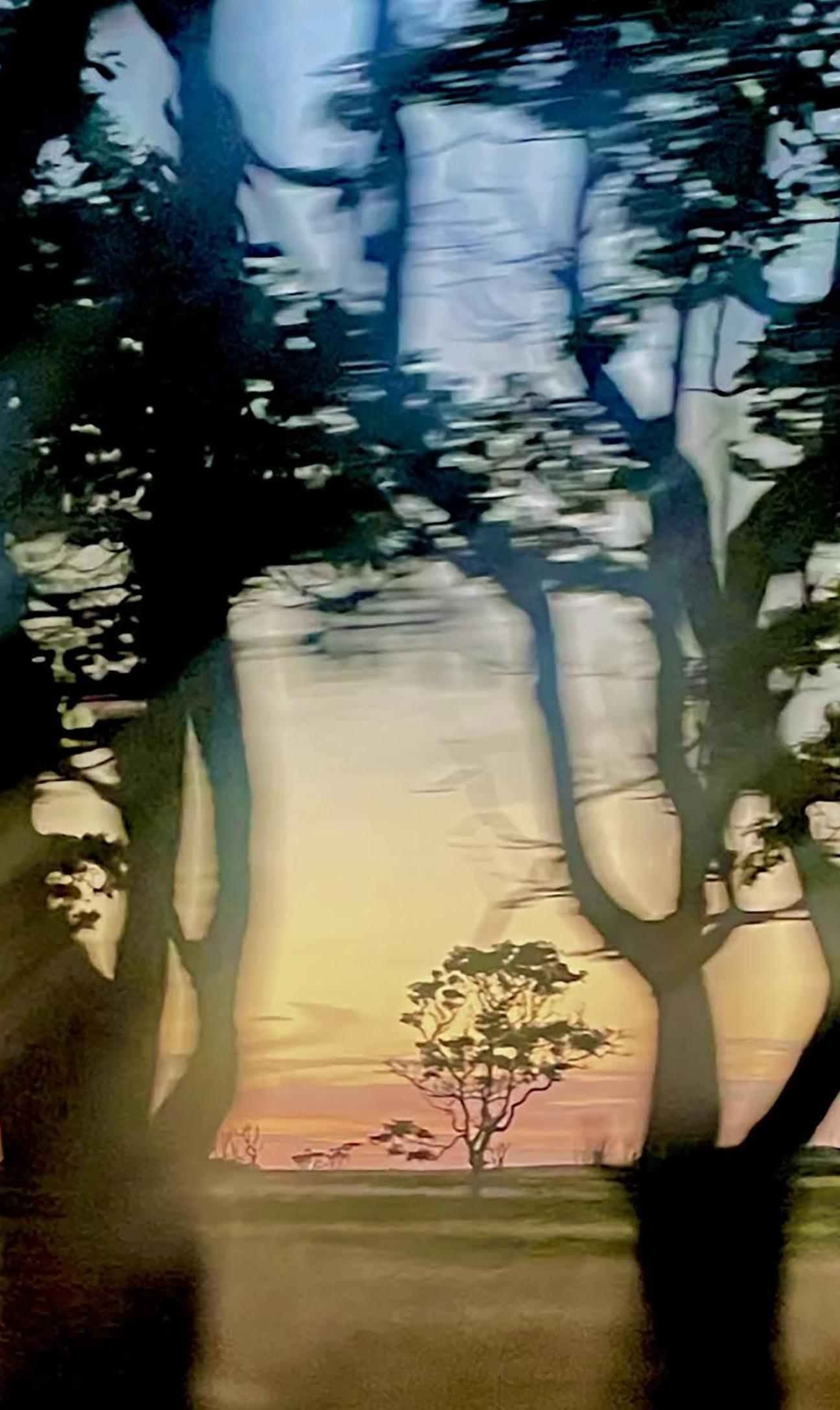

Il pastorello guarda lʼimmenso azzurro mare et pensa: “se potessi io pure navigare verso i lidi infiorati dʼeterna primavera, correre sopra lʼonde, lottar con la bufera.”
Il marinaio guarda la collina fiorita: pensa, “Lassù fra il verde, comʼè bella la vita! Lungi dalle tempeste nella casetta sola, dove lʼamor riunisce la lieta famigliola...”
Dalla collina al mare soffia leggero il vento, e pensa: “Del suo stato nessun uomo è contento.”
Soffia leggero il vento dallʼonda alla pendice e pensa: “A questo mondo nessun uomo è felice.”
ABOUT THE AUTHOR:
Achille Tedeschi (1841-1912) was an Italian soldier, patriot, and politician who fought in the second and third wars for Italian Independance.
The shepard watches The immense blue sea And thinks “if I could I would sail
Towards the flowering shores Of eternal spring, Run over the waves, Fight with the storm.”
The sailor watches the flowering hill and thinks “up there in the green, how beautiful life is! Far from the storms In the lonely cottage, Where love reunites The happy family…”
From the hill to the sea, the wind blows gently, and thinks: “With their state, no man is satisfied.”
The wind blows gently
From the waves to the slope, and thinks: “In this world no man is happy.”
BONNE ANNÉE À TOUTES LES CHOSES, AU MONDE, À LA MER, AUX FORÊTS, BONNE ANNÉE À TOUTES LES ROSES, QUE L’HIVER PRÉPARE EN SECRET. BONNE ANNÉE À TOUS CEUX QUI M’AIMENT, ET QUI M’ENTENDENT ICI - BAS, ET BONNE ANNÉE AUSSI, QUAND MÊME, A TOUS CEUX QUI NE M’AIMENT PAS.
HAPPY NEW YEAR TO ALL THE THINGS, TO THE WORLD, TO THE SEA, TO THE FORESTS, HAPPY NEW YEAR TO ALL THE ROSES, LET WINTER PREPARE IN SECRET.
HAPPY NEW YEAR TO THOSE WHO LOVE ME, AND WHO HEAR ME DOWN HERE, AND HAPPY NEW YEAR, EVEN TO THOSE WHO DON’T LOVE ME.
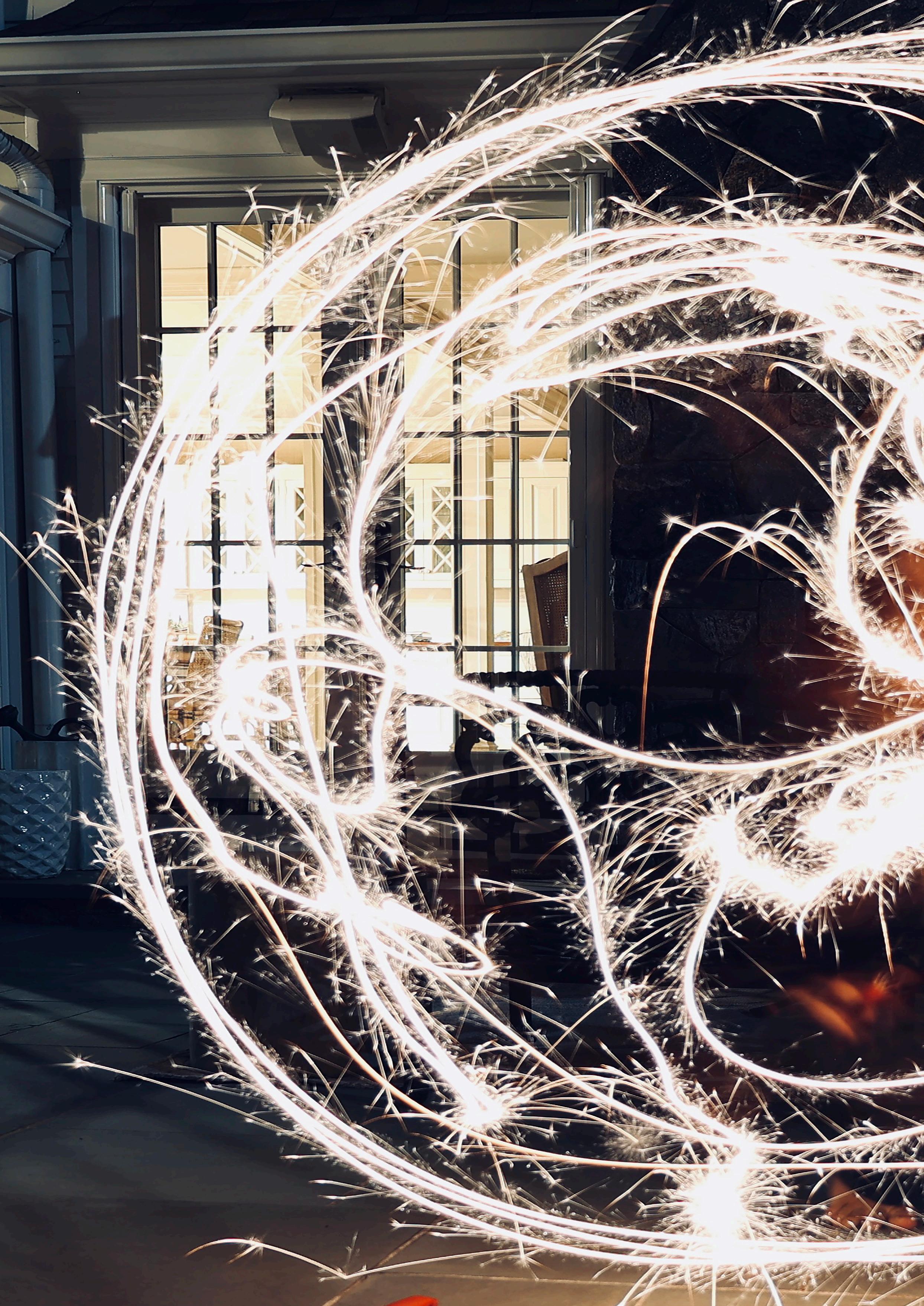
ABOUT THE AUTHOR:
Rosemonde Gérard (1871-1953) was a French poet and playwright. “Bonne Année” is a celebration of the new year. The author wishes Happy New Year to everything in the world, from people who love her, to people who don’t.
By SebastianDeAngelis’24

Cuban
1891: “Cultivo una Rosa Blanca” by José Martí; Translation by Connor Crosby ’24
American
1900: “The Bridge Builder” by Will Allen Dromgoogle; Translation by Campbell Officer ’23
Italian
1903: “La Pioggia nel Pineto” by Gabriele D’Annunzio; Translated by Rena Georgakopoulos-Ueta ’25
Spanish
1900s: “Cuando Llegues a Amar” by Rubén Darío, Nicaraguan; Translated by Thomas Coughlin ’24
1900s: “Al Claro De Luna” by Delmira Agustini, Uruguayan; Translated by Will Fels ’25
1909: “¡Pobre alma sola! no te entristezcas” by Rosalía de Castro, Gallego; Translated by Ludo Berardi ’25
1912: “Caminante, No Hay Camino” by de Antonio Machado, Spanish; Translated by Annison Mahaffy ’25
American
1915: “The Road Not Taken” by Robert Frost; Translated by Jake Murphy ’24
Spanish
1924: “Me Gustas Cuando Callas” by Pablo Neruda, Chilean; Translated by Jackson Choi ’25
1920s: “Es Verdad” by Federico García Lorca, Spanish; Translated by Ryan Warner ’25
1900s: “Piedra Negra Sobre Una Piedra Blanca” by César Vallejo, Peruvian; Translated by Carter Bagaria ’24
French
1945: “Les Feuilles Mortes” by Jacques Prévert; Translated by James Lych ’25
 By LucLampert’24
By LucLampert’24
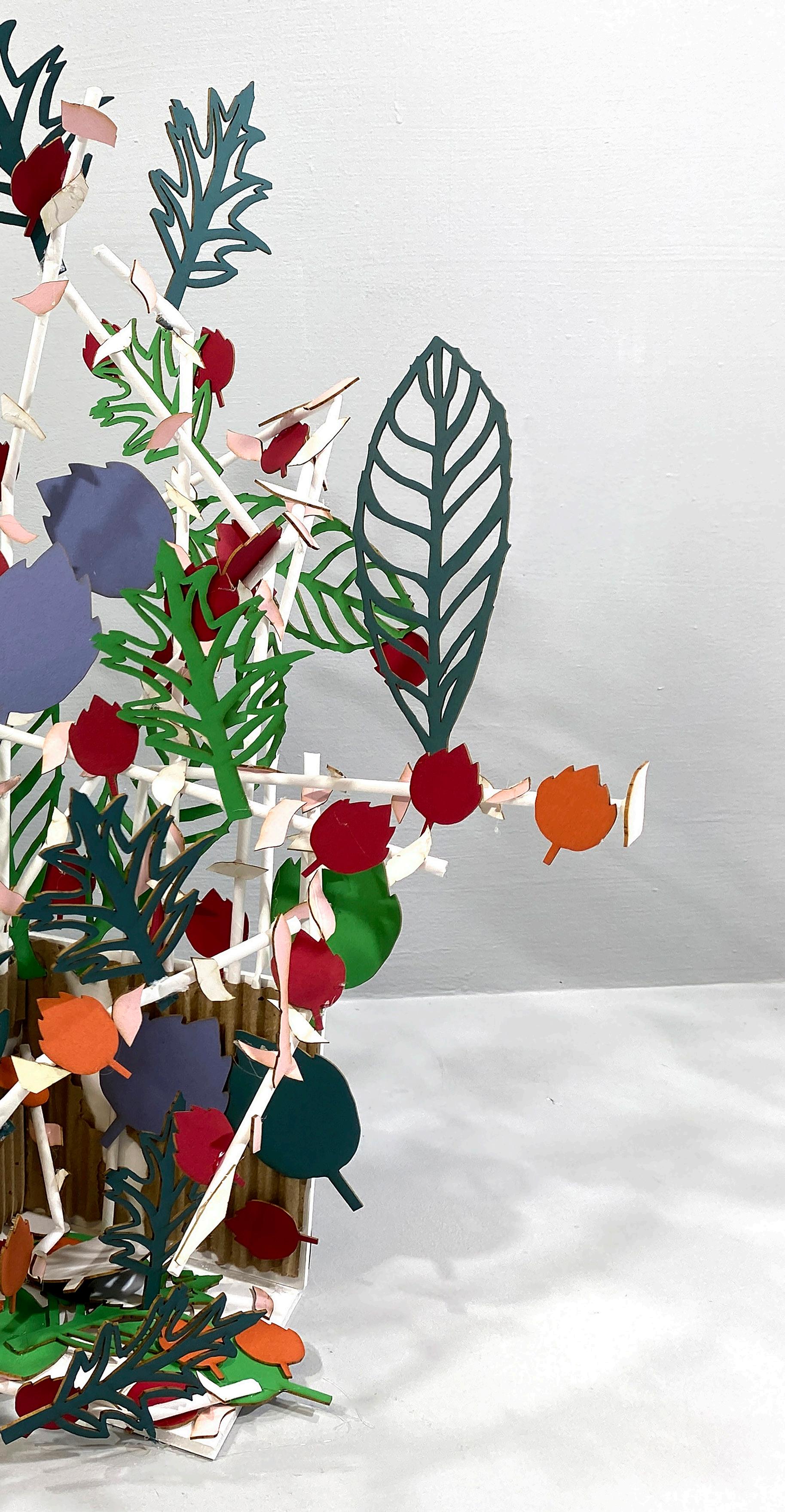 By José Martí, 1891
By José Martí, 1891
Cultivo una rosa blanca, en julio como en enero para el amigo sincero que me da su mano franca.
Y para el cruel que me arranca el corazón con el que vivo, cardo ni oruga cultivo; cultivo la rosa blanca.
I cultivate a white rose, in July as in January for the true friend who gives me his open hand.
And for the cruel one who tears out the heart with which I live, thistle no larva do I grow; I grow the white rose.
Translation by Connor Crosby ’24
ABOUT THE AUTHOR:
A Cuban national hero dedicated to Cuba’s independence movement, José Martí José (18531895) was considered a prominent figure in Latin American literature. His work and efforts were crucial to the success of the Cuban War of independence and he died in battle in May of 1895. The poem “Cultivo una Rosa Blanca” is one of Martí’s most celebrated poems. Written while he lived in New York City, the poem is about the importance of building pure and sincere friendships.
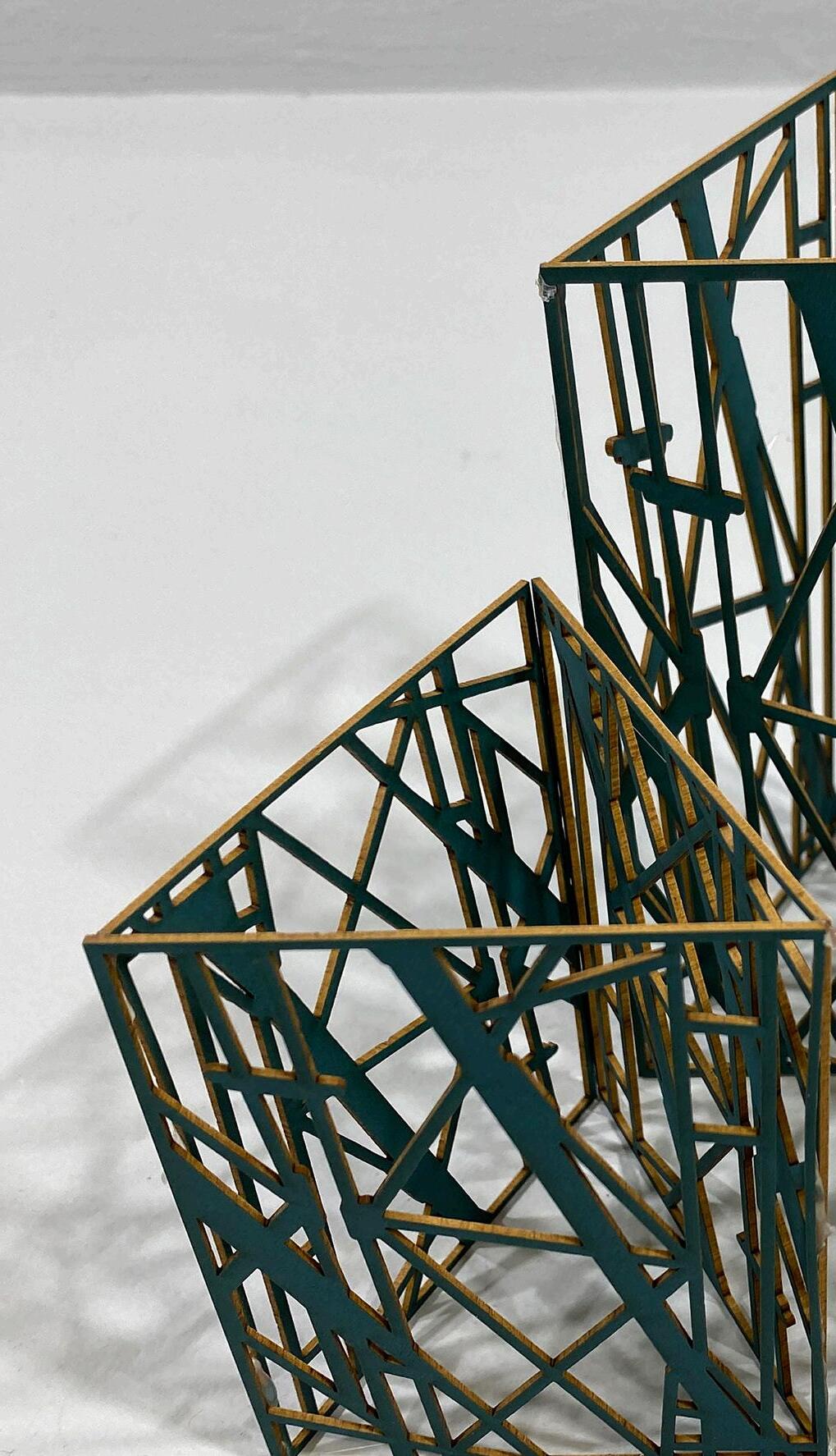

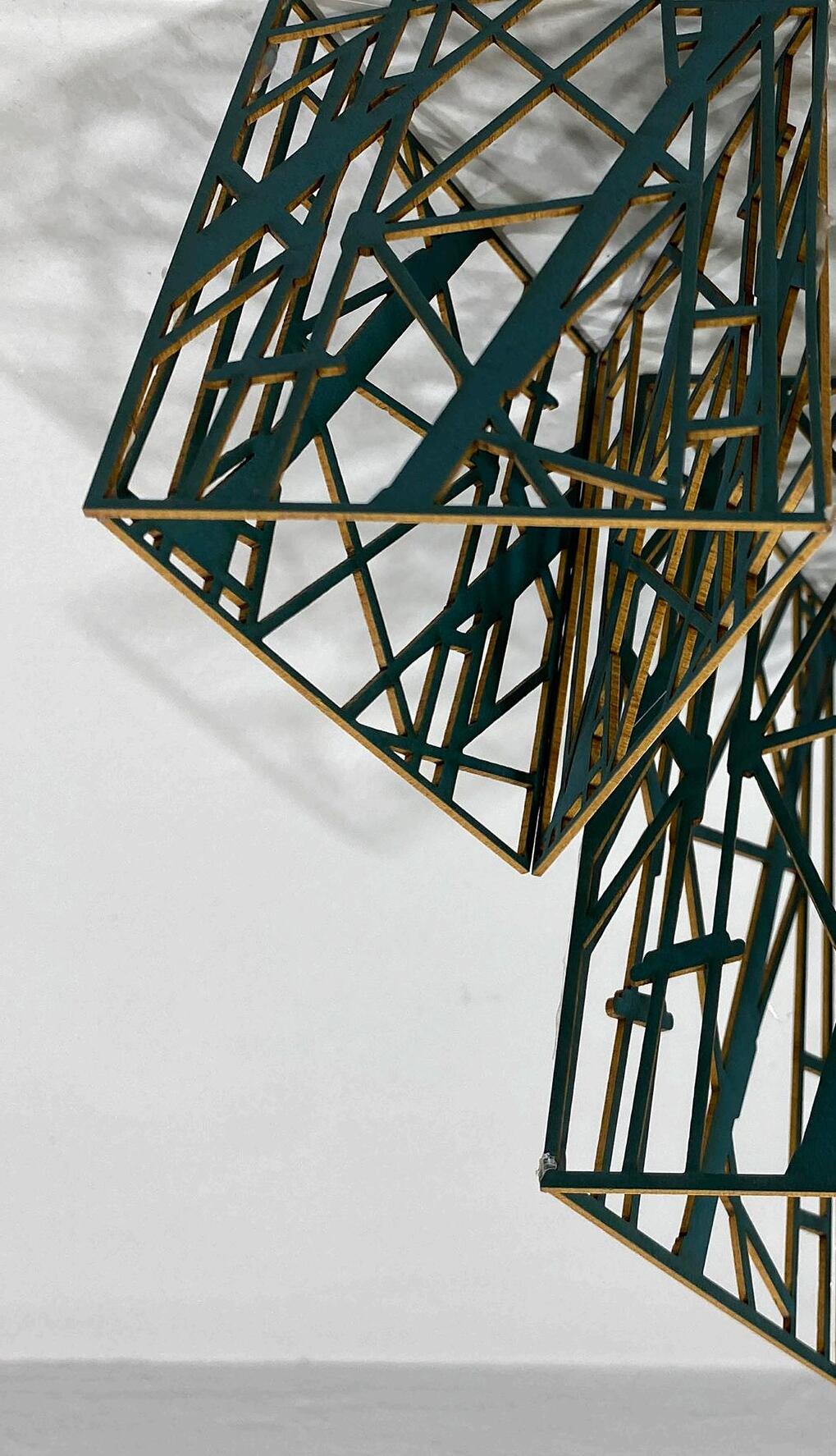


 By Will Allen Dromgoogle, 1900
By Will Allen Dromgoogle, 1900
An old man going a lone highway, Came, at the evening cold and gray, To a chasm vast and deep and wide. Through which was flowing a sullen tide
The old man crossed in the twilight dim, The sullen stream had no fear for him; But he turned when safe on the other side And built a bridge to span the tide.
“Old man,” said a fellow pilgrim near, “You are wasting your strength with building here; Your journey will end with the ending day, You never again will pass this way; You’ve crossed the chasm, deep and wide, Why build this bridge at evening tide?”
The builder lifted his old gray head; “Good friend, in the path I have come,” he said, “There followed after me to-day A youth whose feet must pass this way. This chasm that has been as naught to me To that fair-haired youth may a pitfall be; He, too, must cross in the twilight dim; Good friend, I am building this bridge for him!”
ABOUT THE AUTHOR:
Will Allen Dromgoole (1860-1934) was an American author and poet born in Tennessee. A prolific writer, she published thirteen books, wrote 5,000 essays and over 7,500 poems. Her renowned poem “The Bridge Builder”, first published in 1900, stresses the important moral lesson of unselfishly caring for others. It is often quoted by motivational speakers.
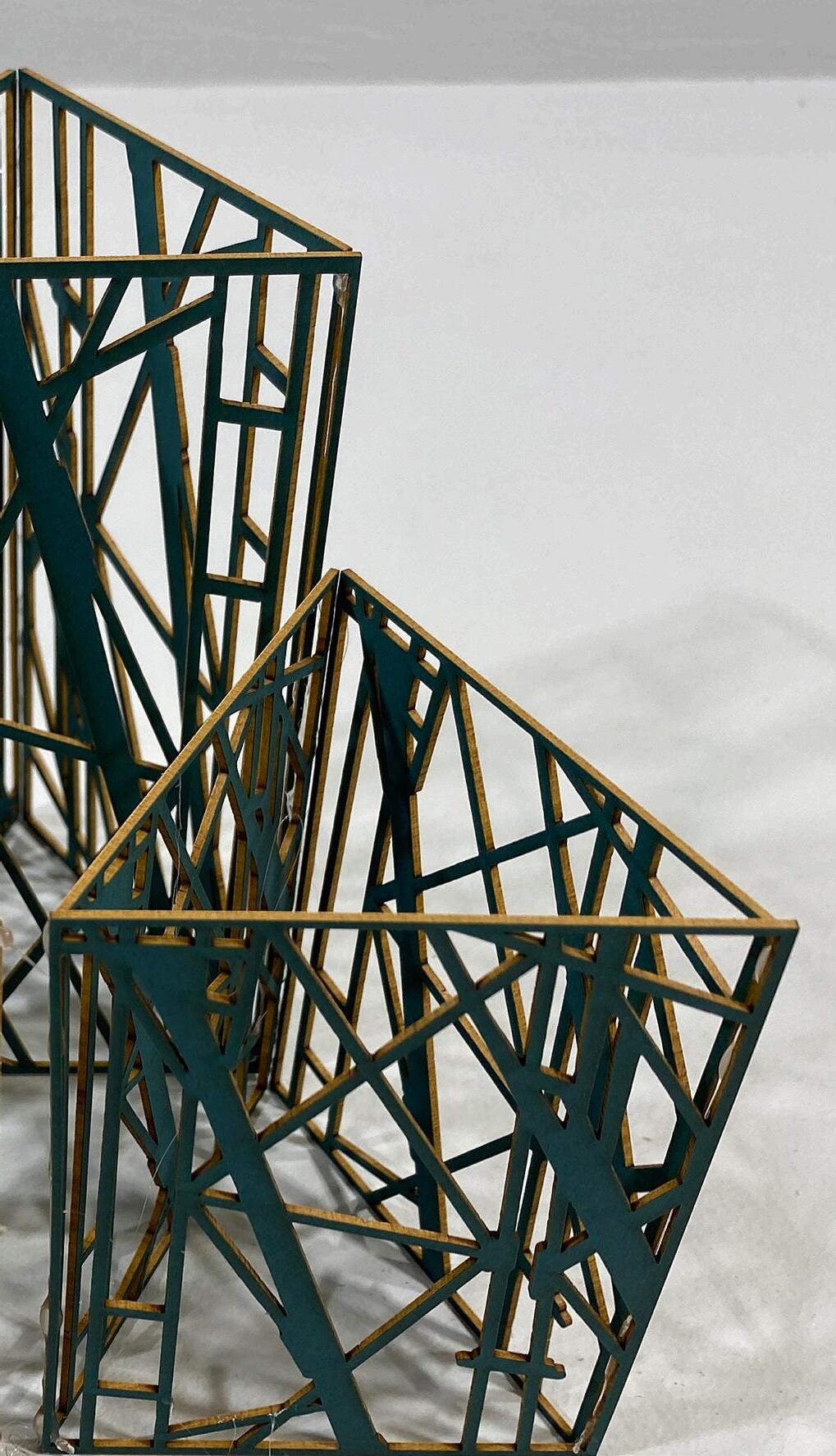
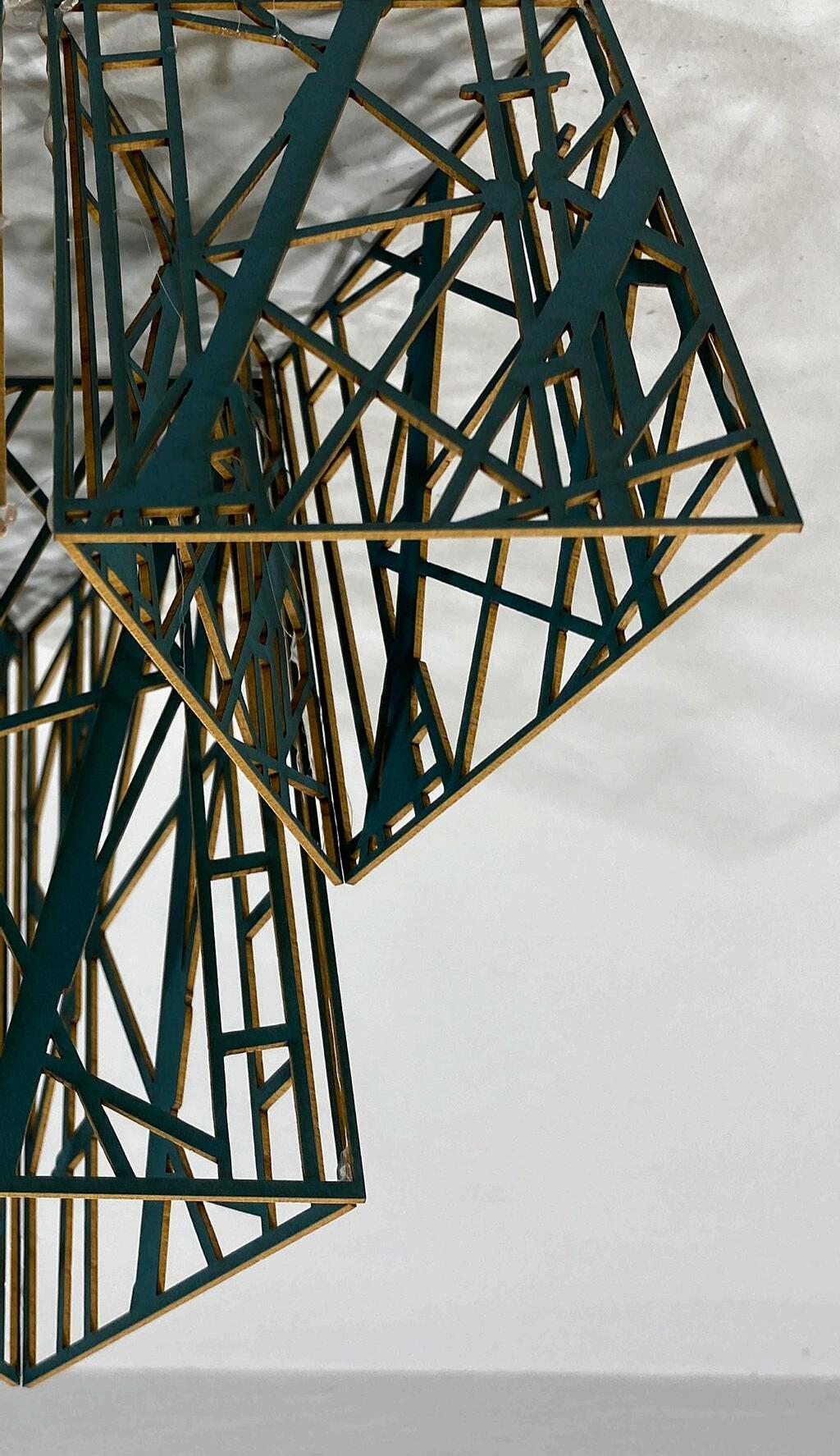

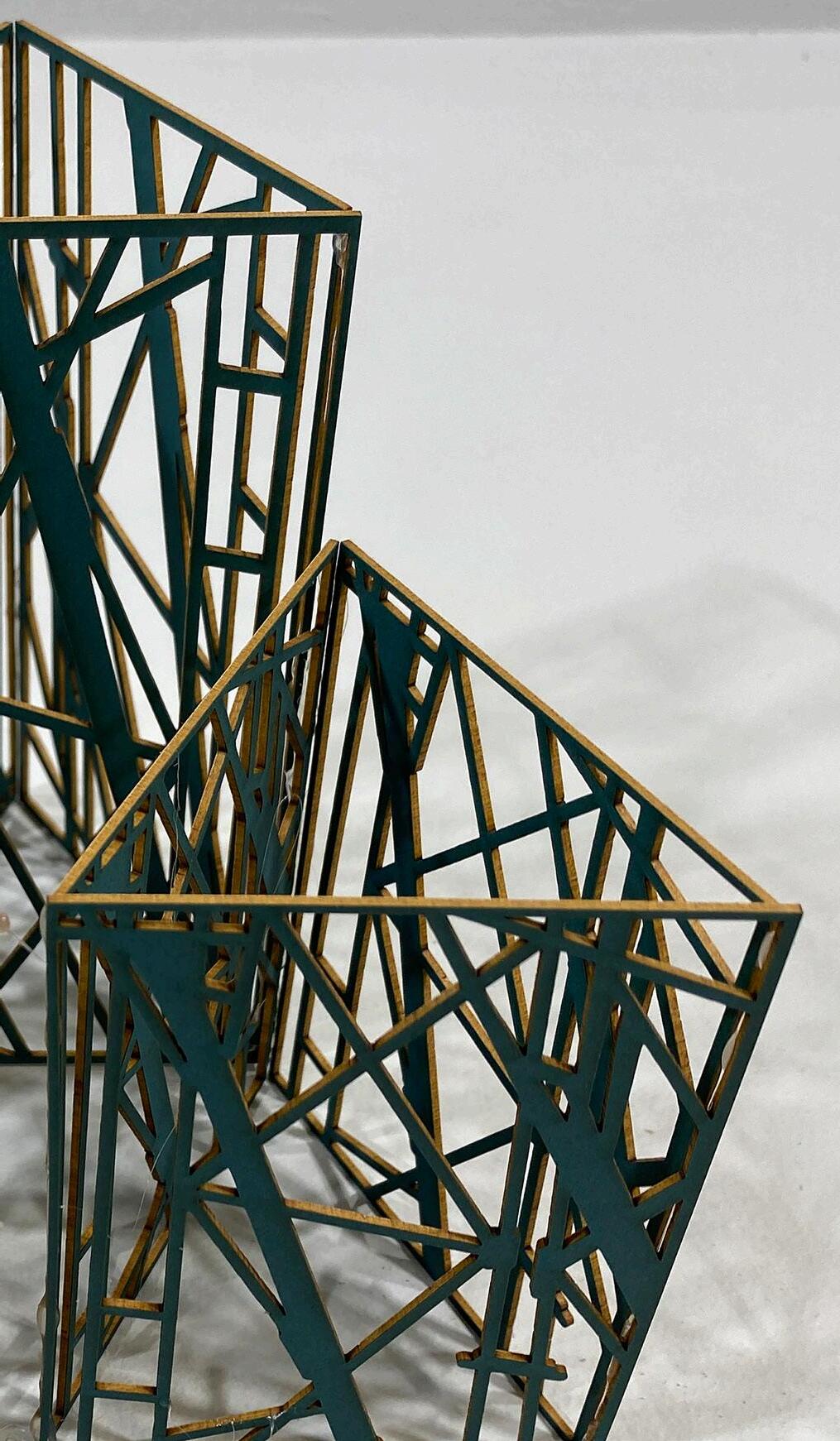
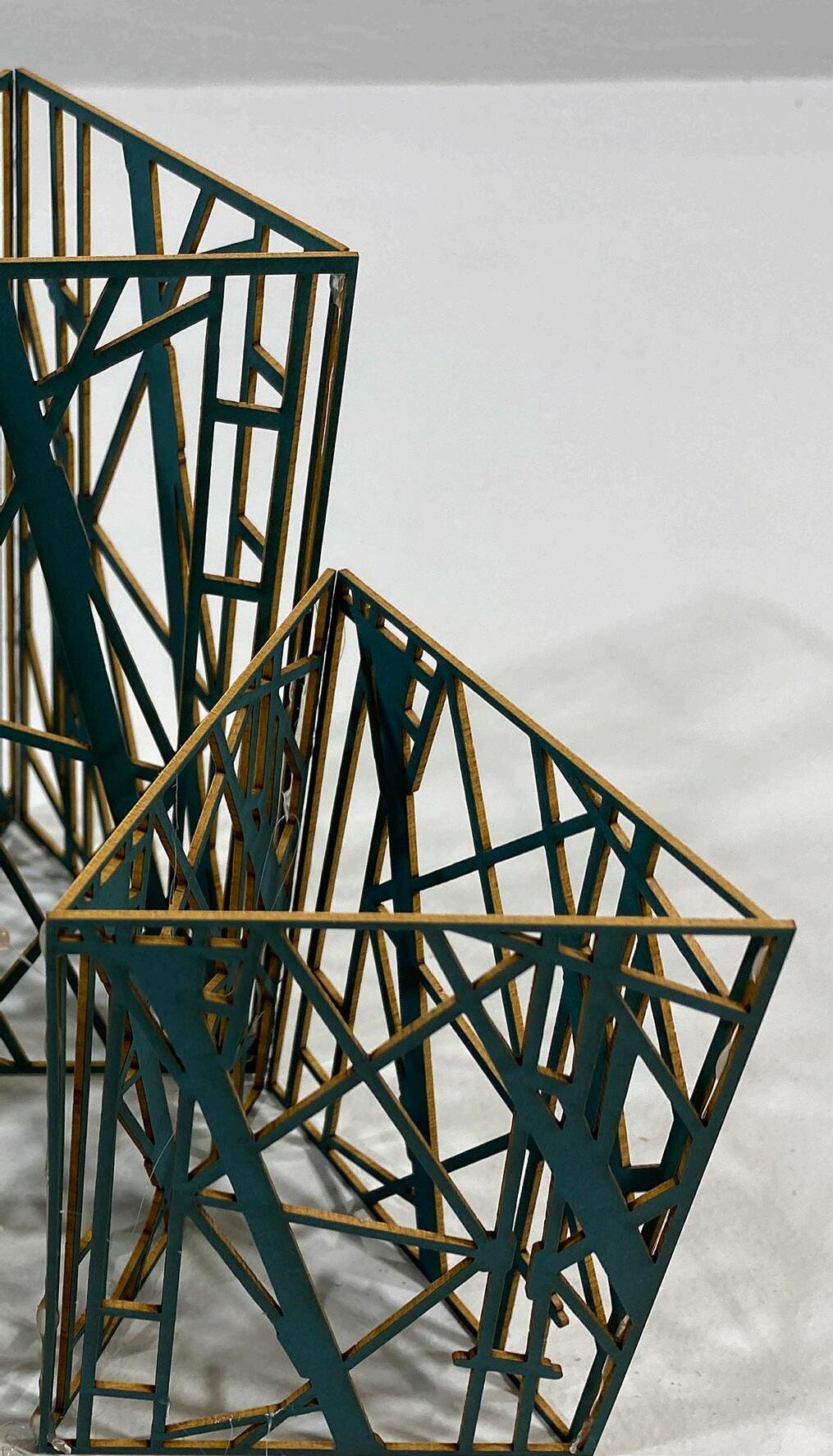
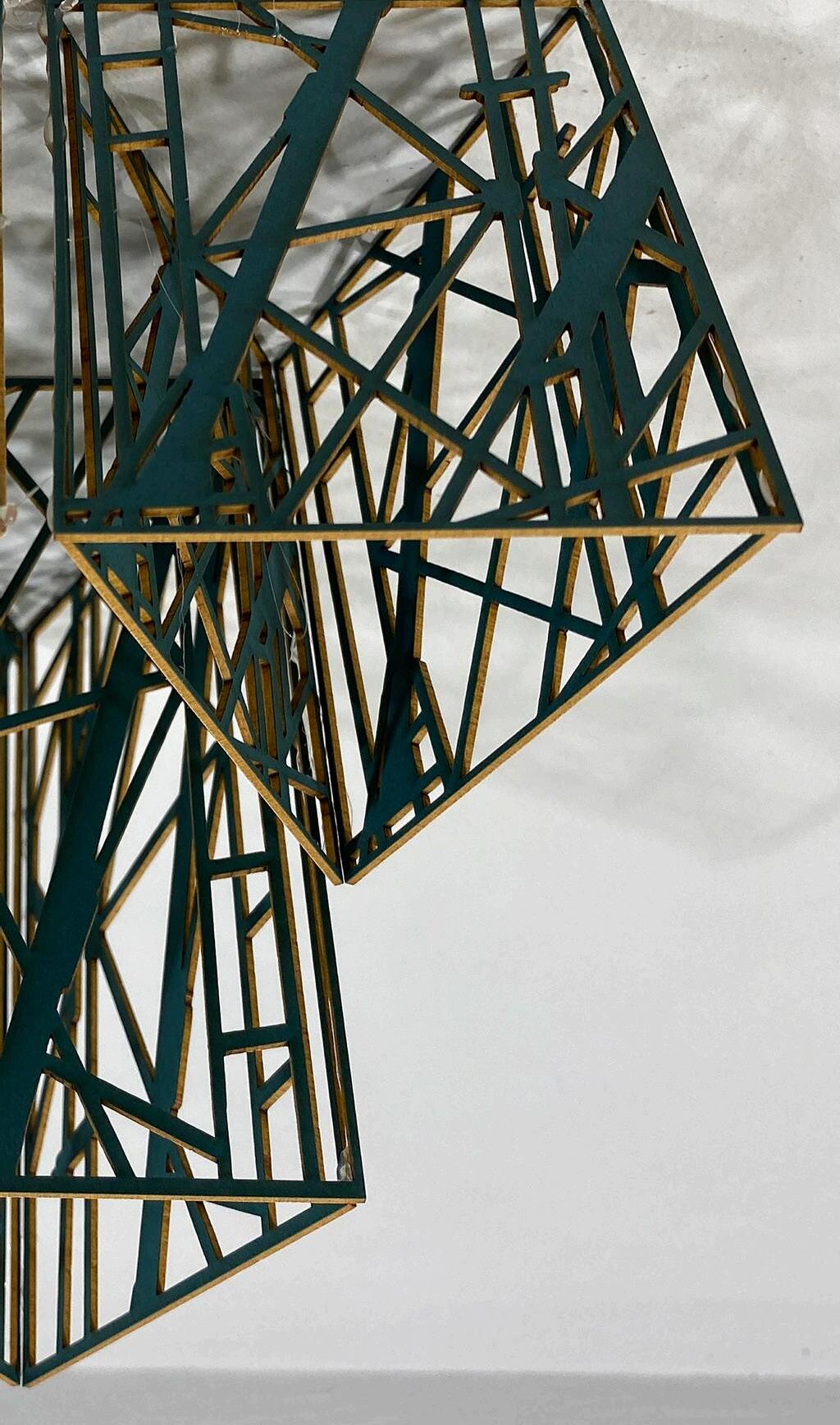
Un anciano que iba por una carretera solitaria llegó por la tarde frío y gris a un abismo vasto y profundo y ancho, a través de la cual fluía una corriente tupida el anciano cruzó en la oscuridad del crepúsculo, el río sombrío no le tenía miedo al anciano; pero se dio la vuelta cuando estaba a salvo en el otro lado y construyó un puente que se extendía sobre el río.
“Viejo”, dijo un compañero peregrino cerca, “estás desperdiciando tu fuerza con la construcción aquí; tu viaje terminará con el día, nunca más pasará por este camino; has cruzado el abismo, profundo y ancho, ¿Por qué construir este puente en la marea de la tarde?”
El constructor levantó su vieja cabeza gris; “Buen amigo, en el camino que he venido”, dijo, “me siguió hoy un joven cuyos pies deben pasar por este camino. Este abismo que ha sido como nada para mí para ese joven de pelo claro puede ser un peligro; él, también, debe cruzar en la oscuridad del crepúsculo; buen amigo, ¡estoy construyendo este puente para él!”
Ascolta. Piove dalle nuvole sparse. Piove su le tamerici salmastre ed arse, piove su i pini scagliosi ed irti, piove su i mirti divini, su le ginestre fulgenti di fiori accolti, su i ginepri folti di coccole aulenti, piove su i nostri volti silvani, piove su le nostre mani ignude, su i nostri vestimenti leggieri, su i freschi pensieri che l’anima schiude novella, su la favola bella che ieri t’illuse, che oggi m’illude, O Ermione.
ABOUT THE AUTHOR:
Gabriele D’Annunzio, Prince of Montenevoso, (1863-1938) was an Italian poet, journalist, playwright, orator, and WWI Royal Italian Army officer. He was a significant literary figure from 1889-1910 and later went onto politics from 1914-1924. His works, more mystical and sensuous, turned away from the romantics. While he never called himself a fascist, Mussolini was heavily influenced by his ideas.“La Pioggia nel Pineto,” one of his most recognized poems, is written with a rhythm which evokes a feeling of rain to the reader. The characters (the poet and his lover) in the poem become one with nature.
Listen. It rains from the dispersed clouds. It rains on the brackish and burnt tamarisks, rains on the scaly and prickly pines, rains on the divine myrtles, on the brooms shining of clustered flowers, on the junipers dense with fragrant berries, it rains on our sylvan faces, rains on our naked hands, on our light clothes, on the fresh thoughts that the renewed spirit releases, on the beautiful fable that yesterday deluded you, that today deludes me, O Hermione.
Translation by Rena Georgakopoulos-Ueta ’25
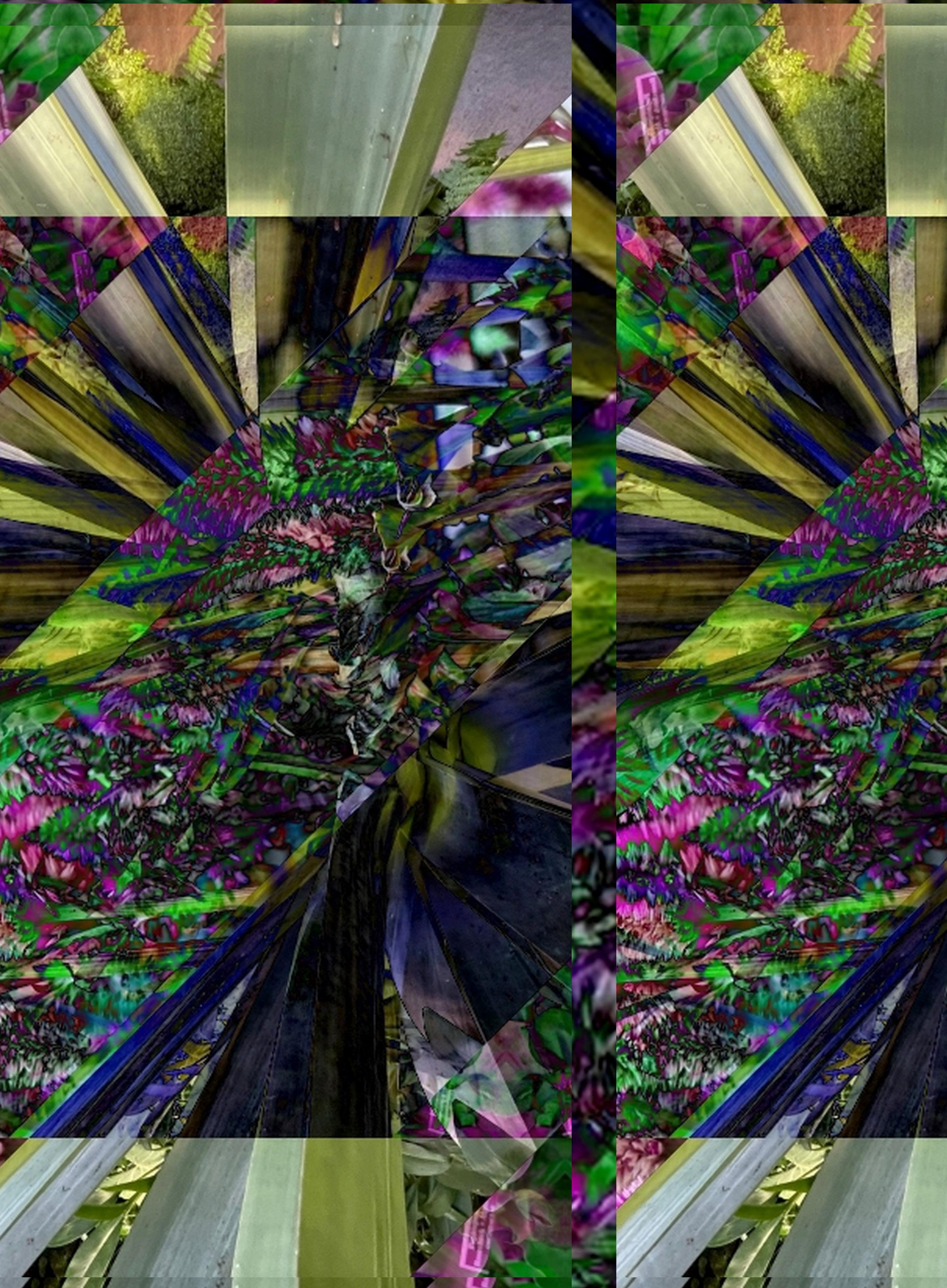
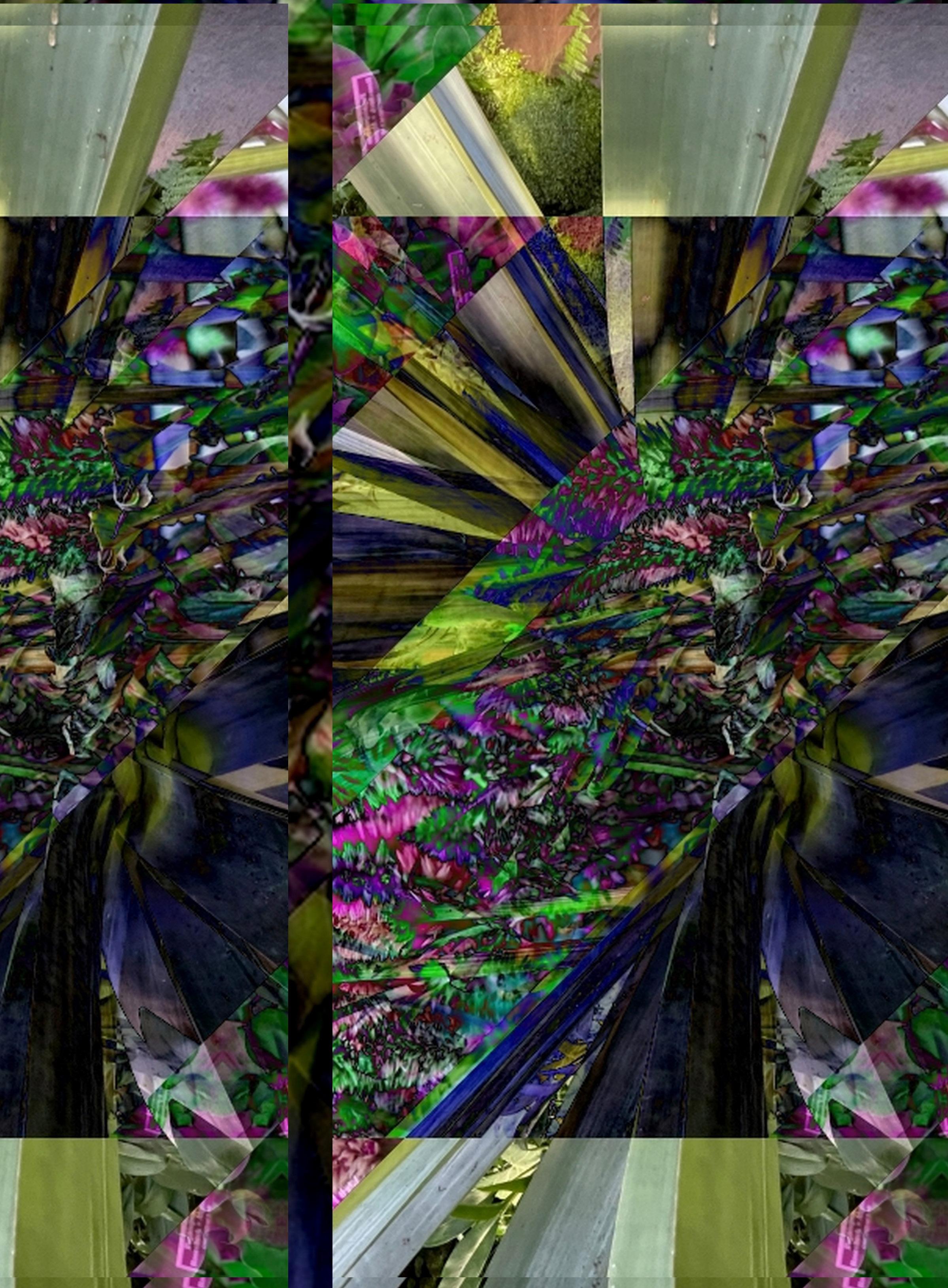 By ArnezDowe’25
By ArnezDowe’25

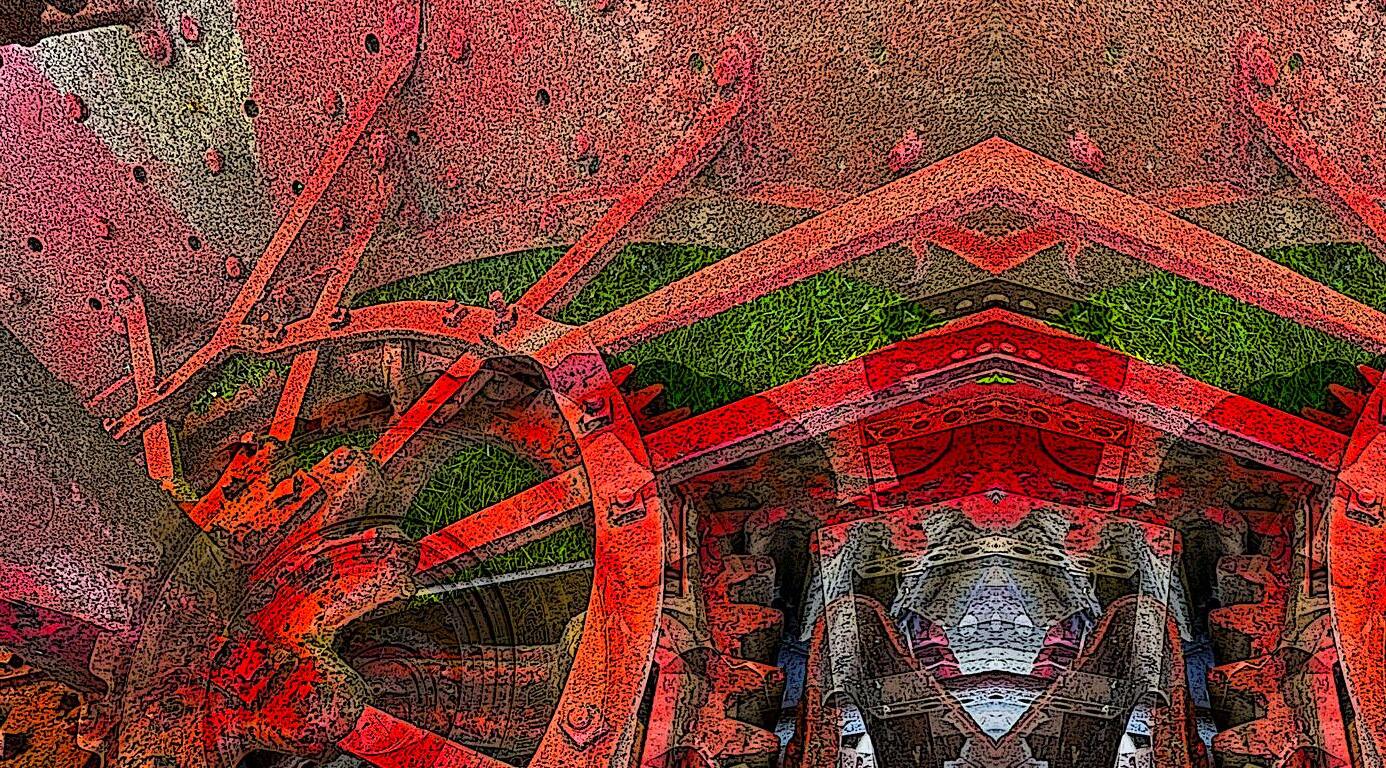 By JamesLehrman’25
By JamesLehrman’25
Cuando llegues a amar, si no has amado, sabrás que en este mundo es el dolor más grande y más profundo ser a un tiempo feliz y desgraciado.
Corolario: el amor es un abismo de luz y sombra, poesía y prosa y en donde se hace la más cara cosa que es reír y llorar a un tiempo mismo.
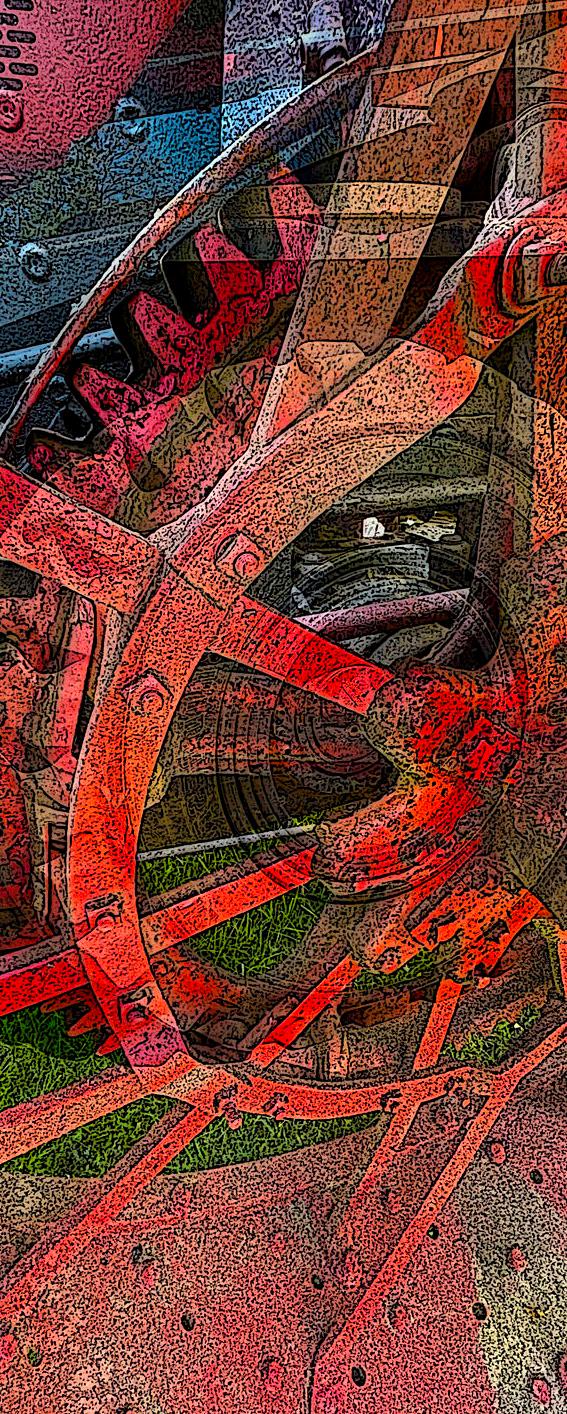
Lo peor, lo más terrible, es que vivir sin él es imposible.
When you come to love, if you have not loved, you will know that in this world it is the greatest and deepest pain to be happy and miserable at the same time.
Corollary: love is an abyss of light and shadow, poetry and prose and where dearest thing is created that is to laugh and cry at the same time.

The worst, most terrible, is that living without it is impossible.
Translation by Thomas Coughlin ’24ABOUT THE AUTHOR:
Rubén Darío was born in Nicaragua in 1867. During his lifetime, he was a poet, a journalist, and a diplomat. He is recognized as a father of the Spanish literary movement, known as modernism, which thrived in the 19th century.
“Cuando Llegues a Amar” is a poem about love written in prose. He traveled throughout Latin America, Spain and Paris. He died in 1916, in León, Nicaragua.
La luna es pálida y triste, la luna es exangüe y yerta. La media luna figúraseme un suave perfil de muerta… Yo que prefiero a la insigne palidez encarecida De todas las perlas árabes, la rosa recién abierta,
En un rincón del terruño con el color de la vida, Adoro esa luna pálida, adoro esa faz de muerta! Y en el altar de las noches, como una flor encendida Y ebria de extraños perfumes, mi alma la inciensa rendida.
Yo sé de labios marchitos en la blasfemia y el vino, Que besan tras de la orgia sus huellas en el camino; Locos que mueren besando su imagen en lagos yertos…
Porque ella es luz de inocencia, porque a esa luz misteriosa Alumbran las cosas blancas, se ponen blancas las cosas, Y hasta las almas más negras toman clarores inciertos!
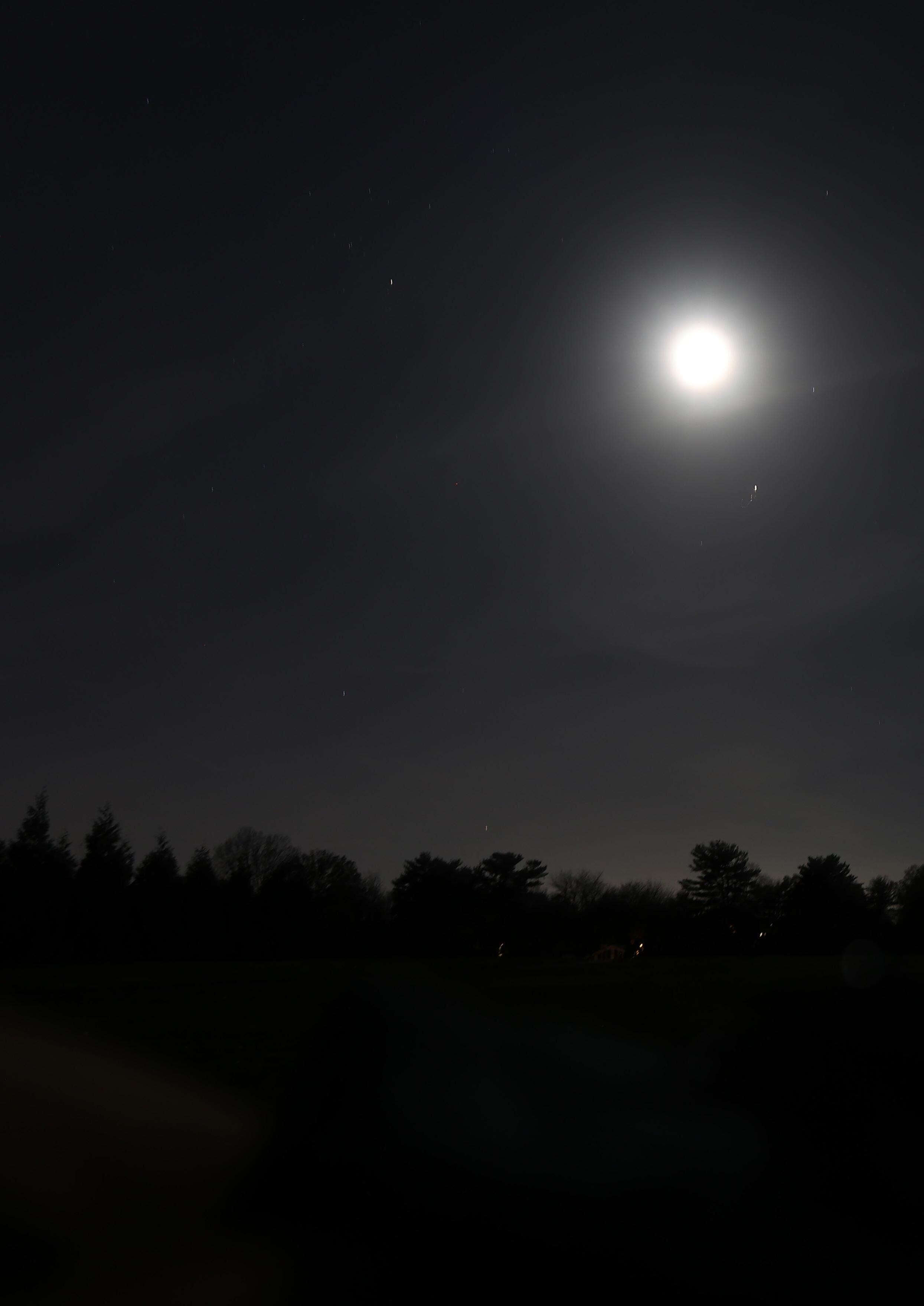
The moon is pale and sad, the moon is bloodless and stiff. The crescent moon appears to me as a soft silhouette of death... I, who prefer the distinguished and rich paleness Of all the Arabian pearls, the recently opened rose,
In a corner of land with the color of life, I adore that pale moon, I adore that face of death! And on the altar of the nights, like a flower on fire And drunk with strange perfumes, my soul surrenders.
I know of lips withered by blasphemy and wine, Who kiss after the revel of their footprints on the path; Fools who die kissing their image in frozen lakes...
Because she is the light of innocence, because in that mysterious light White things illuminate, things turn white, And even the blackest souls become uncertainly bright!
Translation by Will Fels ’25ABOUT THE AUTHOR:
Delmira Agustini (1886-1914), a celebrated Uruguayan and Latin American poet, began writing poetry at the age of 10. Heavily influenced by Rubén Darío, she was a modernist and broke many gender conventions in her writings. In the poem, “Al Claro de Luna”, Agustini compares the moon to a woman.
¡Pobre alma sola!, no te entristezcas, deja que pasen, deja que lleguen la primavera y el triste otoño, ora el estío y ora las nieves; que no tan sólo para ti corren horas y meses; todo contigo, seres y mundos de prisa marchan, todo envejece; que hoy, mañana, antes y ahora, lo mismo siempre, hombres y frutos, plantas y flores, vienen y se van, nacen y mueren.
Cuando te apene lo que atrás dejas, recuerda siempre que es más dichoso quien de la vida mayor espacio corrido tiene.
Poor lonely soul! Do not be sad, Let them pass, let them come, The spring and the sad autumn, Now the summer and now the snow; That not only for you Hours and months go by; Everything with you, beings and worlds march quickly, everything gets old;
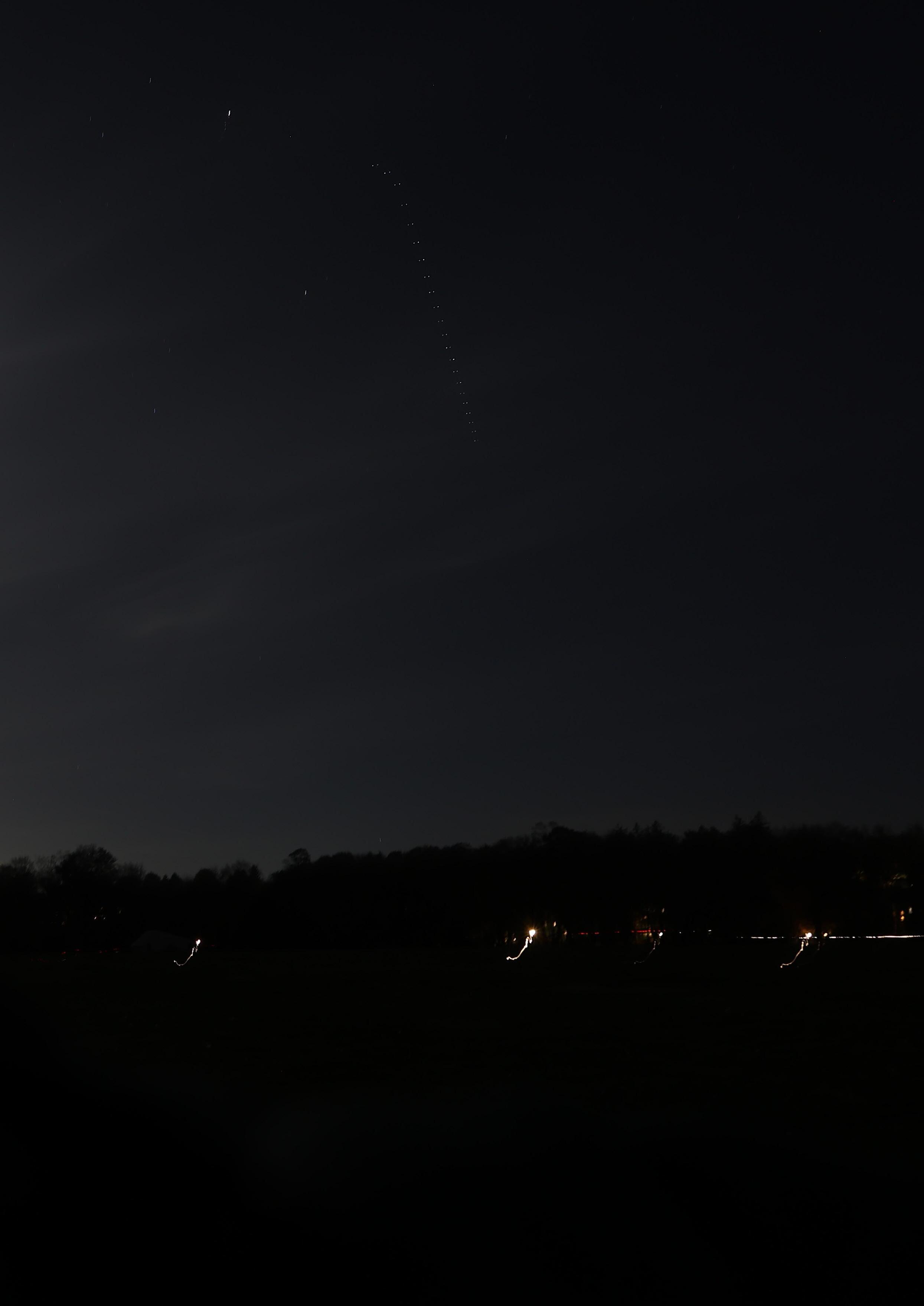
That today, tomorrow, before and now, Always the same, Men and fruits, plants and flowers, Come and leave, are born and die.
When you’re sad for what’s behind, Remember always That the person who is happiest in life Is that who has run the furthest .
Translation by Ludo Berardi ’25 By SebastianDeAngelis’24ABOUT THE AUTHOR:
Rosalía de Castro (1837-1885), a Galician icon, is considered one of the most important 19th century Spanish writers. Her foundational Galician poetry, is often filled with emotion and is focused on prevalent social and political issues of her time such as poverty, the abuse of power in the Spanish government, empowerment, Galician identity, emigration and loss. The poem, “¡Pobre alma sola! no te entristezcas”, published in 1909, is filled with de Castro’s characteristic nostalgia.
“Caminante, son tus huellas el camino y nada más; Caminante, no hay camino, se hace camino al andar. Al andar se hace el camino, y al volver la vista atrás se ve la senda que nunca se ha de volver a pisar. Caminante, no hay camino sino estelas en la mar.”
Traveler, your footprints Are the way and nothing more. Traveler, there is no path
You make the road as you walk. By walking you make your own path, And when you look back You see the path
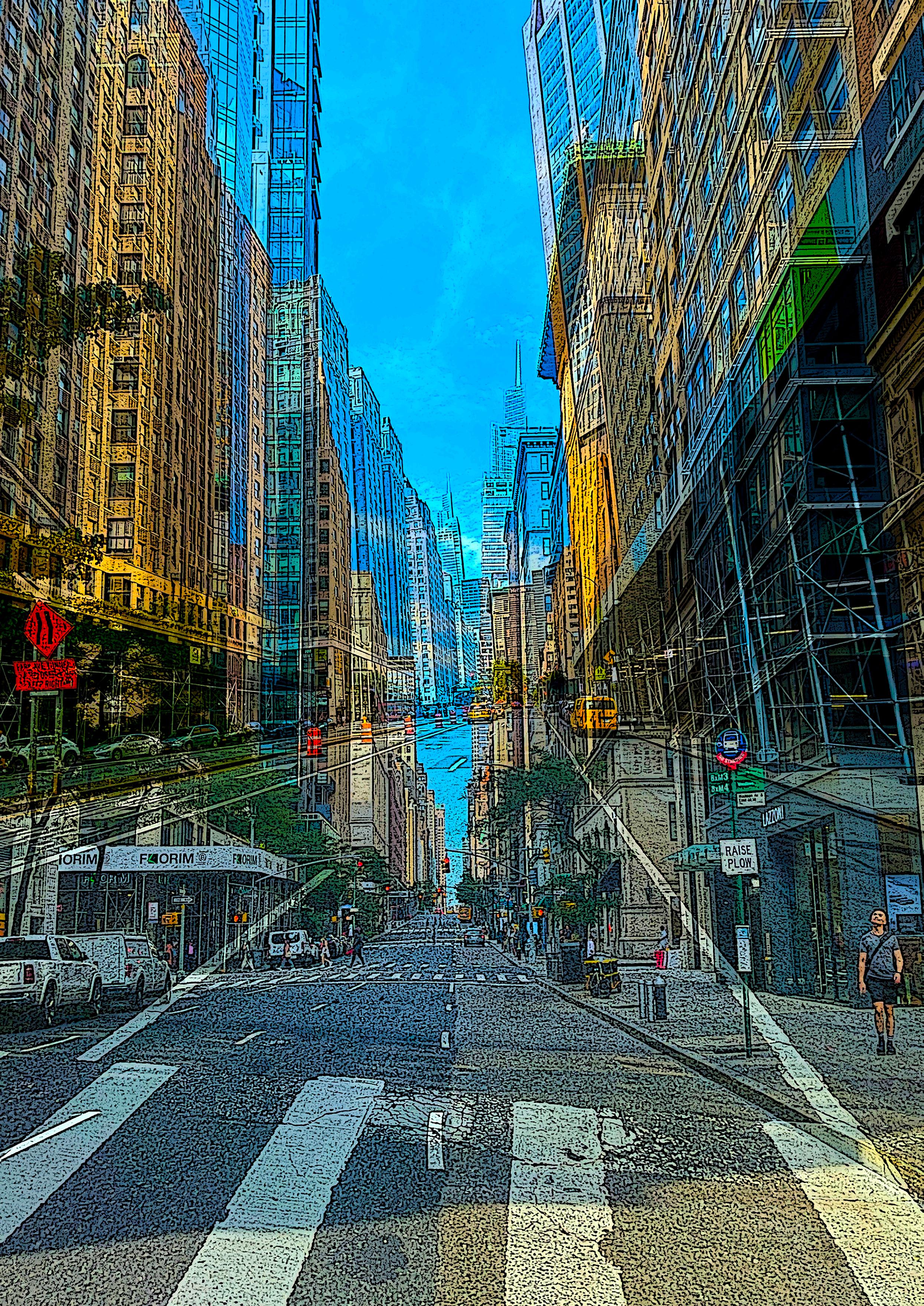
That you won’t ever walk again.
Traveler, there is no road Only a ship’s wake in the sea.
Translation by Annison Mahaffy ’25ABOUT THE AUTHOR:
Antonio Machado (1875-1939), was a leading literary figure in Spain’s Generation ‘98 movement. His works ranging from modernism to symbolism often expressed the relationship between humanity and a different way of existence. “Caminante, No Hay Camino” expresses a feeling of uncertainty.
Two roads diverged in a yellow wood, And sorry I could not travel both And be one traveler, long I stood And looked down one as far as I could To where it bent in the undergrowth;
Then took the other, as just as fair, And having perhaps the better claim, Because it was grassy and wanted wear; Though as for that the passing there Had worn them really about the same,
And both that morning equally lay In leaves no step had trodden black. Oh, I kept the first for another day! Yet knowing how way leads on to way, I doubted if I should ever come back.
Duae viae in flava silva declinaverunt, Et maestus quod ambabus ire non poteram Et unus viator esse, diu steti Et perspexi alteram quam longissime Quo flexit in peniculo;
I shall be telling this with a sigh Somewhere ages and ages hence: Two roads diverged in a wood, and I— I took the one less traveled by, And that has made all the difference
Tum cepi alteram, ut aeque pulchram, Et forsitan habentem melioris vindicias Quoniam erat graminea et tritu carebat Etsi de eo praetergressus ibi factus Triverat eas profecto fere eodem modo,
Et ambae illo mane itidem tegebantur
Foliis quae nullus gradus reddiderat nigra. O, servavi primam alteri diei! Sed sciens quomodo via ducat ad viam Dubitavi num revenirem umquam.
Narrabo hoc suspirio
Robert Frost (1874-1963), a deeply admired American poet, wrote arguably his most famous poem “The Road Not Taken”, for the August 1915 issue of The Atlantic Monthly.
Alicubi in saecula saeculorum: Duae viae in silva declinaverunt, et egoEgo cepi alteram minus frequentatam, Et illud totam differentiam fecit.
Translation by Jake Murphy ’24“The Road Not Taken,” a poem about nonconformity and individualism, describes the dilemma of a person standing at a fork in the road with two choices. This diversion symbolizes a common occurrence in life and the benefits of perhaps making the less common choice. In 1960, Frost was awarded the Congressional Gold Medal and claimed a record four Pulitzer Prizes for Poetry over his life.
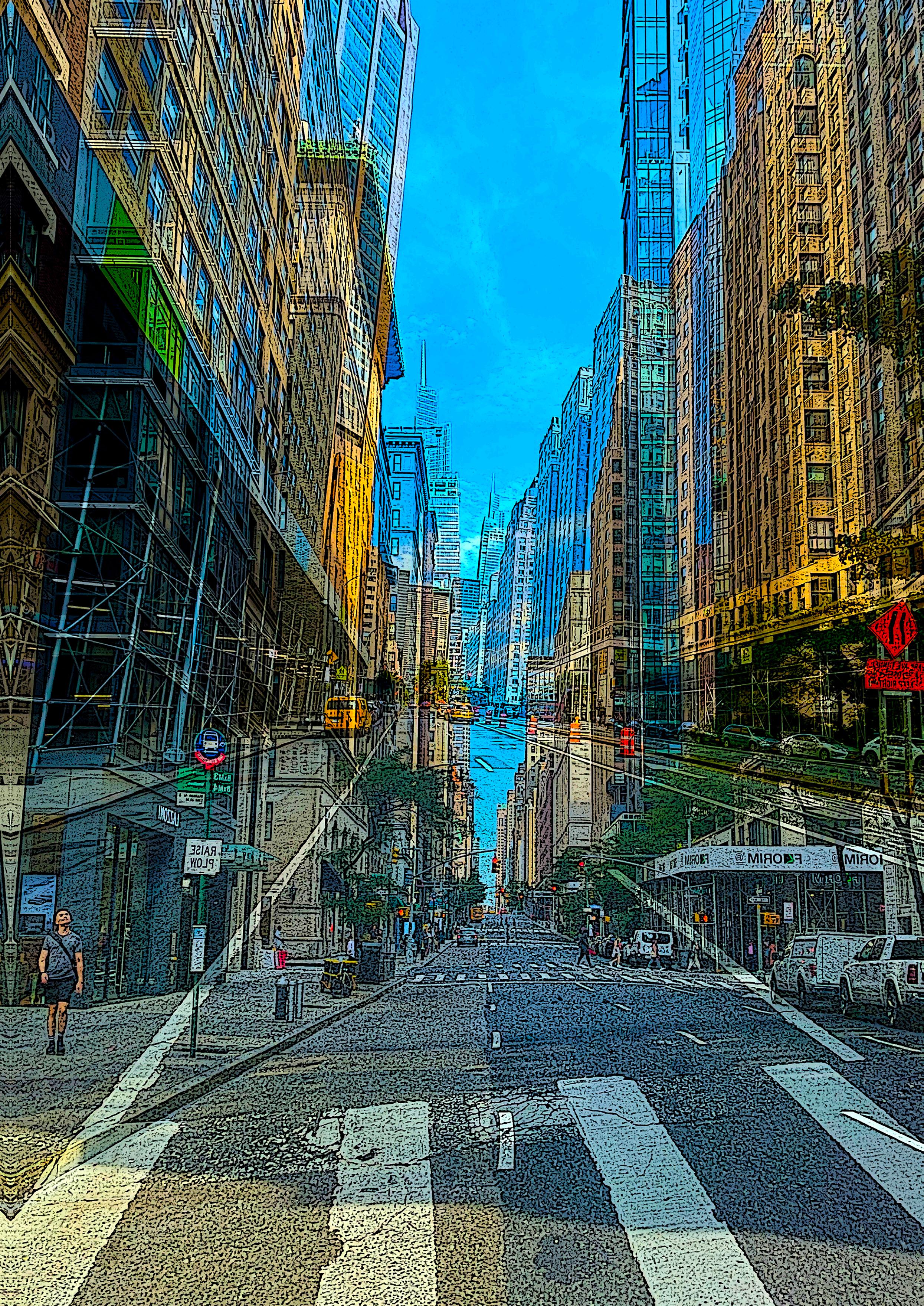
Me gustas cuando callas porque estás como ausente, y me oyes desde lejos, y mi voz no te toca. Parece que los ojos se te hubieran volado y parece que un beso te cerrara la boca.
Como todas las cosas están llenas de mi alma, emerges de las cosas, llena del alma mía. Mariposa de sueño, te pareces a mi alma, y te pareces a la palabra melancolía.
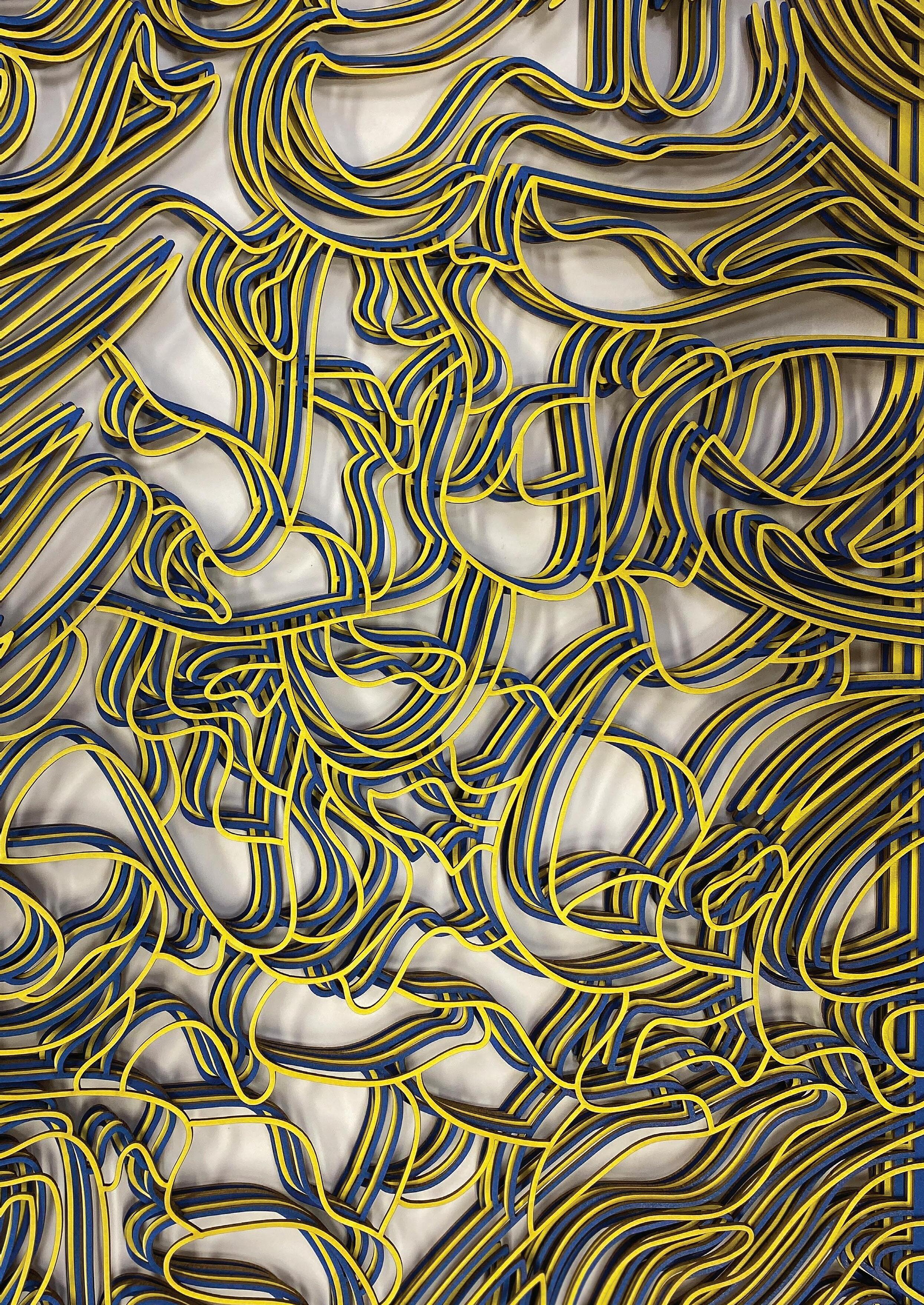
Me gustas cuando callas y estás como distante. Y estás como quejándote, mariposa en arrullo. Y me oyes desde lejos, y mi voz no te alcanza: Déjame que me calle con el silencio tuyo.
Déjame que te hable también con tu silencio claro como una lámpara, simple como un anillo. Eres como la noche, callada y constelada. Tu silencio es de estrella, tan lejano y sencillo.
Me gustas cuando callas porque estás como ausente. Distante y dolorosa como si hubieras muerto. Una palabra entonces, una sonrisa bastan. Y estoy alegre, alegre de que no sea cierto.
I like it when you’re silent, because its as if you are absent, and you hear me from far away, and my voice does not touch you. It seems as if your eyes have flown away and it seems as if a kiss has closed your mouth.
Just as everything is full of my soul, you emerge from all things, full of my soul. Dream butterfly, you look like my soul, and you look like a melancholy word.
I like it when you’re silent, and it is as if you are distant. And it is as if you’re complaining to yourself, a butterfly in a lullaby. And you hear me far away, and my voice does not reach you: Let me fall quiet with your silence.
Let me also speak to you with your silence clear as a lamp, simple as a ring. You are like the night, quiet and starry. Your silence is of a star, far away and simple.
I like it when you’re silent, it is like you are absent, distant and painful as if you’re dead. One word then, one smile is enough. And I am happy, happy that it is not true.
Translation by Jackson Choi’25ABOUT THE AUTHOR:
Pablo Neruda (1904-1973), the alias of Neftalí Ricardo Reyes Basoalto, was a renowned Chilean poet, diplomat and politician. Neruda, one of the most influential South American writers, began publishing in newspapers at the age of thirteen and went on to earn the Nobel Prize for Literature near the end of his career. Written at the age of 19, “Me Gustas Cuando Callas”, is about the love and harmony that can be found in silence.
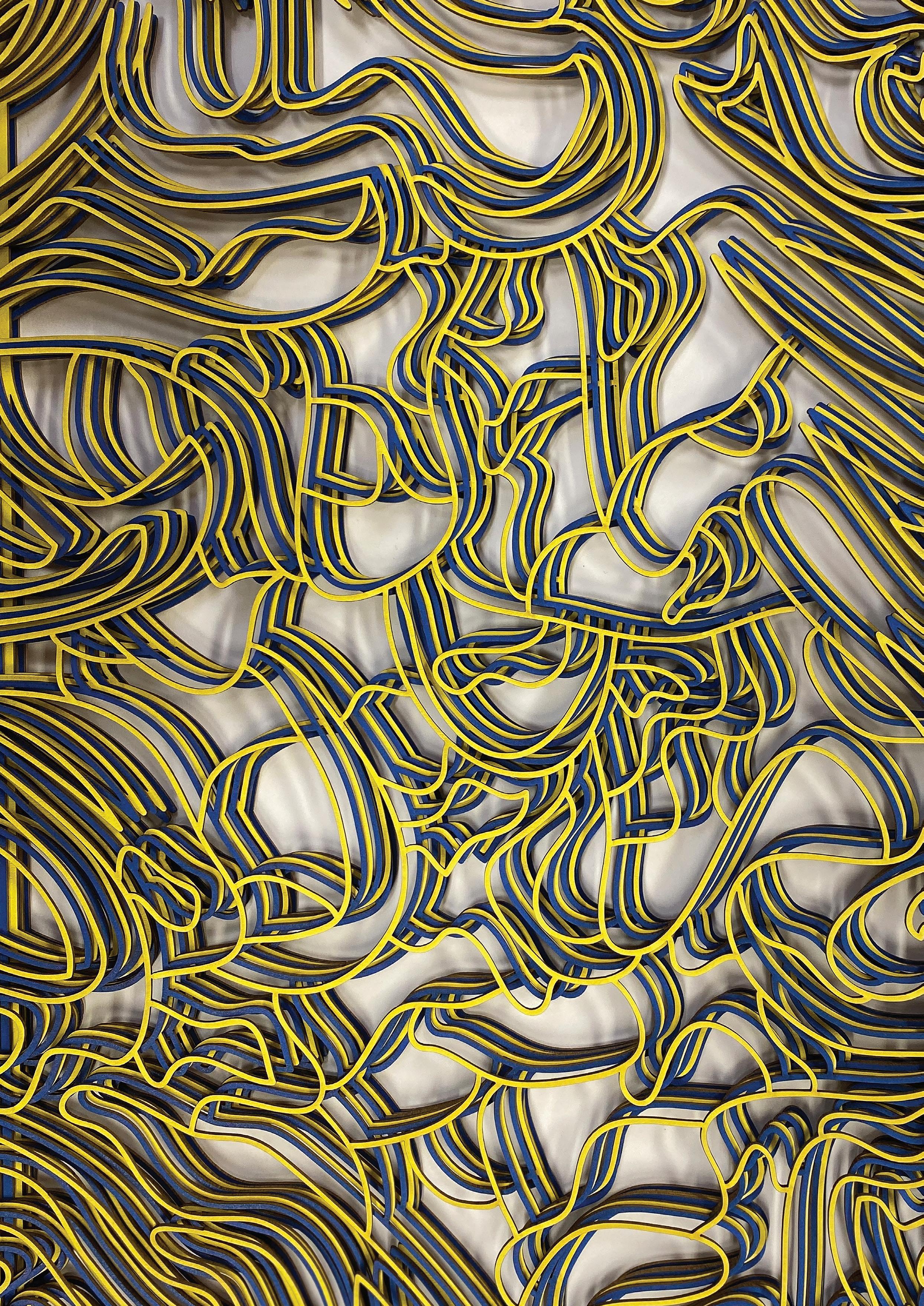 By JamesWalker’25
By JamesWalker’25
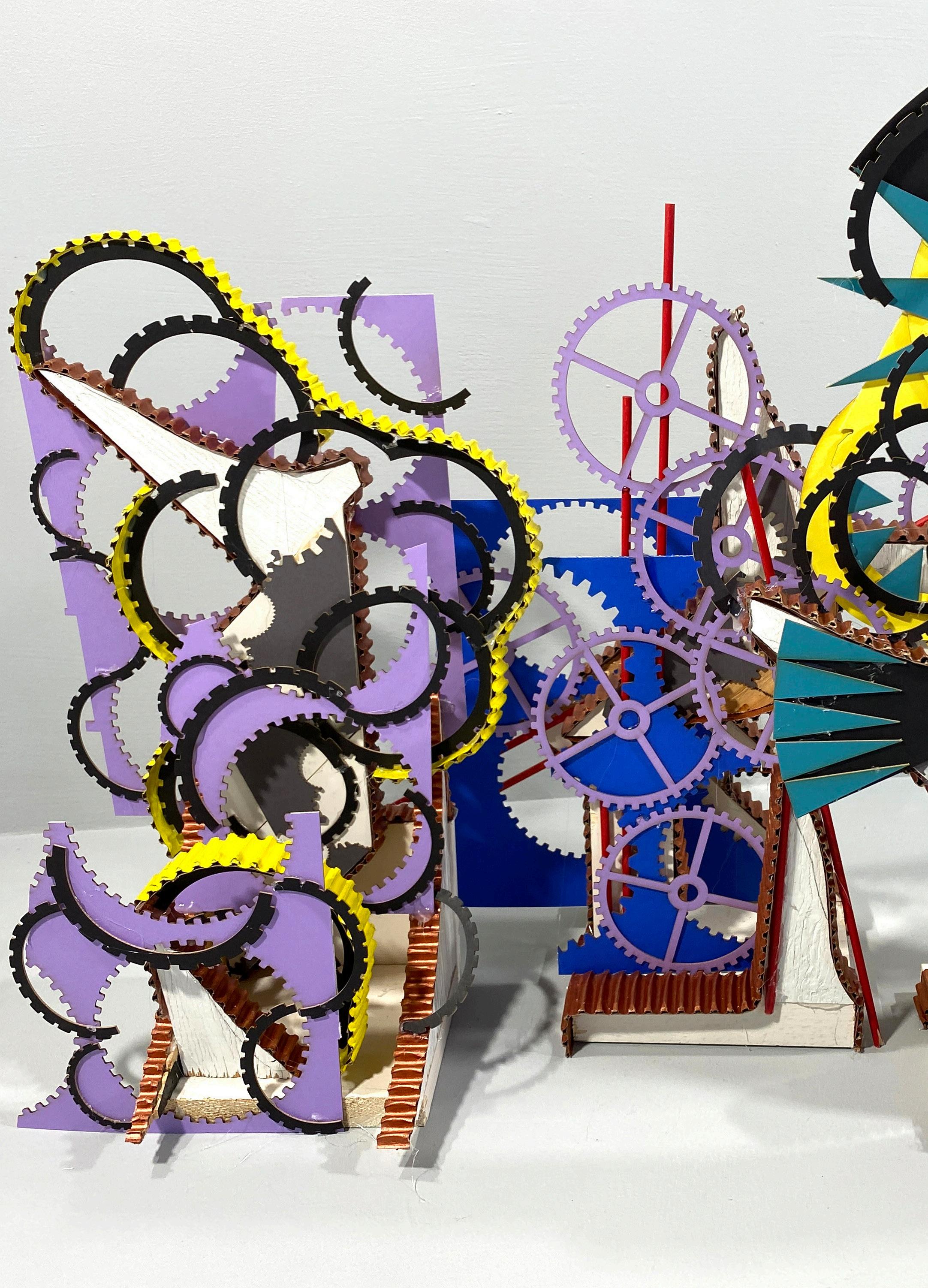 By OllieLeonard’25
By OllieLeonard’25
¡Ay qué trabajo me cuesta quererte como te quiero!
Por tu amor me duele el aire, el corazón y el sombrero.
¿Quién me compraría a mí este cintillo que tengo y esta tristeza de hilo blanco, para hacer pañuelos?
¡Ay qué trabajo me cuesta quererte como te quiero!
Oh, how much work it is to love you as I do!
My love for you is so great that the air, my heart and (even) my hat pain me.
Who would buy from me this ribbon I hold And this grief-stricken, white thread to make handkerchiefs?
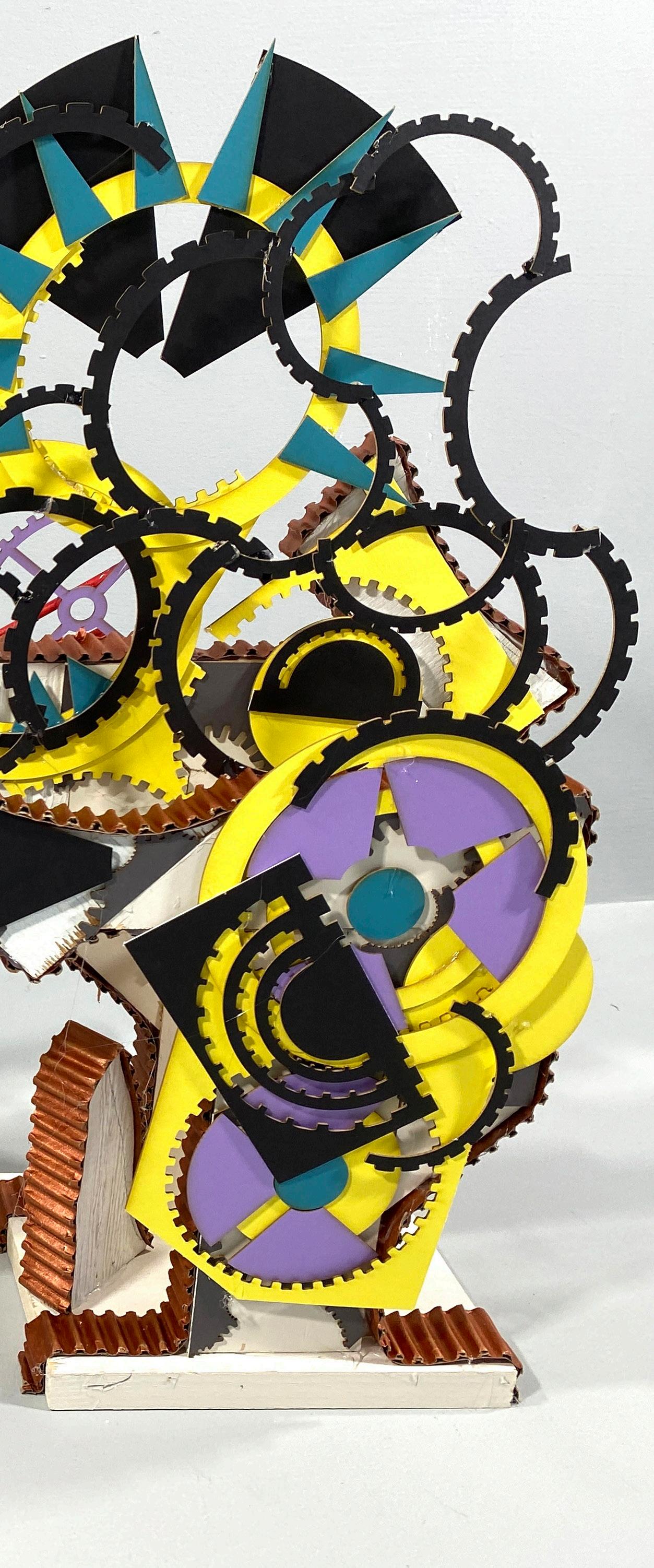
Oh, how much work it is to love you as I do!
Translation by Ryan Warner ’25
ABOUT THE AUTHOR:
Widely considered one of the most influential Spanish artists of the 20th century, Federico García Lorca (1898-1936), was assassinated by fascist forces during the Spanish Civil War. García Lorca based his works on the themes of love, life and death and “Es Verdad” is considered one of the finest works in Spanish literature.
Me moriré en París con aguacero, un día del cual tengo ya el recuerdo. Me moriré en París -y no me corrotal vez un jueves, como es hoy, de otoño.
Jueves será, porque hoy, jueves, que proso estos versos, los húmeros me he puesto a la mala y, jamás como hoy, me he vuelto, con todo mi camino, a verme solo.
César Vallejo ha muerto, le pegaban todos sin que él les haga nada; le daban duro con un palo y duro
también con una soga; son testigos los días jueves y los huesos húmeros, la soledad, la lluvia, los caminos…
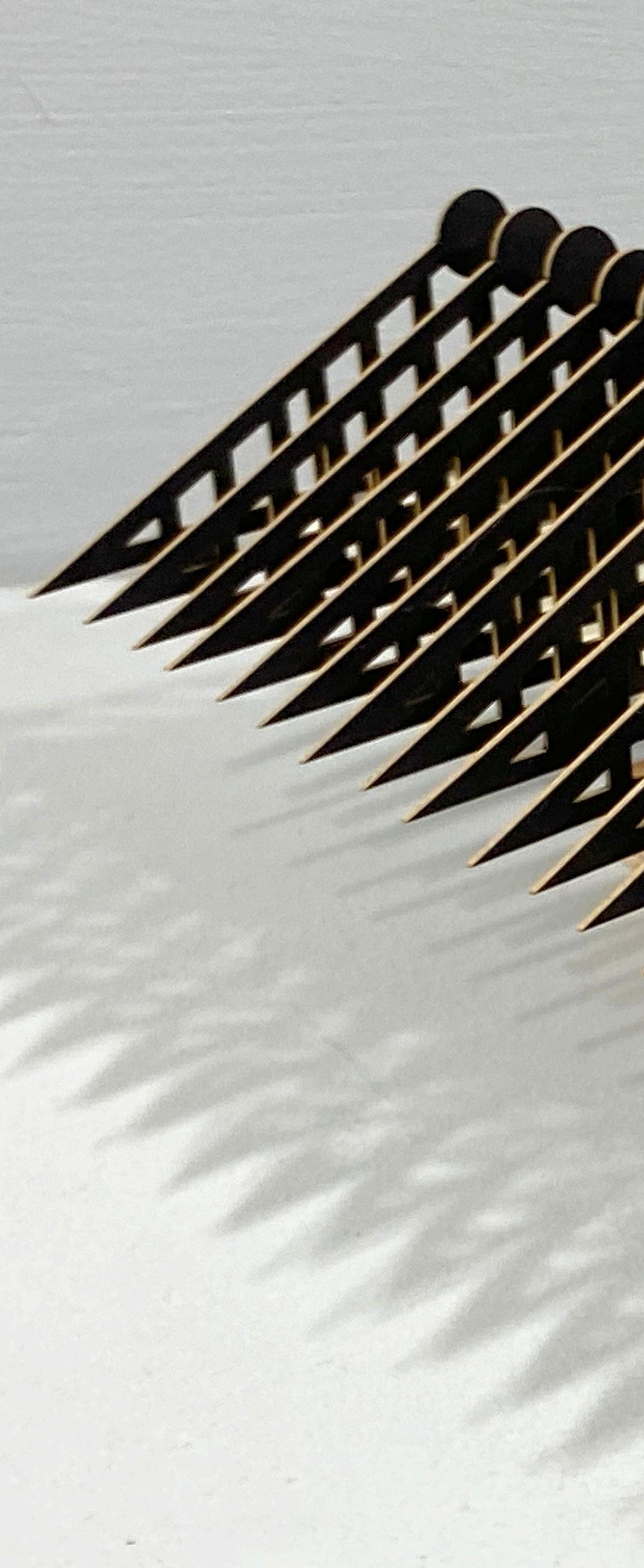
I will die in Paris during a rainy day, a day I can already remember.
I will die in Paris – and I won’t run–perhaps on a Thursday, like today is, in autumn.
It will be Thursday, because today, Thursday, I say these verses, I have put so much wrong on my arms, and never as much as today have, I turned myself with all the road ahead of me, I see myself alone.
César Vallejo has died. They beat him everyone although he never did anything to them; they beat him hard with a stick and hard
also with a rope; they are the witnesses: the Thursdays, and the bones of my arms, the solitude, the rain, the roads…
- Translation by Carter Bagaria ’24
ABOUT THE AUTHOR:
Considered one of the greatest poetic innovators of the 20th century given his important contribution to modernism, César Vallejo (1892-1938) was a Peruvian poet, writer, playwright, and journalist. Written in the 1900s, “A Black Stone on a White Stone” manipulates time by using different tenses to merge the future and the past beyond what is possible by human perception.
 By KodyHorton’25
By KodyHorton’25
 By Jacques Prévert, 1945
By Jacques Prévert, 1945
Oh! je voudrais tant que tu te souviennes
Des jours heureux où nous étions amis.
En ce temps-là la vie était plus belle,
Et le soleil plus brûlant qu’aujourd’hui.
Les feuilles mortes se ramassent à la pelle
Tu vois, je n’ai pas oublié…
Les feuilles mortes se ramassent à la pelle,
Les souvenirs et les regrets aussi.
Et le vent du nord les emporte
Dans la nuit froide de l’oubli.
Tu vois, je n’ai pas oublié
La chanson que tu me chantais.
C’est une chanson qui nous ressemble, Toi, tu m’aimais et je t’aimais.
Et nous vivions tous deux ensemble, Toi qui m’aimais, moi qui t’aimais.
Mais la vie sépare ceux qui s’aiment
Tout doucement, sans faire de bruit.
Et la mer efface sur le sable
Les pas des amants désunis.
Les feuilles mortes se ramassent à la pelle,
Les souvenirs et les regrets aussi.
Mais mon amour silencieux et fidèle, Sourit toujours et remercie la vie.
Je t’aimais tant, tu étais si jolie, Comment veux-tu que je t’oublie?
En ce temps-là, la vie était plus belle
Et le soleil plus brûlant qu’aujourd’hui.
Tu étais ma plus douce amie
Mais je n’ai que faire des regrets.
Et la chanson que tu chantais
Toujours, toujours je l’entendrai!
By LucLampert’24ABOUT THE AUTHOR:
A leading poet of the 20th century, Jacques Prévert (1900-1977) was a French activist, journalist, playwright and screenwriter, widely studied in school in part because of his children’s’ poetry. The poem meanders the path of memories brought about by the sight of Autumn leaves, and explores the impossibility of reconciling the past with the present – a recurrent theme of French poems. First set to music by his friend Joseph Kosma, adapted into English by Johnny Mercer, and later recorded by many including Edith Piaf, Yves Montand, Nat King Cole and Frank Sinatra.
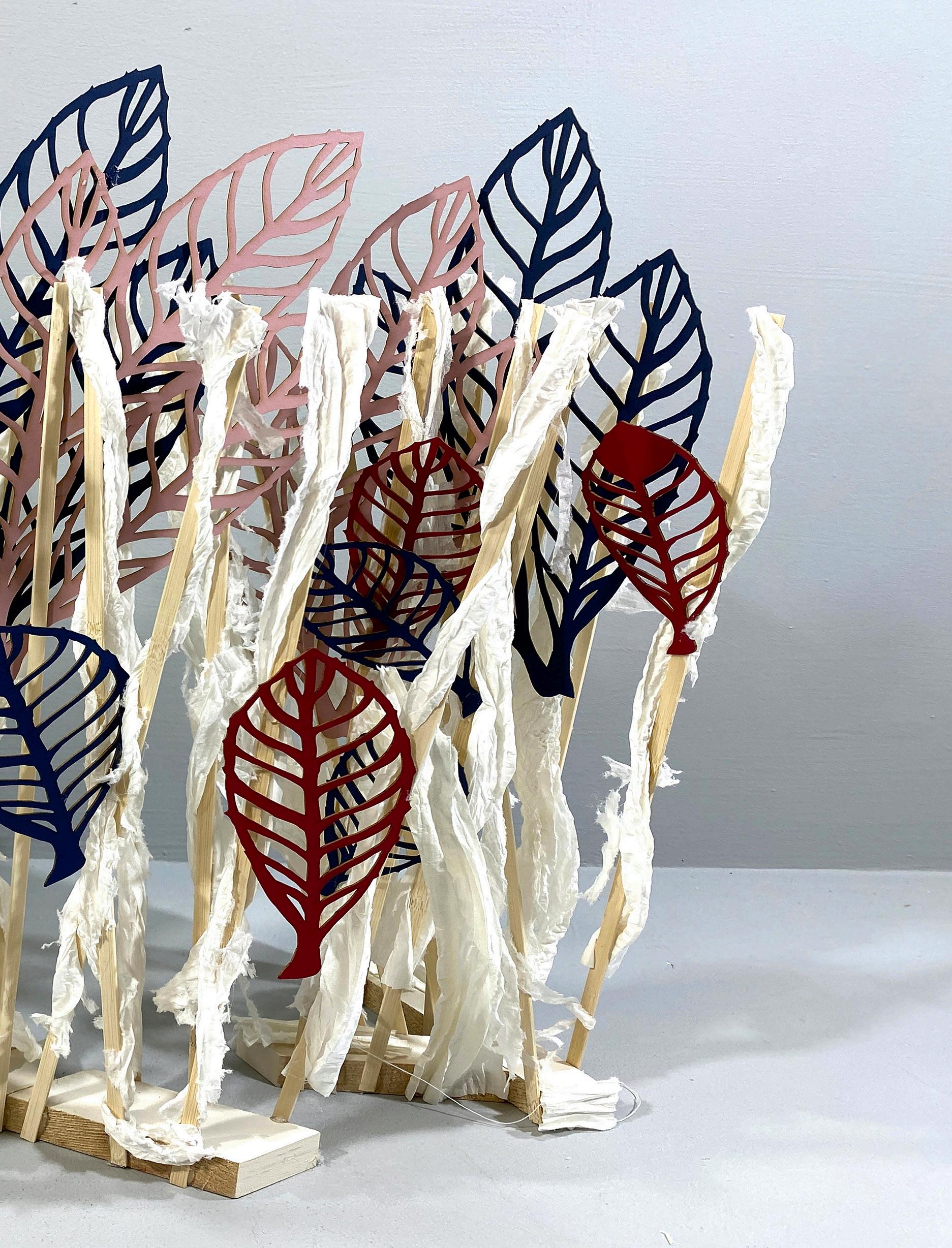 Translation by James Lynch ’25
Translation by James Lynch ’25
Oh, how I wish you would remember The happy days when we were friends. Back then, life was more beautiful, And the sun hotter than today. The dead leaves are gathered in piles, You see, I have not forgotten... The dead leaves are gathered in piles, Memories and regrets too. And the north wind carries them Into the cold night of oblivion. You see, I have not forgotten The song you used to sing to me.
It’s a song that resembles us, You loved me and I loved you. And we both lived together, You who loved me, me who loved you. But life separates those who love each other Slowly, without making a sound. And the sea erases on the sand The steps of the separated lovers.
The dead leaves are gathered in piles, Memories and regrets too. But my silent and faithful love Still smiles and thanks life. I loved you so much, you were so pretty, How could I forget you? Back then, life was more beautiful, And the sun hotter than today. You were my sweetest friend, But I have no use for regrets. And the song you used to sing I will always, always hear it!

Chilean
1960: “Soneto XVII” by Pablo Neruda; Translation by Siena Sabitsana ’25
Tigrinya
Unknown Date: “The Next Generation” by Dr. Reesom Haile; Translation by Roble Daniel ’24
Hindi
Unkown Date: “Those Who Make an Effort Never Truly Fail” by Sohanlal Dwivedi; Translation by Subir Garg ’25
Mexican
1950-1990: “Movimiento” by Octavio Paz; Translation by Subir Garg ’25
Arabic
1970: “I Never Was a King” by Nizar Qabbani; Translation by Jack Neal ’23
Guatemalan
Unknown Date: “Desde Mi Pequeña Vida” by Margarita Carrera; Translation by Brendan Davey ’24
Arabic
1970s: “On Entering The Sea” by Nizar Qabbani; Translation by Jack Neal ’23
1970s: “Letters from Under the Sea” by Nizar Qabbani; Translation by Jack Neal ’23
Chilean
~1973: “Un Perro ha Muerto” by Pablo Neruda; Translation by Emily Hall ’25
American
1974: “Where the Sidewalk Ends” by Shel Silverstein; Translation by Peyton Wolfram ’24
Arabic

Unknown Date: “In the Summer” by Nizar Qabbani; Translation by Leo Gaza ’25
Colombian
2007: “Si Supiera” by Gabriel García Márquez; Translation by William Schmitz ’24

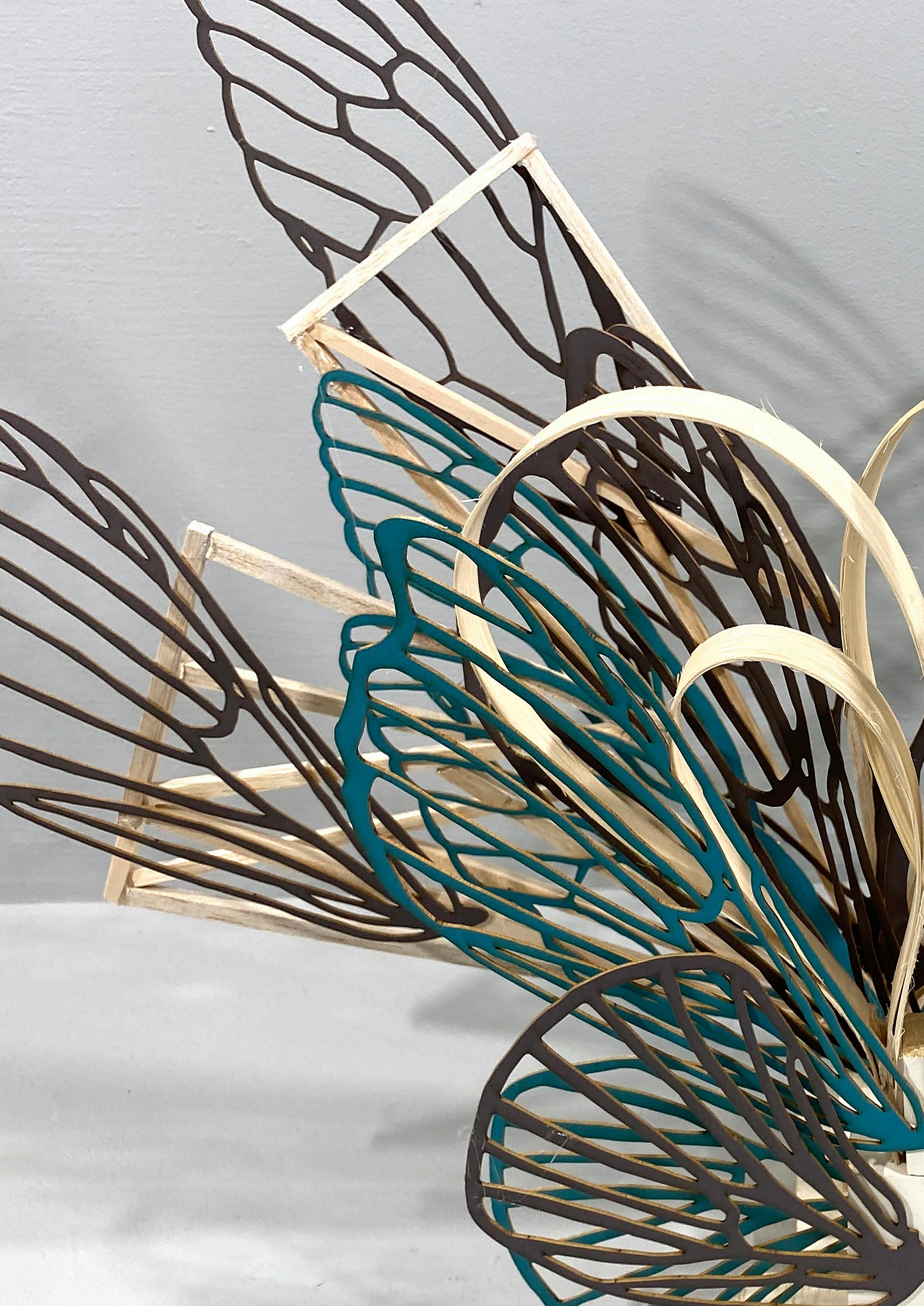
No te amo como si fueras rosa de sal, topacio o flecha de claveles que propagan el fuego: te amo como se aman ciertas cosas oscuras, secretamente, entre la sombra y el alma.
Te amo como la planta que no florece y lleva dentro de sí, escondida, la luz de aquellas flores, y gracias a tu amor vive oscuro en mi cuerpo el apretado aroma que ascendió de la tierra.
Te amo sin saber cómo, ni cuándo, ni de dónde, te amo directamente sin problemas ni orgullo: así te amo porque no sé amar de otra manera,
sino así de este modo en que no soy ni eres, tan cerca que tu mano sobre mi pecho es mía, tan cerca que se cierran tus ojos con mi sueño.
ABOUT THE AUTHOR:
Pablo Neruda (1904-1973), the alias of Neftalí Ricardo Reyes Basoalto, was a renowned Chilean poet, diplomat and politician. Neruda, one of the most influential South American writers, began publishing in newspapers at the age of thirteen and went on to earn the Nobel Prize for Literature near the end of his career. “ Soneto XVII,” about a deep secretive love, is one of Neruda’s most famous from the book “100 Love Sonnets” published in 1960.
I do not love you as if you were a rose of salt, or topaz, Or the arrow of carnations that the fire shoots off; I love you as certain dark things are loved; secretly, between the shadow and the soul.
I love you as the plant that doesn’t bloom and wears within it, hidden, the light of those flowers, and thanks to your love an unyielding fragrance that ascended from the earth lives darkley in my body.
I love you without knowing how, nor when, nor from where, I love you directly without problems nor pride: I love you so because I don’t know how to love any other way,
but if not in this way, where I am not and you are not; so close that your hand on my chest is mine, so close that you close your eyes with my sleep.
Translation by Siena Sabitsana ’25
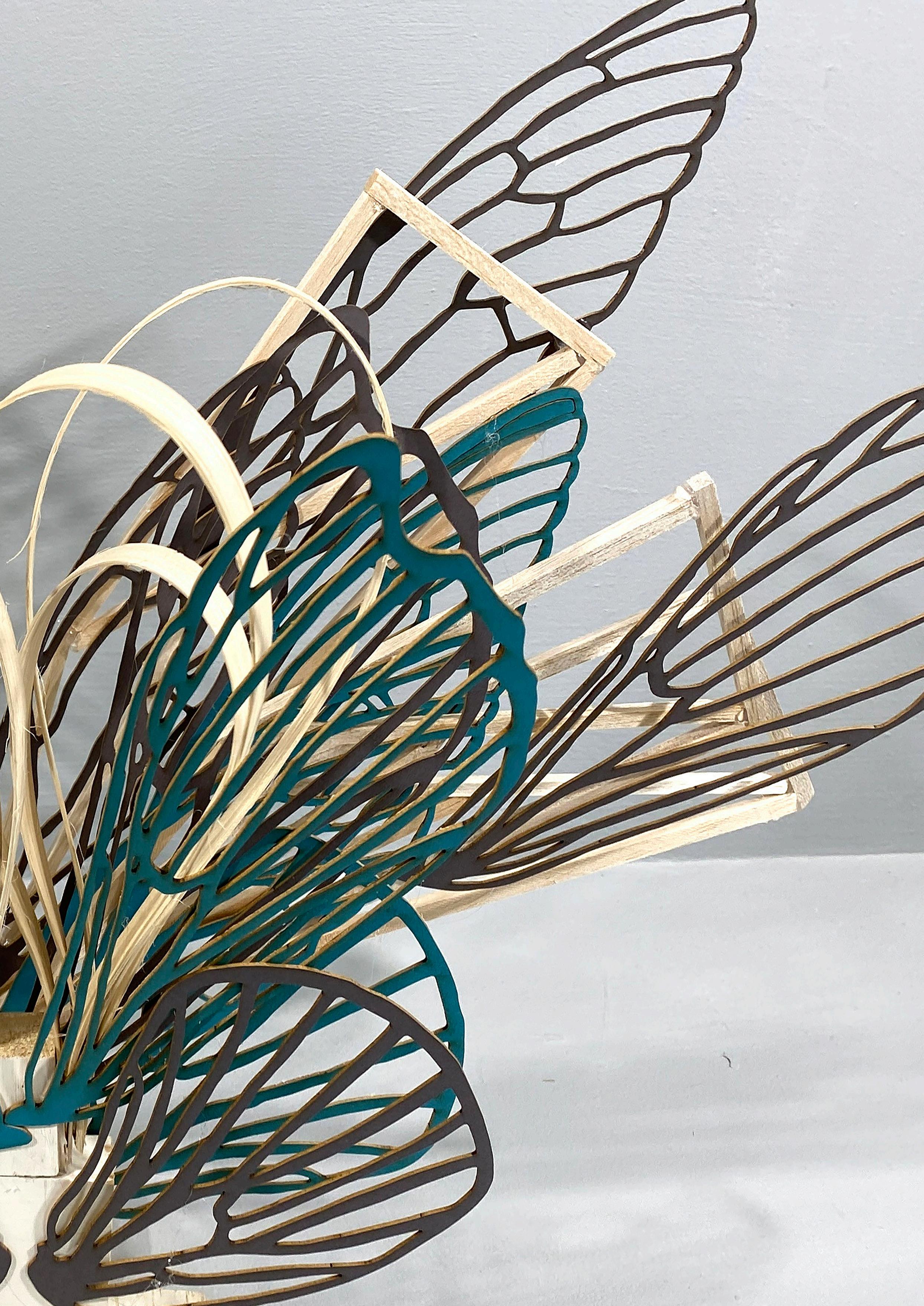 By AndenBoulan’25
METAMORPHOSIS
By AndenBoulan’25
METAMORPHOSIS
GEARS OF TIME
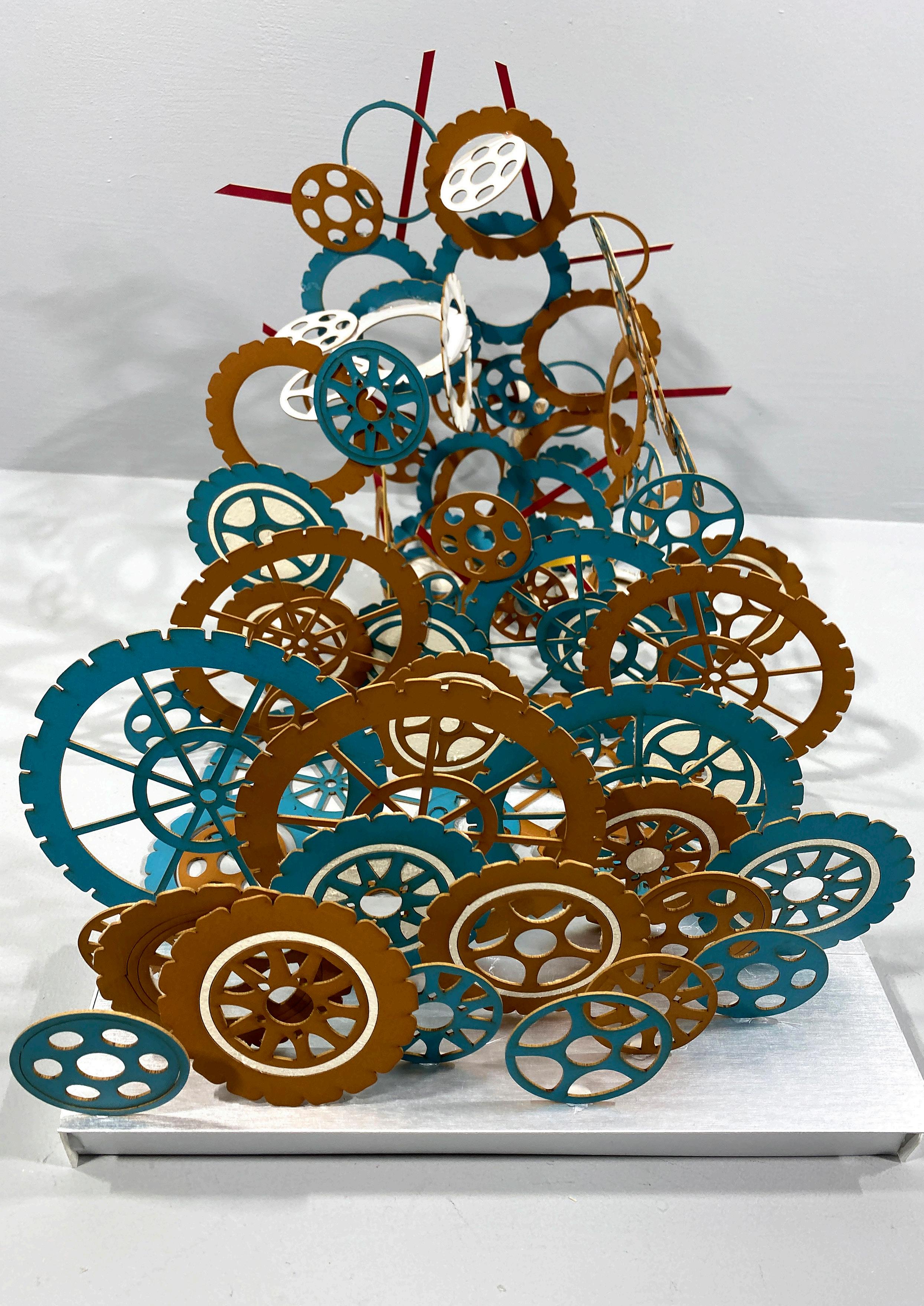 By SeanRyan’25
By SeanRyan’25
The next generation has arrived
Speaking languages from around the world
Let’s rise and welcome them
Wash their tired feet with warm water
Serve our best bread, drinks, and let us feast
Offer our softest blanket to keep them warm
Walk with them by the river side, mountains, and valleys,
What we inherited, we bestow to you
Our legacy, our history, and our culture
For you to share
But promise us
You will keep it safe
Translation by Robel Daniel ’24 (with help from his father)

ABOUT THE AUTHOR:
Dr. Reesom Haile (1946-2003), born and raised in Eritrea, became the country's poet laureate and their first internationally recognized poet. His first poetry collection earned the Raimok Prize, Eritrea's highest literary honor. In the poem, “ዝመጽእ ወለዶ,” written in Tigrinya, Haile discusses the next generation of Eritreans and Africans who are now spread across the globe, many speaking different, Non-African, languages. He speaks about greeting this generation, offering their best food, warmest blankets, and wisest teachings, hoping for this generation to continue their legacy.
By Dr. Reesom Haile, Unknown Dateእቲ ዝመጽእ ወለዶ መጺኡ’ሎ ተንስኡ ብዓጀብ ንቀበሎ! ሃየ በቲ ዝርድኦ ዝፈልጦ መርሓባ ብደሓን ምጻእ ዌልካም! ቪልኮመን ብየንቬኑ! በንቨኑቶ ንበሎ። ሓቦ ንግበር ሓቦ ማይ ኣውዒና እግሩ ንሕጸቦ ነብልዓዮ፡ ነስትዮ፡ ነጽግቦ፡ ነማሙቆ፡ ጋቢ ንደርቦ ነሰንዮ፡ ነኽብቦ በቲ ሩባ በቲ ጎቦ ምስ ዓበየ ክዓጅቦ። ይመሃር!
Boats that fear the waves never cross the ocean
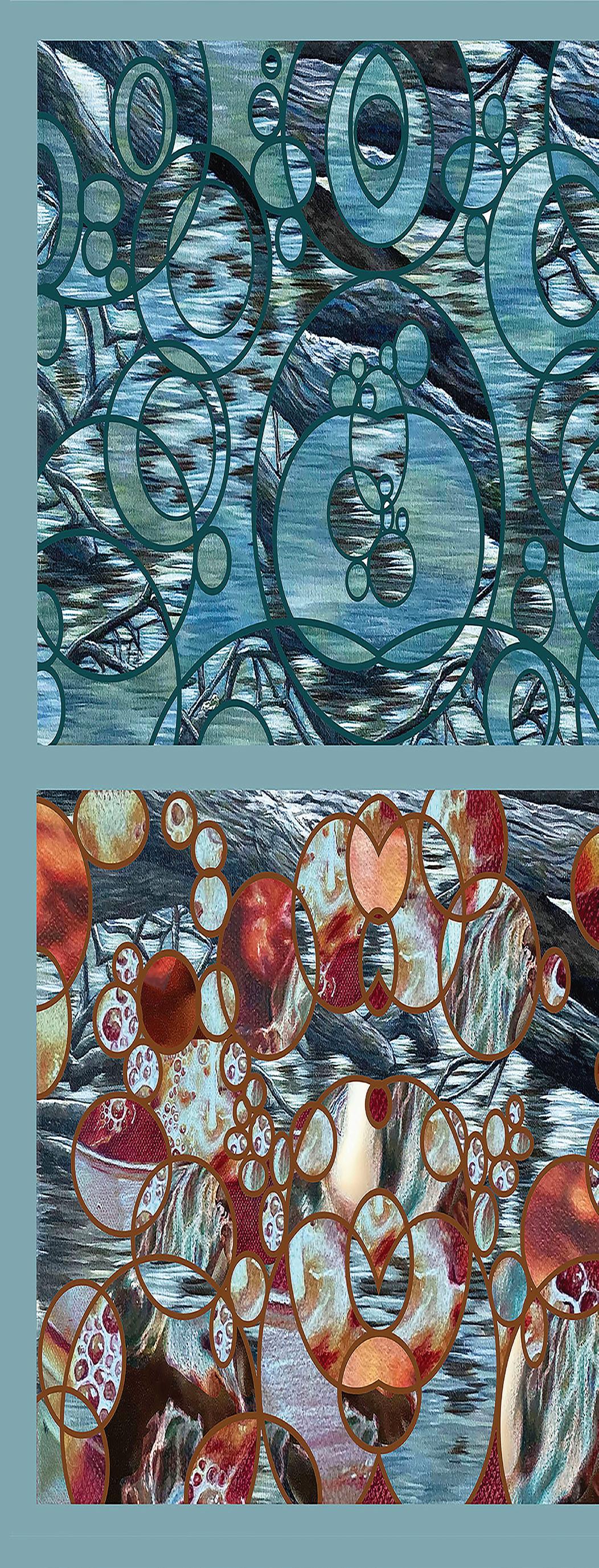
Those who make an effort never truly fail
When a baby ant carries a grain
It slips a hundred times trying to climb the wall
The faith in its heart fills its veins with courage
Climbing and falling, falling and climbing, it is unfazed
In the end, its efforts are not in vain
Those who make an effort never really fail...
Translation by Subir Garg ’25ABOUT THE AUTHOR:
Sohanlal Dwivedi (1906-1988) was considered a national Indian poet. Strongly influenced by Mahatma Gandhi, he published numerous anthogies, patriotic poems and was awarded in 1970 the Padma Shri, the 4th highest civilian award, by the Indian government.

 By GunnarGregory’24
By GunnarGregory’24
If you are the amber mare
I am the path of blood
If you are the first snowfall
I am the one who lights the dawn
If you are the tower in the night
I am the nail burning on your forehead
If you are the morning tide
I am the cry of the first bird
If you are the basket of oranges
I am the knife of the sun
If you are the stone altar
I am the sacrilegious hand
If you are the sleeping land
I am the green cane
If you are the rush of the wind
I am the buried fire
If you are the mouth of water
I am the mouth of moss
If you are the forest of clouds
I am the ax that splits it
If you are the desecrated city
I am the rain of consecration
If you are the yellow mountain
I am the red arms of lichen
If you are the son that rises
I am the path of blood
Translation by Subir Garg ’25Si tú eres la yegua de ámbar yo soy el camino de sangre
Si tú eres la primer nevada yo soy el que enciende el brasero del alba
Si tú eres la torre de la noche yo soy el clavo ardiendo en tu frente
Si tú eres la marea matutina yo soy el grito del primer pájaro
Si tú eres la cesta de naranjas yo soy el cuchillo de sol
Si tú eres el altar de piedra yo soy la mano sacrílega
Si tú eres la tierra acostada yo soy la caña verde
Si tú eres el salto del viento yo soy el fuego enterrado
Si tú eres la boca del agua yo soy la boca del musgo
Si tú eres el bosque de las nubes yo soy el hacha que las parte
Si tú eres la ciudad profanada yo soy la lluvia de consagración

Si tú eres la montaña amarilla yo soy los brazos rojos del liquen
Si tú eres el sol que se levanta yo soy el camino de sangre
ABOUT THE AUTHOR:
Octavio Paz (1914-1998), a Mexican poet, was a Nobel Prize winning author and wrote many poems about the importance of love and creativity in one’s life. He believed that the pursuit of intellectual endeavors could help overcome loneliness and solitude. In the poem, “Movimiento”, Paz juxtaposes active and passive imagery to create a sense of motion.

I never was a king
Nor will I ever be one
I never had a throne
Nor did I wear a crown
I never had a kingdom.
Nor did I rule a land
I never was a prince
Nor did I have a command
But when I see you, my love
I feel like a king
And in your eyes, my dear
I see my kingdom shining
I never was a king
Nor will I ever be one
But in your arms, my love
I feel like I’ve won
By Nizar Qabbani, 1970ABOUT THE AUTHOR:
Nizar Qabbani (1923-1998) was a Syrian poet and diplomat known for his romantic and political poetry. He is considered one of the most influential and widely read poets of the Arab world. Much of his poetry reflects his commitment to social justice and human rights and his focus on love and sensuality.
Desde mi pequeña vida te canto hermano lloro tu sangre por las calles derramada y lloro tu cuerpo y tu andar perdido.
Ahora estoy aquí de nuevo contigo hermano.
Tu sangre es mi sangre y tu grito se queda en mis pupilas en mi cantar mutilado
From my small life I sing to you brother and I cry your blood shed in the streets and I cry your body and your lost walk
Now I am here again with you brother. Your blood is my blood and your scream stays in my pupils in my mutilated song.
Translation by Brendan Davey ’24Accomplishing many “firsts,” Margarita Carrera (1929-2018), a Guatemalan writer, philosopher and professor, was the first woman to graduate with a degree in Literature from the Unversidad de San Carlos de Guatemala and was also the first woman to become a member of the Academia Guatemalteca de Lengua. Having lost her father to suicide at a young age, Carrera often wrote about men to help her better understand the father she lost. “Desde Mi Pequeña
Vida” is a poem about the seeming senselessness of civilian life compared to those that lost their lives fighting for liberty in the Guatemalan Civil War (1960-1996).
ABOUT THE AUTHOR: TIME IS TICKING
 By SeanKelly’25
By SeanKelly’25
On Entering the Sea
Love finally happened, And We entered God’s paradise, Sliding
Under the skin of the water
Like fish.
We saw the precious pearls of the sea
And We were amazed. Love finally happened
Without intimidation…with symmetry of wish. So I gave…and you gave And we were fair.
It happened with marvelous ease
Like writing with jasmine water, Like a spring flower from the ground.
Nizar Qabbani (1923-1998) was a Syrian poet and diplomat known for his romantic and political poetry. He is considered one of the most influential and widely read poets of the Arab world. Much of his poetry reflects his commitment to social justice and human rights and his focus on love and sensuality.
 By ZaraKurbanov’25
By ZaraKurbanov’25
Letters from Under the Sea

If you were my friend. Help me
To leave you
Or if you were my beloved. Help me
To heal from you
If I knew that love is very dangerous
I would not have loved
If I knew that the sea is very deep
I would not have sailed
If I knew the end
I would not have started
I miss you. So teach me
To not miss you
Teach me
How to take your love from the depths
Teach me
How tears die in the eyes
Teach me
How the heart wants to die
If you are a prophet. Save me
From this magic
From this disbelief
Your love is like disbelief, so purify me
From this disbelief
If you are strong. Take me away
From this sea
I don’t know how to swim
The blue wave in your eyes takes me deeper
And I have no experience
In love. And I have no boat
If you care for me. Take my hand
I am in love from my head to my toes
I breathe underwater
I drown
I drown
I drown
Translation by Jack Neal ’23Ay cuántas veces quise tener cola andando junto a él por las orillas del mar, en el invierno de Isla Negra, en la gran soledad: arriba el aire traspasado de pájaros glaciales, y mi perro brincando, hirsuto, lleno de voltaje marino en movimiento: mi perro vagabundo y olfatorio enarbolando su cola dorada frente a frente al Océano y su espuma.
Alegre, alegre, alegre como los perros saben ser felices, sin nada más, con el absolutismo de la naturaleza descarada. No hay adiós a mi perro que se ha muerto. Y no hay ni hubo mentira entre nosotros.
Ya se fue, y lo enterré, y eso era todo.
Oh how many times I wanted to have a tail walking next to my dog along the shores of the sea, in the winter of Isla Negra, in the vast solitude: up above, the air Is traversed by glacial birds and my dog jumping, furry, full of the sea’s moving voltage: my dog, wandering and sniffing, raising his golden tail high face to face with the ocean and its foam.
Happy, happy, happy how dogs know how to be happy, and nothing more, with the absolutism of their shameless nature. There are no goodbyes for my dog that has died. And there is nor was a lie between us
My dog is gone now, and buried, and that is it.
Translation by Emily Hall ’25
ABOUT THE AUTHOR: Pablo Neruda (1904-1973), the alias of Neftalí Ricardo Reyes Basoalto, was a renowned Chilean poet, diplomat and politician. Neruda, one of the most influential South American writers, began publishing in newspapers at the age of thirteen and went on to earn the Nobel Prize for Literature near the end of his career. Written near the time of his own death, “Un Perro ha Muerto” is a tribute to his lost pet and is even more poignant given Neruda’s imminent death.
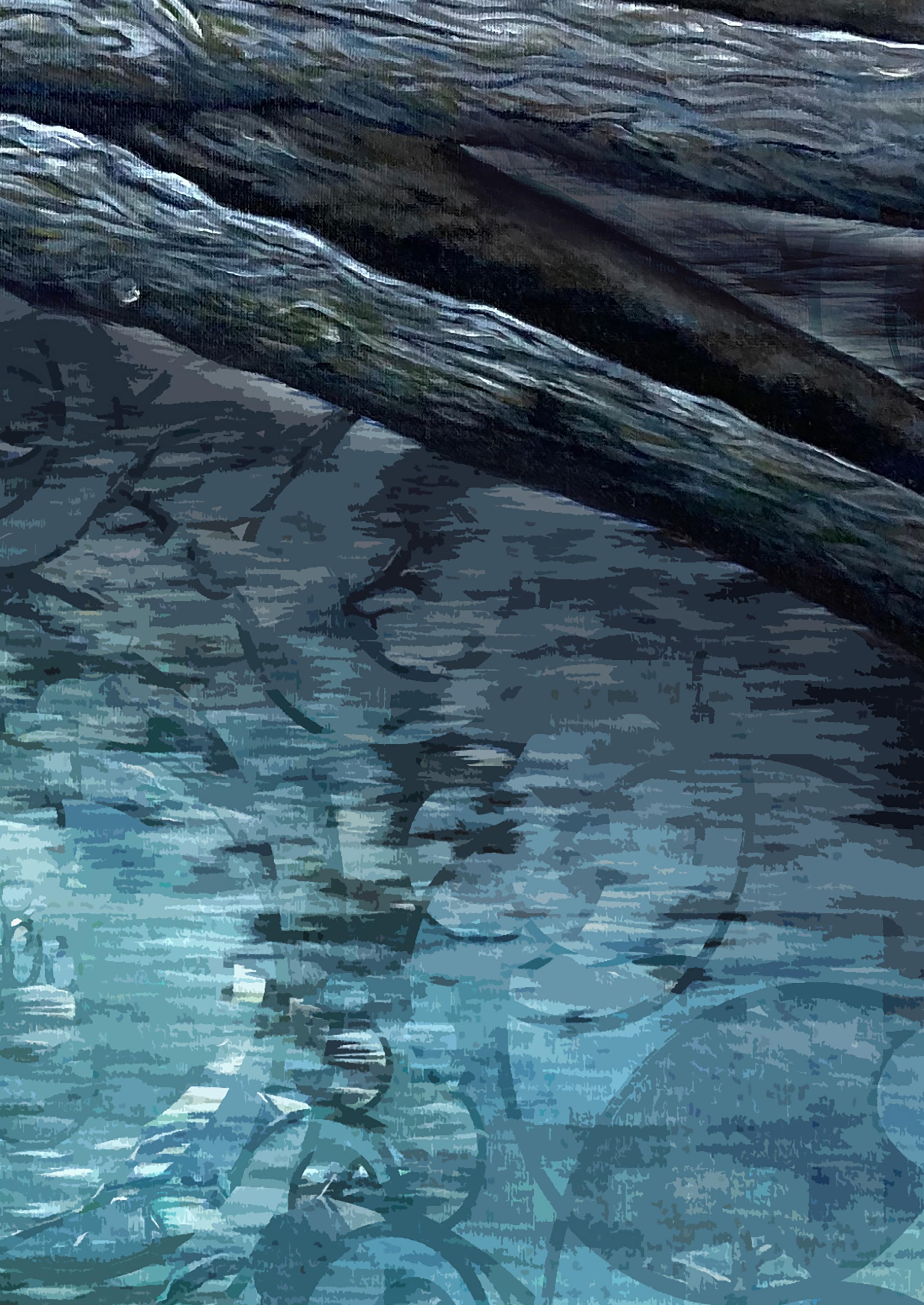 By ZaraKurbanov’25
By ZaraKurbanov’25
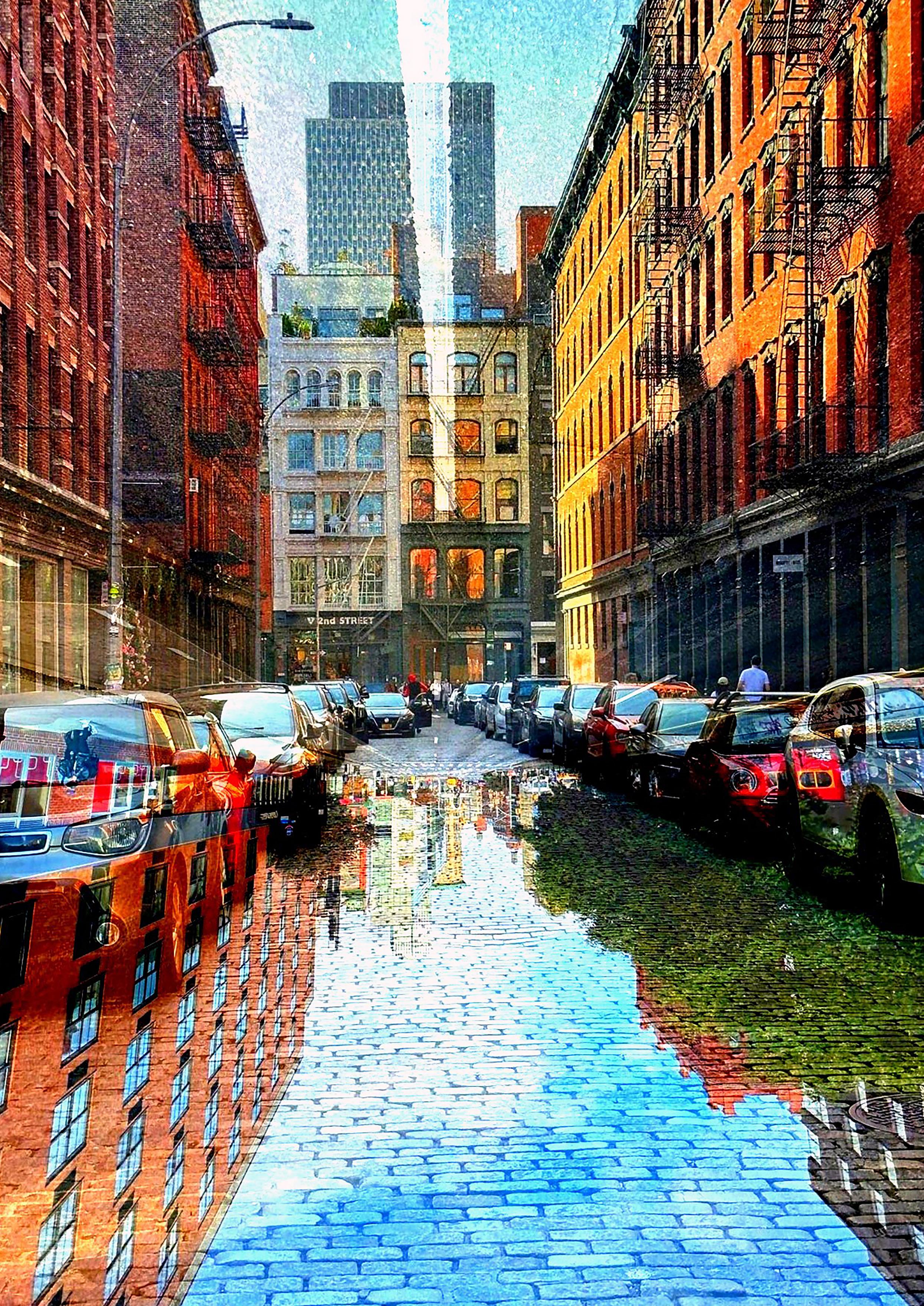
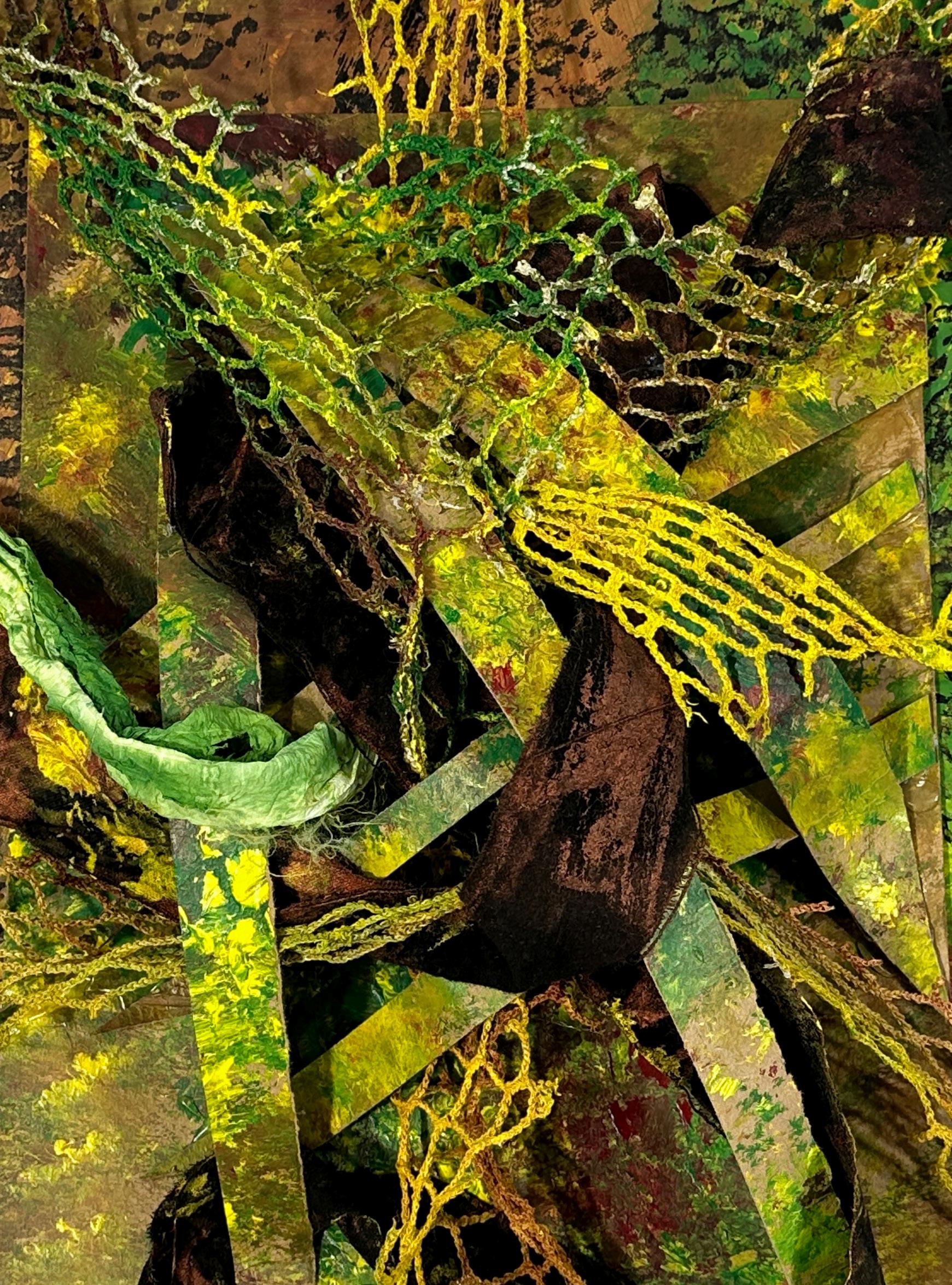
ABOUT THE AUTHOR:
Shel Silverstein (1930-1999) was an American poet, writer, cartoonist, playwright, singersongwriter and musician. Often compared to Dr. Seuss due to his iconic children’s books like “The Giving Tree”, “Where the Sidewalk Ends” was his first major collection of poetry. The title poem is about the power of imagination and how it can provide refuge from harsh realities. Silverstein’s works have been translated into more than 47 languages.
There is a place where the sidewalk ends And before the street begins, And there the grass grows soft and white, And there the sun burns crimson bright, And there the moon-bird rests from his flight To cool in the peppermint wind.
Let us leave this place where the smoke blows black And the dark street winds and bends. Past the pits where the asphalt flowers grow We shall walk with a walk that is measured and slow, And watch where the chalk-white arrows go To the place where the sidewalk ends.
Yes we’ll walk with a walk that is measured and slow, And we’ll go where the chalk-white arrows go, For the children, they mark, and the children, they know The place where the sidewalk ends.
Hay un lugar donde la acera se corta Y antes de que empiece la calle Y ahí el césped crece suave y blanco, Y ahí el sol quema carmesí brillante, Y ahí el pájaro de la luna descansa de su vuelo Para enfriarse en el viento de menta.
Dejemos este lugar donde el humo sopla negro Y la calle oscura serpentea y dobla.
Más allá de los baches donde crecen las flores de asfalto Caminaremos con pasos acompasados y lentos, Y mirar donde van las flechas de tiza blanca Al lugar donde la acera se corta.
Sí caminaremos con pasos acompasados y lentos, Y iremos a donde van las flechas de tiza blanca, Para los niños, ellos marcan, y los niños, ellos saben El lugar donde la acera se corta.
Translation by Peyton Wolfram ’24In the summer, I relax on the sand of the beach
It would abandon its shores, Its shells, Its fish, And it would follow me

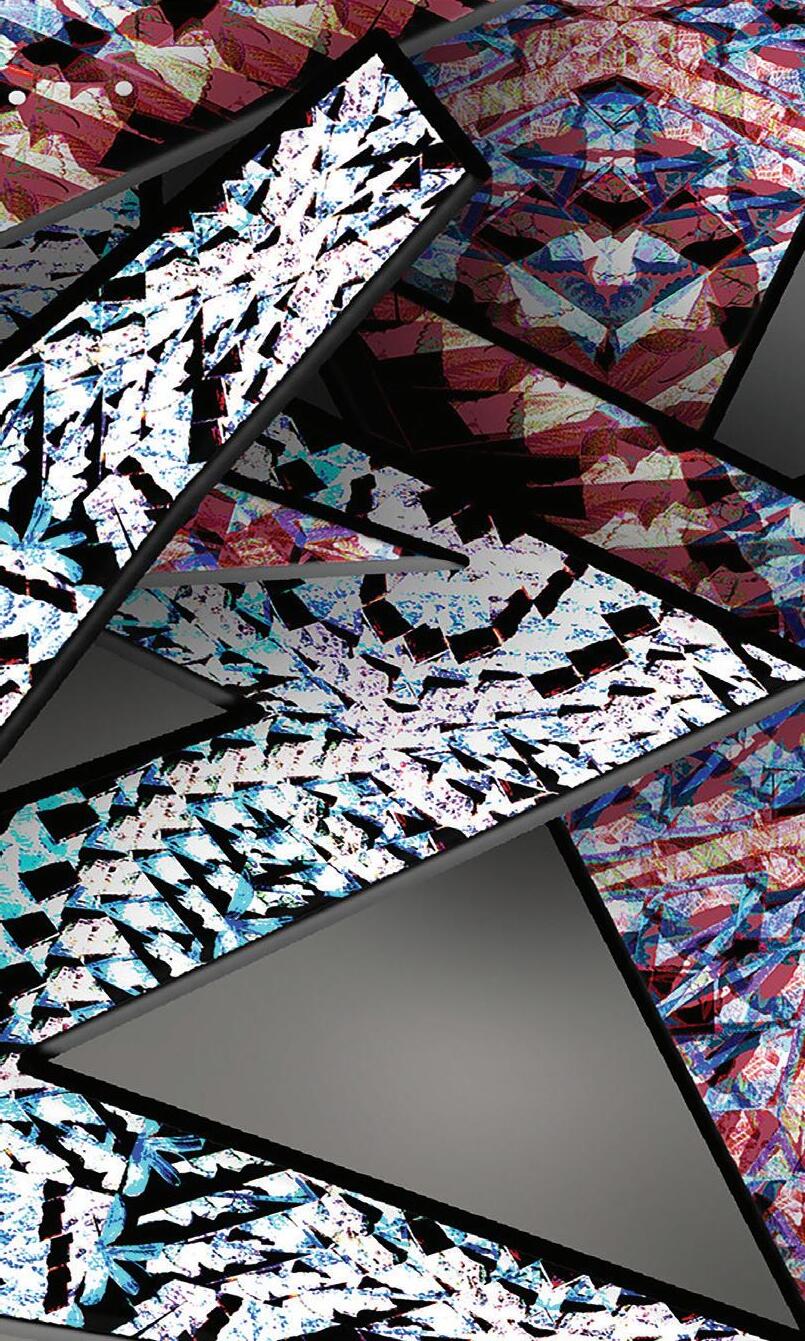


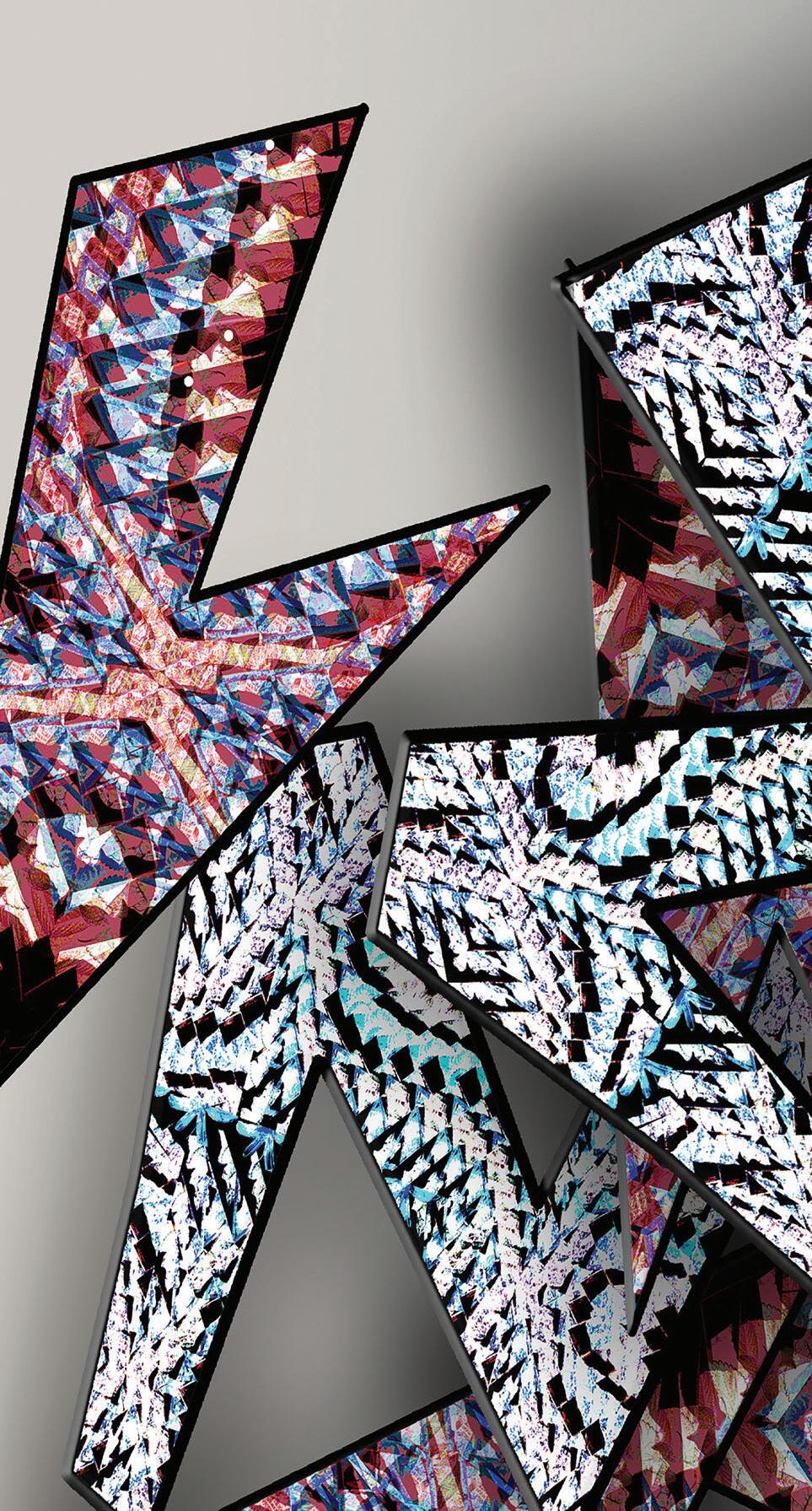

 Translation by Leonardo Gazal ’25
Translation by Leonardo Gazal ’25
ABOUT THE AUTHOR:
Nizar Qabbani (1923-1998) was a Syrian poet and diplomat known for his romantic and political poetry. He is considered one of the most influential and widely read poets of the Arab world. Much of his poetry reflects his commitment to social justice and human rights and his focus on love and sensuality.
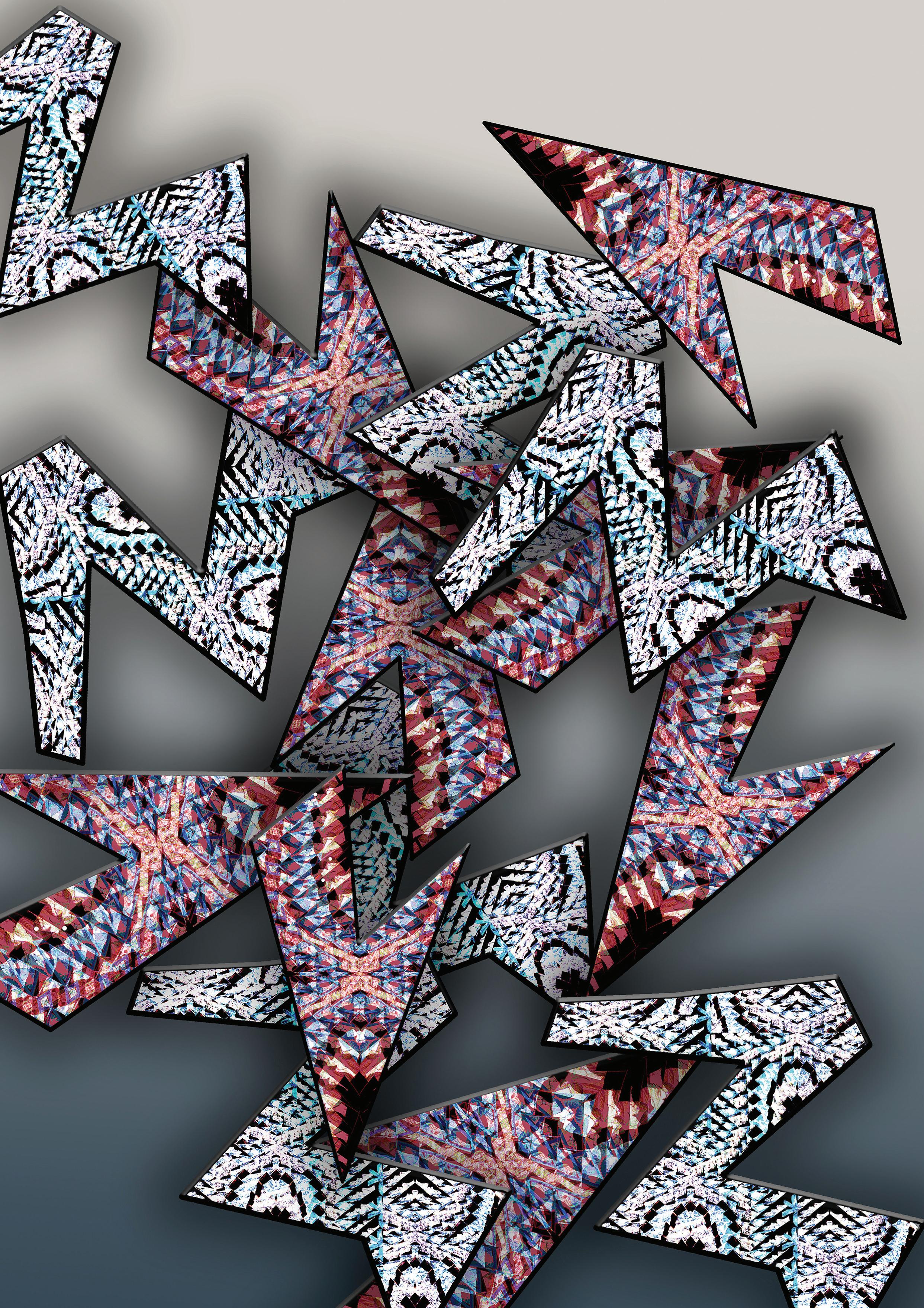

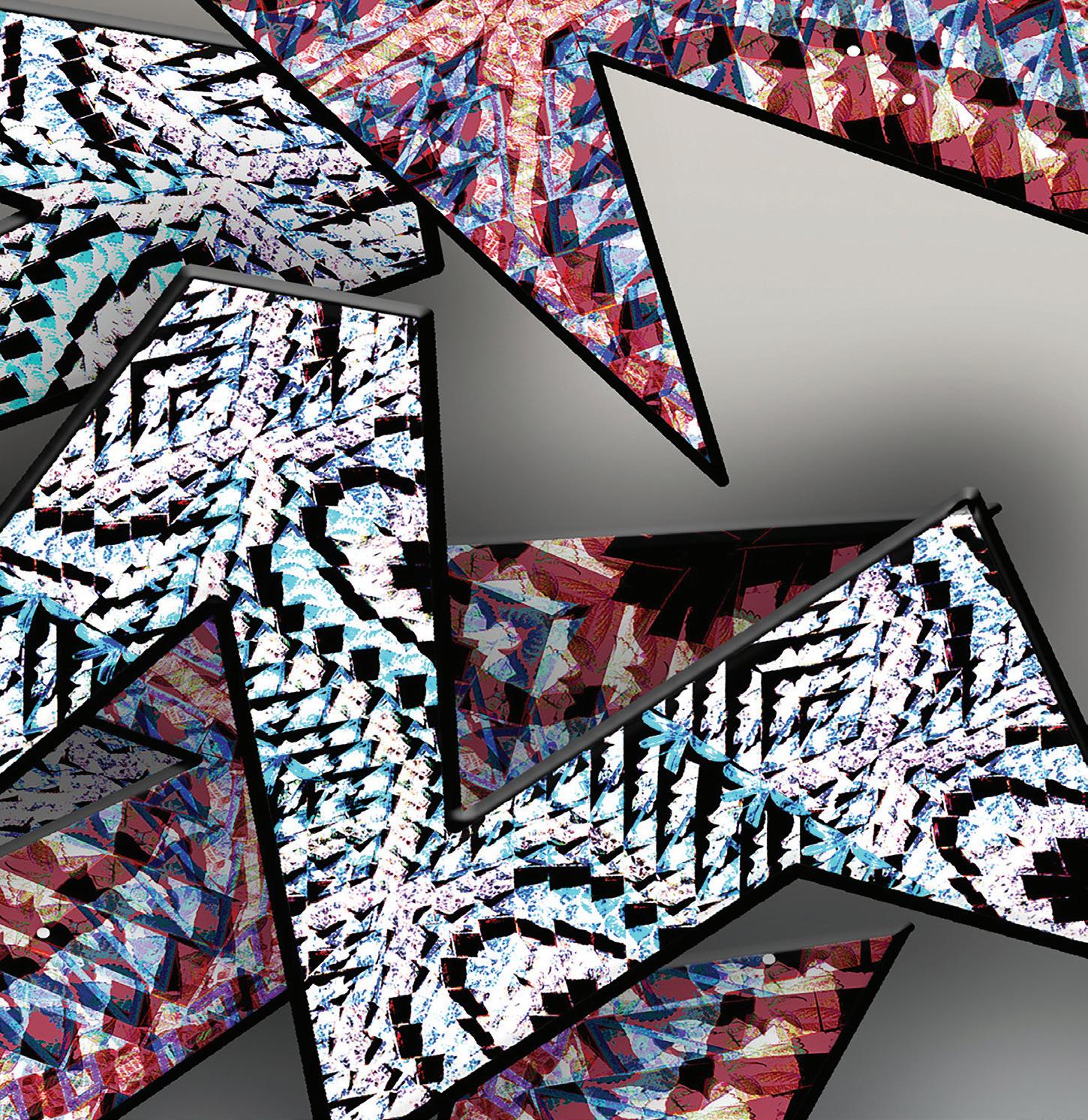 By JacobPelham’25
By JacobPelham’25

Si supiera que esta fuese la última vez que te veo salir por esa puerta, Te daría un abrazo, un beso, te llamaría de nuevo para darte más… Si supiera que esta fuera la última vez que voy a oír tu voz, Grabaría cada una de tus palabras para poder oírlas una y otra vez indefinitivamente… Si supiera que estos son los últimos minutos que te veo Diría te quiero y no asumiría tontamente que ya lo sabes.
Siempre hay un mañana y la vida nos da otra oportunidad para hacer las cosas bien, Pero por si me equivoco y hoy es todo lo que nos queda… Me gustaría decirte cuanto te quiero que nunca te olvidaré…
If I knew this was the last time I would see you going out that door, I would give you a hug, a kiss, I would call you again to give you more..
If I knew this was the last time I would hear your voice, I would record each one of your words to be able to hear them again forever…
If I knew these were the last moments I would see you I would tell you I love you, and I would not assume, foolishly, that you already knew it. There is always a tomorrow and life gives us another opportunity to do things right, But if I am wrong, and today is all we have left… I would like to tell you how much I love you, and that I will never forget you…
Translation by William Schmitz ’24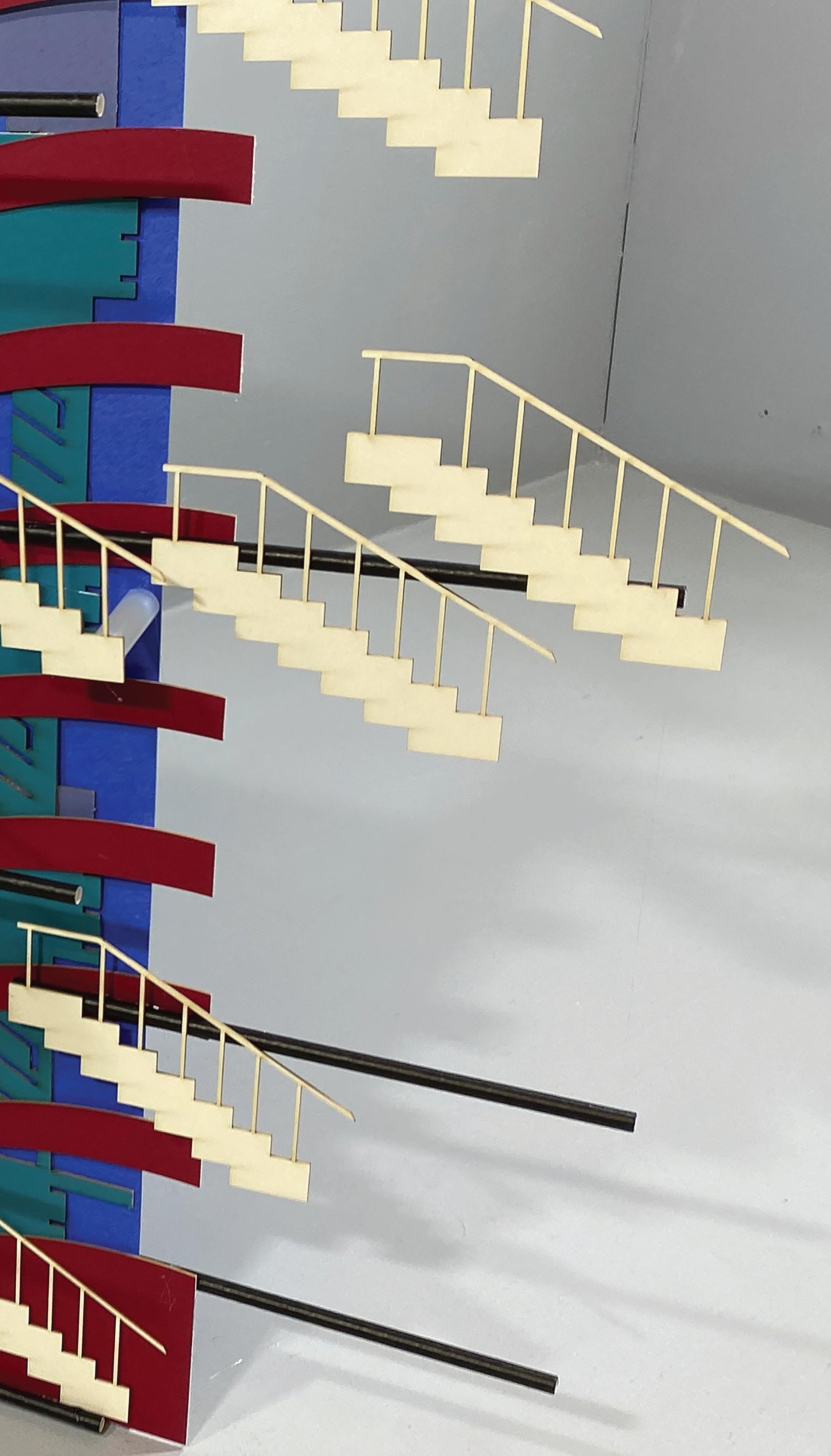
ABOUT THE AUTHOR:
Gabriel García Márquez (1927-2014), a Columbian novelist, a short story writer, a screenwriter, and a journalist, is considered one of the most significant authors of the 20th century, particularly in the Spanish language. He was awarded the Neustadt International Prize for Literature in 1972, and the Nobel Prize in Literature in 1982. His wide ranging body of work includes novels, such as OneHundredYears ofSolitude,and he is known for popularizing a literary style known as magic realism. “Si Supiera” is a poem that builds on his theme of the importance of living life to the fullest.
 By CharlieGaynor’24
By CharlieGaynor’24
Arabic

لين كاج / Diana: Jack Neal ’23
Chinese
我想变 / I want to become…: Fin Sargent ’26
我发现 / I Discover: Cole Cline ’24
我有 / I have: Michael Yeager ’24
太阳朋友 / Sun my friend: James O’Connor ’24
Greek
Χορός των φλογών / Dance of the Flames: Rena Georgakopoulos-Ueta ’25
Hebrew
לכה םע םירשקה / The Connections in Everything: Henry Mayerfield ’26
Spanish/Gallego
Frexio: Sebi DeAngelis ’24
Spanish
Untitled: Hannah Dwyer ’24
América Latina / Latin America: Jack Morningstar ’24
Trece Maneras de Mirar el Sol / Thirteen Way of Looking at the Sun: Spencer Segura ’24
Recuerdo / I Remember: Grace Galvin ’24
La Maldición de la Vida / Curse of Life: Johnny Sauders ’24
Despedida / Farewell: Johnny Sauders ’24
La Caída Vuelve a Bajar / The Fall Back Down: Ben Wu ’24
Eres lo que Comes / You Are What You Eat: Maddie Azrak ’23
Explosión / Explosion: Brielle Gold ’23
¿Porque perfecto? / Why perfect?: Lisa Cabot ’25
 By ScottRaissis’23
By ScottRaissis’23

Lost in endless dreams, I search for you, my beloved, But you remain beyond my reach, A mirage, an illusion, a fantasy, And yet, I cannot help but yearn, For the touch of your hand, The warmth of your embrace, The sweetness of your kiss.
Oh, how I long to hold you close, To feel your heartbeat against mine, To know the joy of love fulfilled,
But alas, it is not For you are a dream that fades, A star that shines too bright to touch, A flame that burns too hot to hold, And I am but a mortal, bound to earth, Left to wander in the shadows of unrequited love.
And so, I write these words, A lament for what cannot be, A tribute to the power of love, And a reminder that even in defeat, Love remains eternal and true.
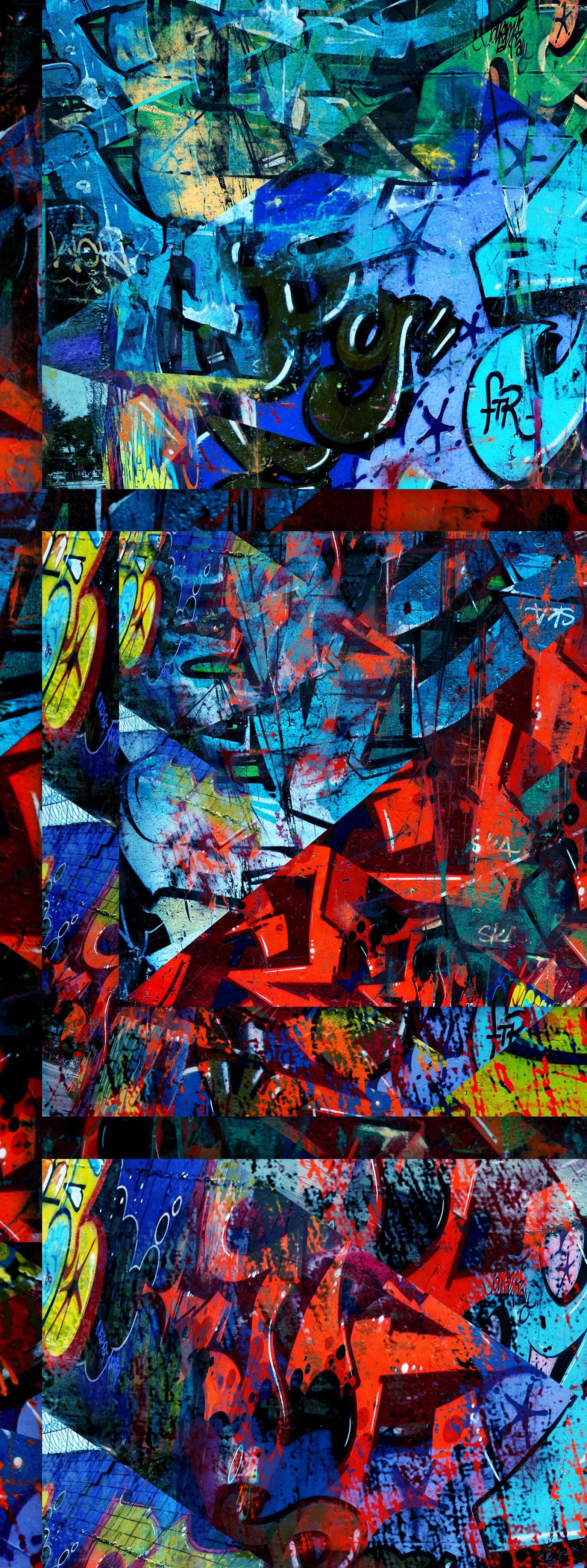
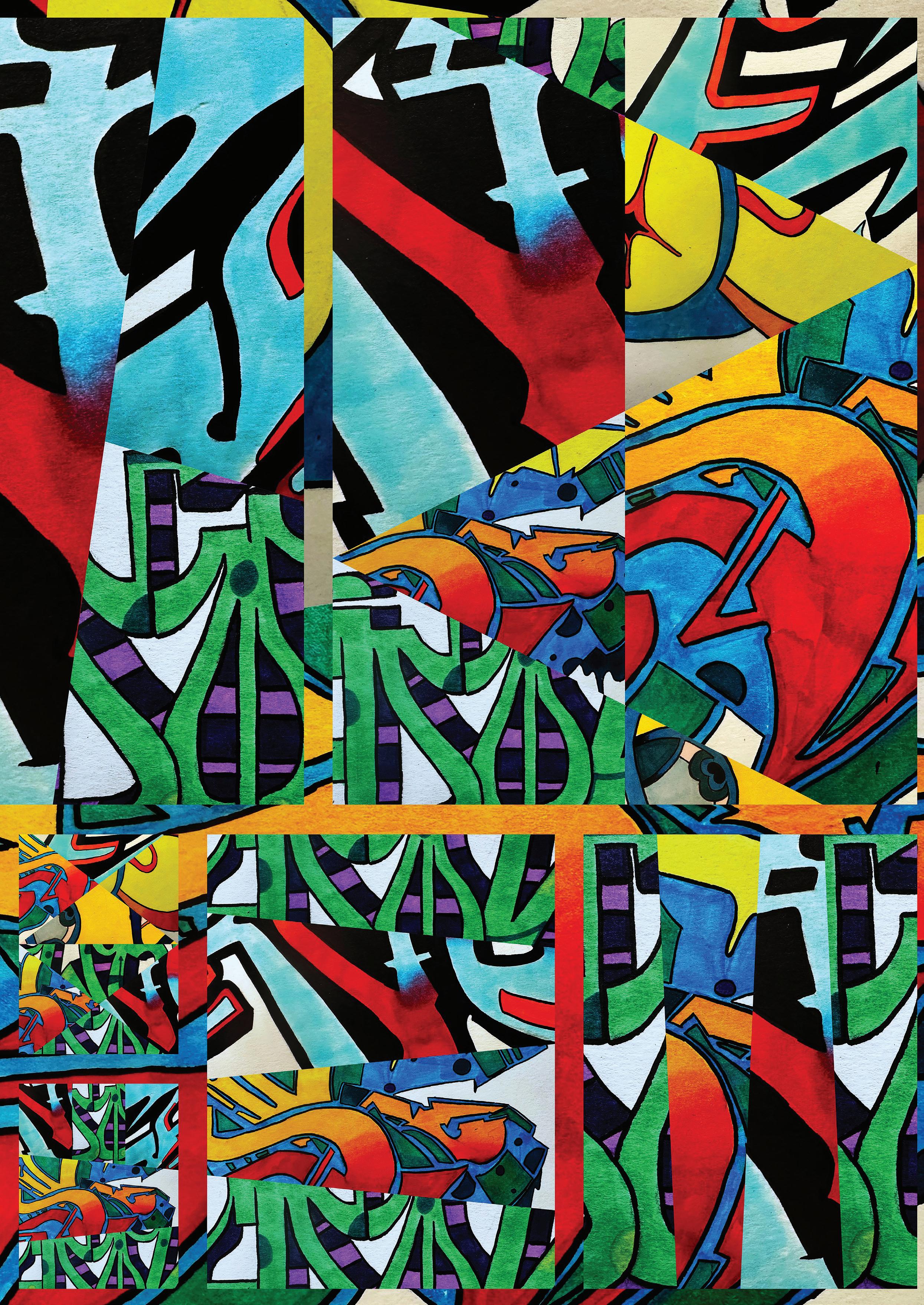
我想变成一片海洋 , I want to become an ocean,
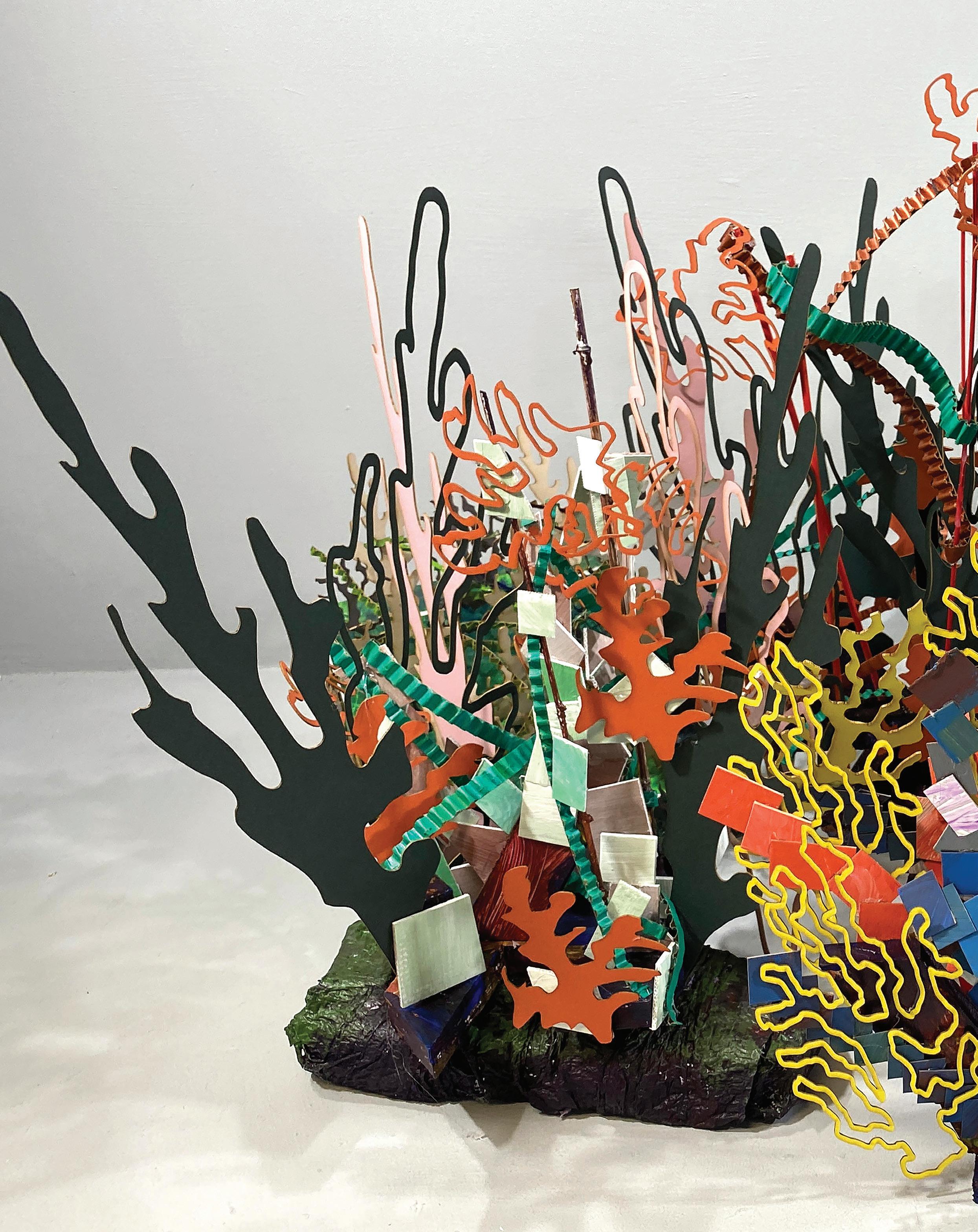
开心时, When I am happy,
浪平浪, My waves are calm and quiet, 不开心, When I am sad,
浪高浪险. My waves are big and dangerous.
我想变成一条小船, I want to become a small boat,
开心时, When I am happy,
顺风顺水, I move smoothly with the wind and the water,
不开心, When I am sad,
无处可逃. I have nowhere to go.
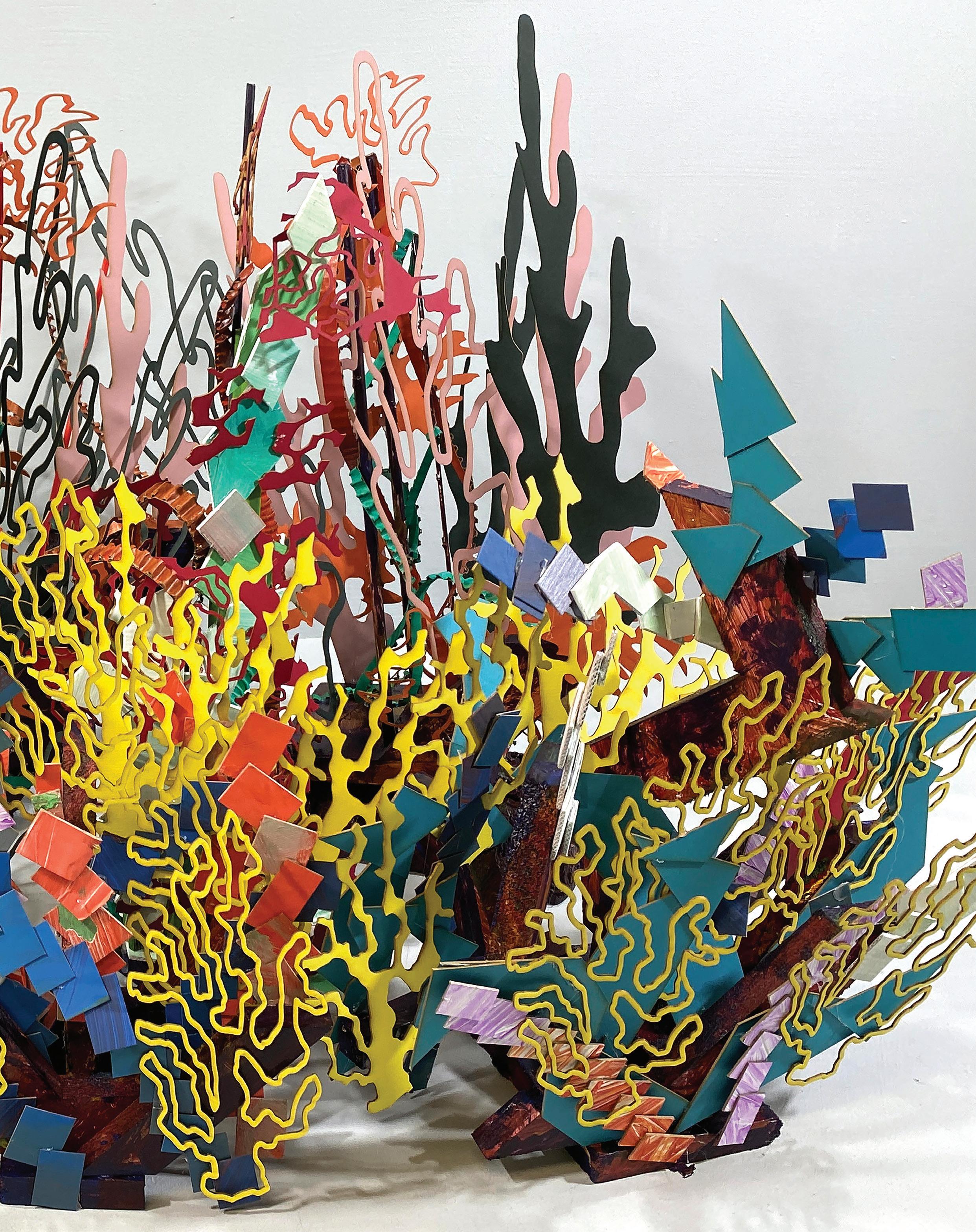 By WillSullivan’25
By WillSullivan’25


老虎找猎物
Tigers looking for prey
只是人类的说法
Which is the point of view of humanity
在老虎的世界里 Inside of the tiger’s world
那叫给家人做饭
They are getting food for their family
我发现 I discover 蝴蝶在空中飘
Butterflies floating in the air
只是人类的说法 Which is the point of view of humanity
在蝴蝶的世界里 Inside of the butterflies’ world

那叫回家看家人 They are returning home and seeing their family
我发现 I discover
蜜蜂做蜂蜜 Bees making honey
只是人类的说法 Which is the point of view of humanity
在蜜蜂的世界里 Inside of the bee’s world
那叫为冬天做饭
They are making food for the winter
相信谁呢? Who to believe?
 By ZaneSaad’24
By ZaneSaad’24

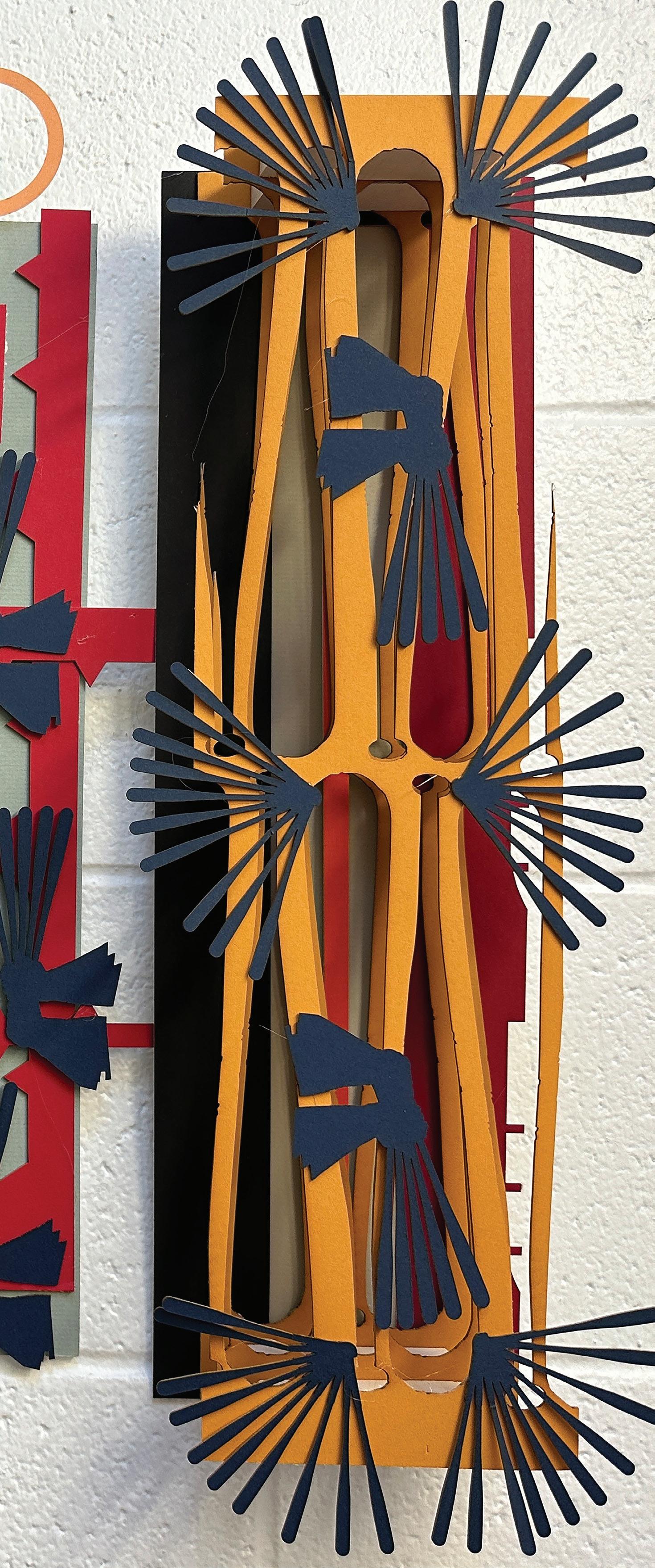
有了球
I have a ball
也有了球棒
I also have a bat
还有了手套
I even have a glove
我想打一场棒球比赛
I want to play a baseball game
可是 But
有了球
下雨了 It rained
有谁能
Is there anyone able to
把雨带走?
Take the rain away?
有了热情
I have passion
也有了能量
I have energy
还有了技巧
I even have skill
我想打一场棒球比赛
I want to play a baseball game
可是 But
赢或输 Win or lose
有谁能
Is there anyone
让我停下来
That can stop me?
太阳,我的朋友
Sun my friend,
每次你出来
Every time you come out
我都高尔夫球
I play golf
你带来光明
You bring light
你带来舒适
You bring comfort
你带来温暖
You bring warmth
你带来快乐
You bring happiness
你带来更多的朋友 you bring more friends
你带来和平
You bring peace
你带来机会
You bring opportunity
太阳,我的朋友 Sun, my friend,
Hope you will never go away!

Κροταλίζοντασ και φλυαρώντας σιγανά
Τα αρχαία τραγούδια του γι άλλη μια φορά
Σε μια παθιασμένη απόδοση κυμαινόμενων χρωμάτων
πάνω σε καψαλισμένες φλούδες
πορτοκαλιού και κουκουναριών.
Καυτές αναπνοές παραμορφώνουν τα γύρω σου, Στοργικές αγκαλιές ζεστασιάς και αγάπης, Θαμπωμένα τα μάτια σου
Από την λάμψη της σωτηρίας
Που φωτίζει το διάφανο πέπλο των δακρύων.

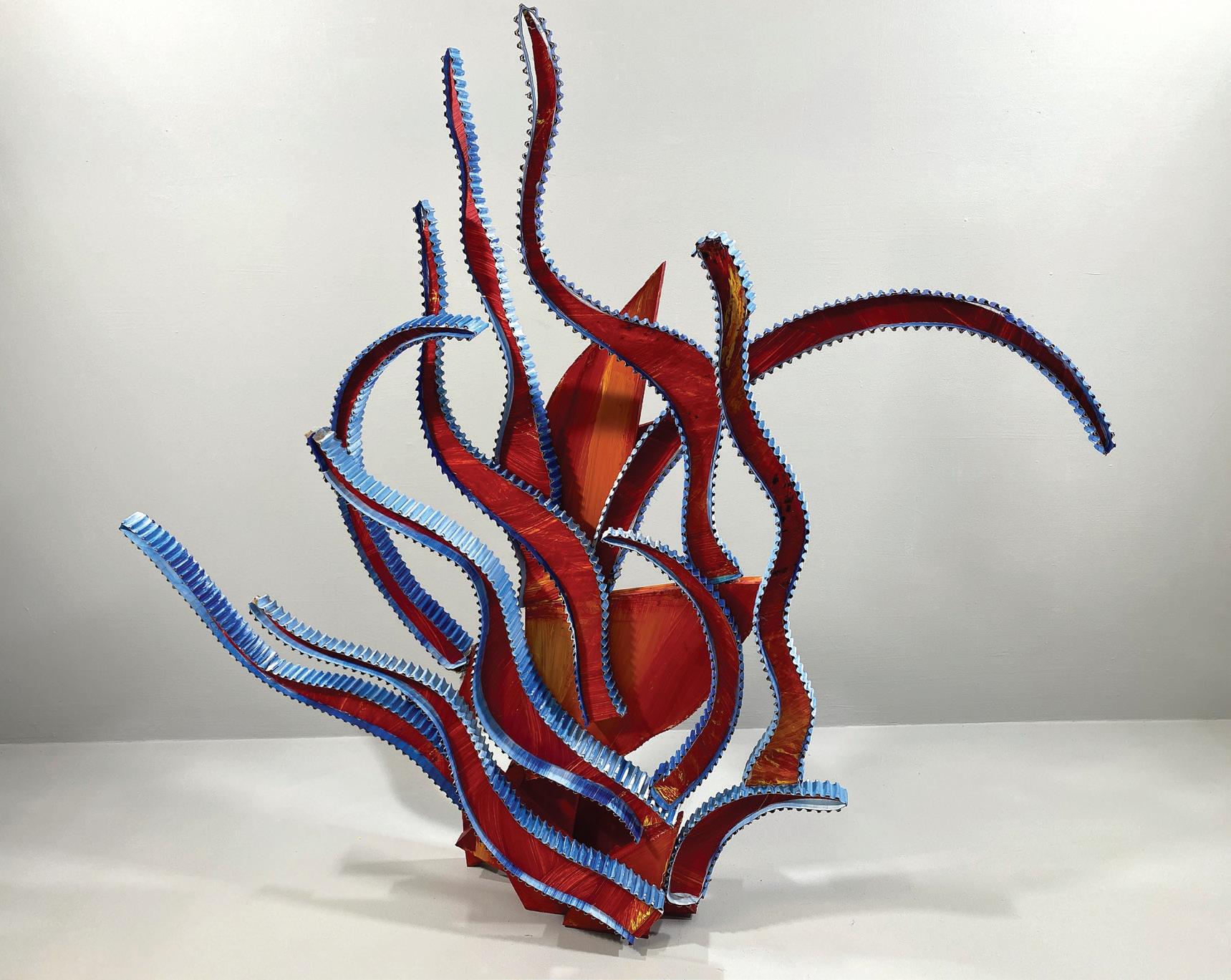
Crackling and chattering softly Its ancient songs once more In a passionate performance of fluctuating colors

Over burnt orange peels And pine cones.
Hot breaths distort your surroundings, Affectionate embraces of warmth and love, Blinded are your eyes
By the brilliance of salvation
That illuminates the diaphanous veil of your tears.
By FritzSmith’23,םיחרפהו אשדה
,םיצעהו םיחרפה
,המדאהו םיצעה ,םלועהו המדאה
,שמשהו םלועה
,חריהו שמשה
,םיבכוכהו חריה ,אשדהו םיבכוכה ,םישנא םע םישנא

The grass and the flowers, The flowers and the trees, The trees and the ground, The ground and the earth, The earth and the sun, The sun and the moon, The moon and the stars, The stars and the grass,
Because of the connections in the universe, Love your neighbor as yourself since we are all connected.
El dulce olor de los inmensos bosques de eucaliptos
Más allá de la línea de árboles se encuentran los picos neblinosos de Tremuzo
Los gigantes molinos de viento vigilan la costa escarpada
El suave golpeteo de la lluvia empapa la tierra
El aire salado besa los mejillones aferrados a las rocas y los riscos
Las navajas y los berberechos duermen bajo las arenas oscuras
Las golondrinas dan vueltas alrededor de los mástiles de los barcos
Las sirenas de niebla distantes suenan desde las barcas de pesca que llegan al puerto
El verde vibrante de los muros de piedra cubiertos de musgo y campos de helechos lozanos

Un gato blanco descansa en un Hórreo* construido por generaciones pasadas
El sonido de las campanas de la iglesia atrae a las viudas vestidas de negro
Los bancos antiguos se crujen mientras la gente se sienta para la misa
El vapor sale del pan recién entregado en la puerta
El ruido blanco de telenovelas en el fondo
Un flujo constante de visitantes que vienen a compartir historias de antaño
La charla de mis bisabuelos sentados juntos en la mesa, comiendo castañas tostadas
La neblina ahumada y el aroma de leña quemada flota por el aire
Las campanadas del reloj hacen eco en la sala mientras el olor de caldo llena la cocina
Las nueces partidas y las naranjas frescas del ortigal** nos esperan en tazones
Una cucharadita tintinea en una taza de manzanilla y anís
Año tras año hago el peregrinaje
A esta casa, llena de vida y memorias
Que mis abuelos dejaron en su juventud
Por la esperanza de una vida nueva en los Estados Unidos
Mis raíces en Freixo me llaman de vuelta.
*Hórreo:Grainstoringstructure
**Ortigal:Garden
A rooster calls in the distance
The sweet smell of immense Eucalyptus forests
Beyond the timberline lies the foggy peaks of Tremuzo
Windmills stand like giants watching over the jagged coastline
The soft patter of rain as it soaks the earth
Mussels, cling to the rocks and crags of a salty aired coastline
Razor clams and cockles bury themselves beneath the dark sands
Swallows dance and weave around the masts of ships
Distant foghorns blow from the fishing boats coming into port
The deep green of mossy stone walls and sweet fern fields
A white cat dozes on a Horreo built by generations past
The sound of church bells beckon the widows dressed in black
The creaking of ancient church pews as they sit down for mass
Un gallo canta ao lonxe
O dulce olor dos inmensos bosques de eucaliptos
Máis alá da liña de árbores atópanse os picos neblinosos de Tremuzo
Os xigantes molinos de vento vixian a costa escarpada
O suave golpeteo da chuvia empapa a terra
O aire salado besa os mexillóns aferrados ás rocas e os riscos

As navallas e os berberechos durmen baixo as areas escuras
As golondriñas dan voltas arredor dos mástiles dos barcos
As sirenas de néboa distantes soen desde as barcas de pesca que chegan ao porto
O verde vibrante dos muros de pedra cubertos de musgo e campos de fieitos lozanos
Un gato branco descansa nun Hórreo construído por xeracións pasadas
O son das campañas da igrexa atrae ás viúvas vestidas de negro
Os bancos antigos crúxense mentres a xente se sinta para a misa
O vapor sae do pan recén entregado na porta
O ruído branco de telenovelas no fondo
Un fluxo constante de visitantes que veñen compartir historias de antano
A charla destas bisabuelos sentados xuntos na mesa, comezando castañas tostadas
A neblina ahumada e o aroma de leña queimada flota polo aire
As campañadas do reloxo fan eco na sala mentres a olor de caldo leva a cociña
As noces partidas e as naranxas frescas do ortigal nos esperan en tazóns
Unha cucharadita tintinea nunha taza de manzanilla e anís
Ano tras ano fago o peregrinaxe
A esta casa, enche de vida e memorias Que mis avós deixaron na súa xuventude. Pola esperanza dunha vida nova nos Estados Unidos
Mis raíces en Freixo me llaman de vuelta.
GALLEGO
Fresh bread, oozing with steam, delivered to the doorstep
The white noise of Telenovelas humming in the background
A constant stream of visitors coming to share tales of yore
The chatter of my abuelos around the plaid clothed table, eating chestnuts
The smoky haze and aroma of a crackling wood fire hangs in the air
Clock chimes echo, as smells of caldo warm the room
Toasted chestnuts, cracked walnuts, and fresh oranges await from the Ortigal
A teaspoon clinks on a cup of chamomile and anise
Year after year I make the pilgrimage
To this house, filled with life and memories
That my grandparents left in the youth
For the hope of a new beginning in the United States
My roots in Freixo call me back.
 By Hannah Dwyer ’24
By Hannah Dwyer ’24
Hundreds and hundreds of grains of sand, Rushing through my fingers and getting caught in my hand Looking over the ocean and the beautiful landscape, Taking in all the details of this gorgeous escape
Waves crashing on the rocky coast, Leaving traces of white foam that makes everyone want more The sun perched high like a throne shining down below, While people on the beach bask in it’s warm glow
A vicious pack of seagulls circling overhead, Hoping for a glimpse of a snack such as a piece of bread
The cheerful cry of children splashing in the water, While parents are chasing after their sons and daughters.
The smell of the beach, and the cool summer air, Completely surround me as the wind blows through my hair.

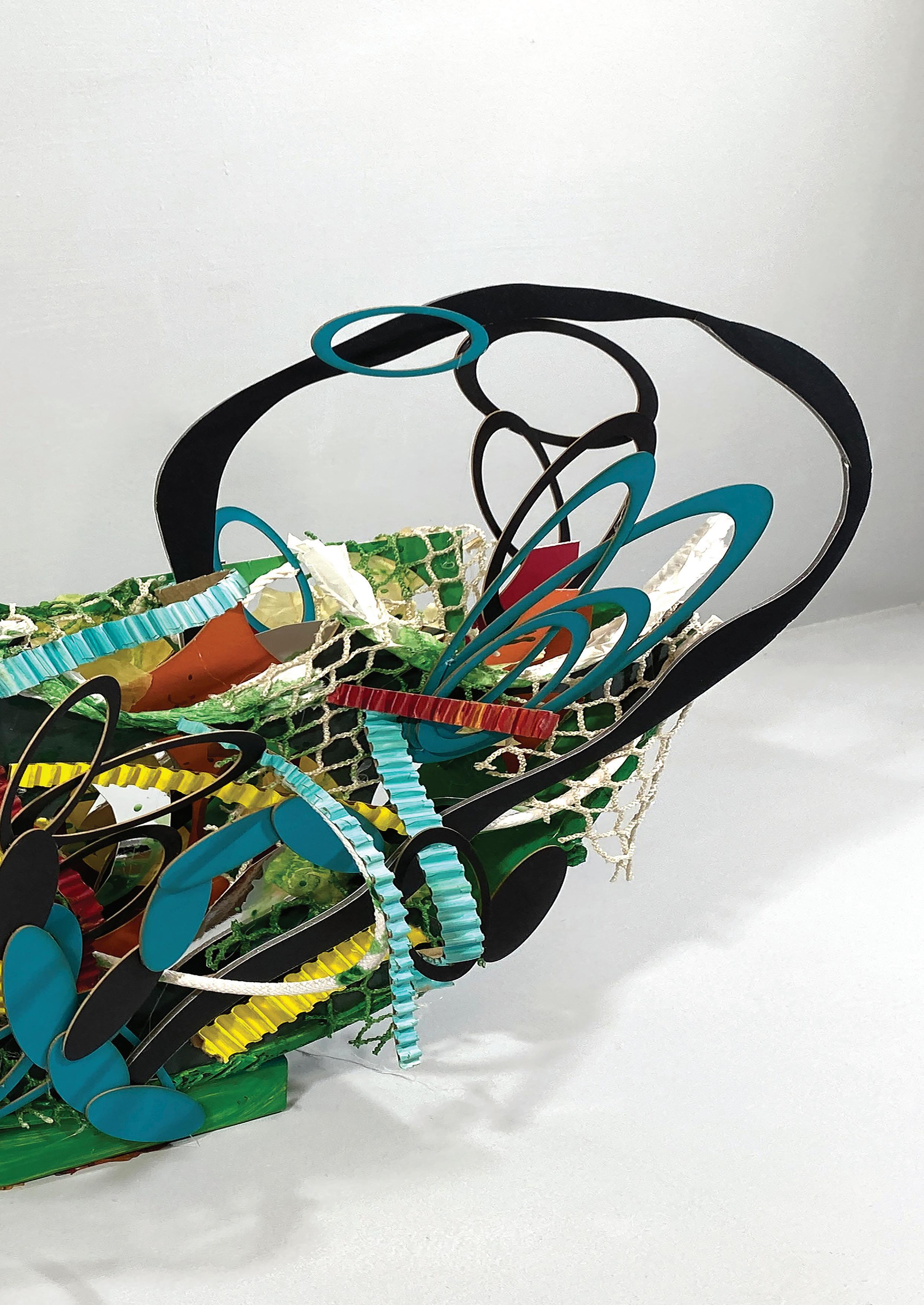 By AndenBoulan’25
By AndenBoulan’25
Cientos y cientos de granos de arena, Corriendo por mis dedos y pegándose a mi mano Mirando sobre el océano y el hermoso paisaje, Apreciando todos los detalles de esta hermosa escapada
Olas rompiéndose en la costa rocosa, Dejando rastros de espuma blanca que hace que todo el mundo quiera más
El sol encaramado como un trono brillando hacia abajo, Mientras la gente en la playa disfruta de su cálido resplandor
Una manada viciosa de gaviotas dando vueltas por encima de la cabeza, Esperando ver una merienda como un pedazo de pan
El alegre grito de los niños chapoteando en el agua, Mientras los padres persiguen a sus hijos y hijas.
El olor de la playa, y el aire fresco de verano, Me rodean completamente mientras el viento me sopla el cabello.
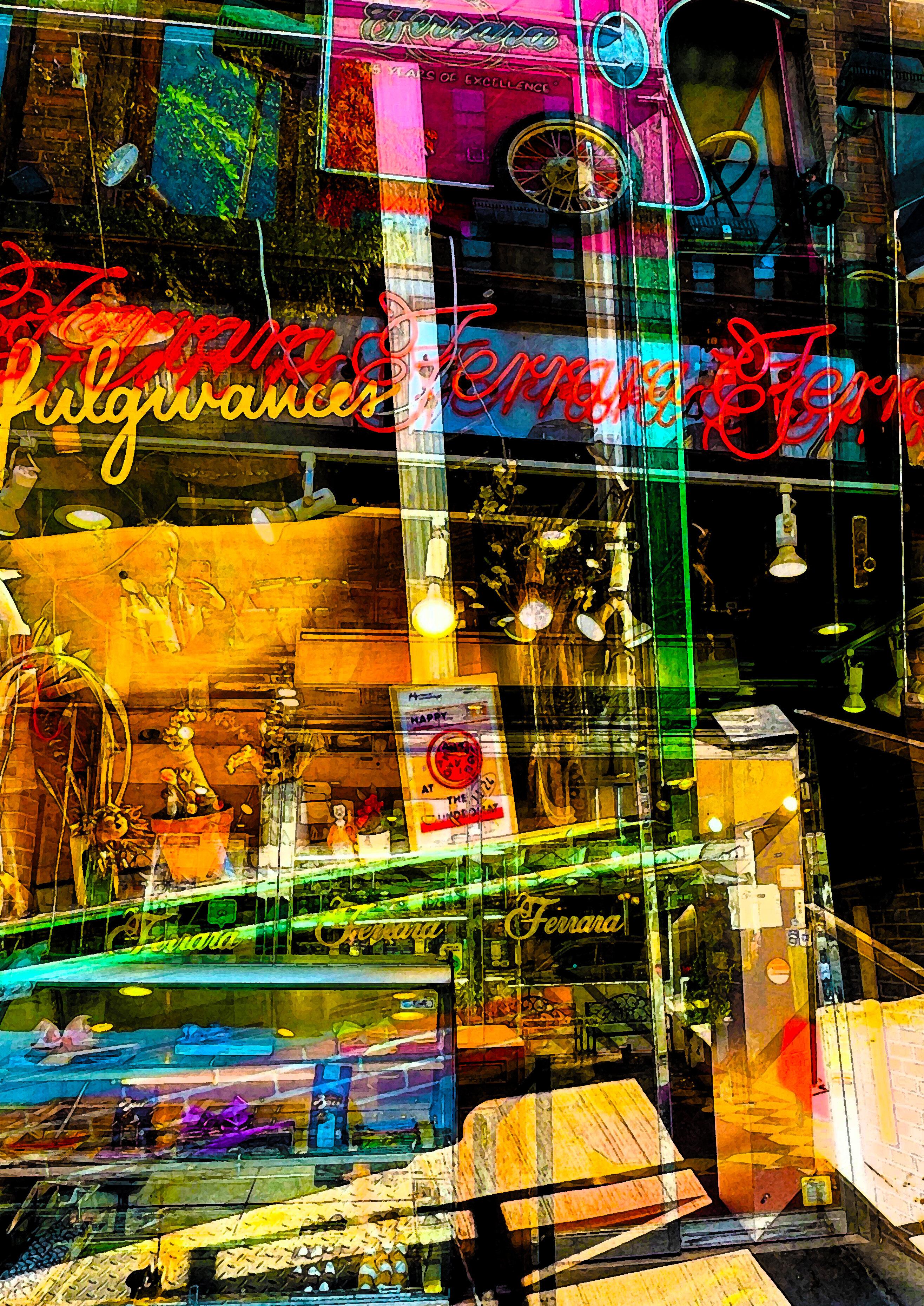 By HannahMurray’25
By HannahMurray’25
Soy la voz de un desaparecido
Los gritos y chillados perdidos
En el aire seco del desierto Que fluye sobre las montañas
Por los arroyos y ríos Solo para ser escuchado
Por nadie Perdido
Soy los colores del carnaval de Las brillantes plumas verdes y azules de Luces Y la música llenando el cielo nocturno

Mientras las estrellas brillan hacia abajo Sobre Río
Soy el olor a barbacoa Viajando por las bulliciosas calles
Mi dulce olor llenando las narices
De todos los que están cerca
Soy las hojas de plátano crujientes de un tamal
Mis arrugas llenas de alegría
Un olor sentimental llena la habitación de Traer de vuelta un torrente de recuerdos
De la felicidad y la juventud
Soy las Montañas gigantes de los Andes
Los picos cubiertos de nieve
Soy el agua cálida turquesa
Las islas llenas de animales
Las exuberantes selvas tropicales del misterio
Las historias perdidas de los Mayas y los Incas
Los fríos acantilados de patagonia
Y las cálidas dunas de arena dorada del Atacama
Soy
*Desaparecido - (especially in South America) a person who has disappeared, presumed killed by members of the armed services or the police.
I am the voice of un desaparecido*
The shouts and screams lost
In the dry desert air
That flows over the mountains
Through streams and rivers
Only to be heard
By no one
Lost
I am the colors of carnival
The bright green and blue feathers
Lights and music filling the night sky
While stars shine down
Over Rio
I am the smell of barbecue
Traveling through bustling streets
My sweet scent filling the noses
Of all those nearby
I am the crispy banana leaves of a tamale
My wrinkles filled with joy
A sentimental smell fills the room
Bringing back a rush of memories
Of happiness and youth
I am the giant Andes Mountains
The snow-capped peaks
I am the warm turquoise water
Full of animal-filled islands
The lush tropical jungles of mystery
The lost stories of the Mayans and Incas
The cold cliffs of Patagonia
And the warm golden sand dunes of the Atacama
I am
 By Spencer Segura ’24
By Spencer Segura ’24
I. La Vida y La Muerte y El Sol Son inevitables. De lo que existe en el universo, Sólo hay un jefe, El rugiente Sol.
II. Yo estaba aturdido Como un girasol abrasado por el calor.
III. El Sol renunció a su ferocidad. Sin embargo, era sólo una muestra de lo que estaba por venir.
IV. La Vida y La Muerte Son potenciales.
V. Es imposible predecir Las intenciones del Sol, O su taimado impulso, El oficio del Sol O su mera intensidad.
VI. Los cactus se agolpaban El árido paisaje. Un aluvión de rayos Llenaba el horizonte. La escena Fue instantánea Y asesina.
VII. Oh Señor del Sol, ¿Qué busca? ¿No ha sido testigo De la obstrucción, Un paisaje privado de su alma?
VIII. Soy consciente Del mal Y su capacidad sin fin. Pero en el centro El Sol se yergue Con arrogancia y egoísmo.
IX. Cuando el Sol perece, El universo también muere. Como un televisor Y su botón de encendido.
X . La destrucción del Sol Domina el cielo Y castiga al universo. Hasta los relojes Se impacientan.
XI. Viajaron por los continentes, Cubriendo sus rostros. De repente, los rayos los golpearon, Y falsamente los percibían Como alfileres y agujas, De su extenuante viaje.
XII. El cielo se desmorona. El Sol debe de estar poniéndose.
XIII. Fue brillante todo el día. Fue abrasador, Y la sensación perduraba. El Sol estaba Directamente arriba.
TuckerMacLean’24I. Life and Death and the Sun Are inevitable. Of what exists in the universe, There is only one boss, The roaring Sun.
II. I was dazed, Like a sunflower Scorched by the heat.
III. The Sun relinquished its ferocity. Yet it was only a taste of what was to come.
IV. Life and Death Are potential.
V. It is impossible to predict The intentions of the Sun, Or its devious impulse, The Sun crafting Or its mere intensity.
VI. Cacti were crowding The arid landscape. A barrage of rays Filled the horizon. The scene Was instantaneous And murderous.
VII. Oh Lord of the Sun, What do you seek? Have you not witnessed The obstruction, A landscape deprived of its soul?
VIII. I am aware Of evil And its endless capacity. But at the center, The Sun stands With arrogance and egotism.
IX. When the Sun perishes, The universe does too. Like a television And its power button.
X. The Sun’s destruction Dominates the sky And punishes the universe. Even the clocks Would be impatient.
XI. They traveled over continents, Covering their faces. Suddenly, rays struck them, Of which they falsely perceived As pins and needles, From their strenuous journey.

XII. The sky is crumbling. The Sun must be setting.
XIII. It was bright all day. It was blistering, And the feeling lingered. The Sun lied Directly above.
Sometimes I remember
Nights when I was younger
When the smell of body wash and lotion
Would waft through my room at night.
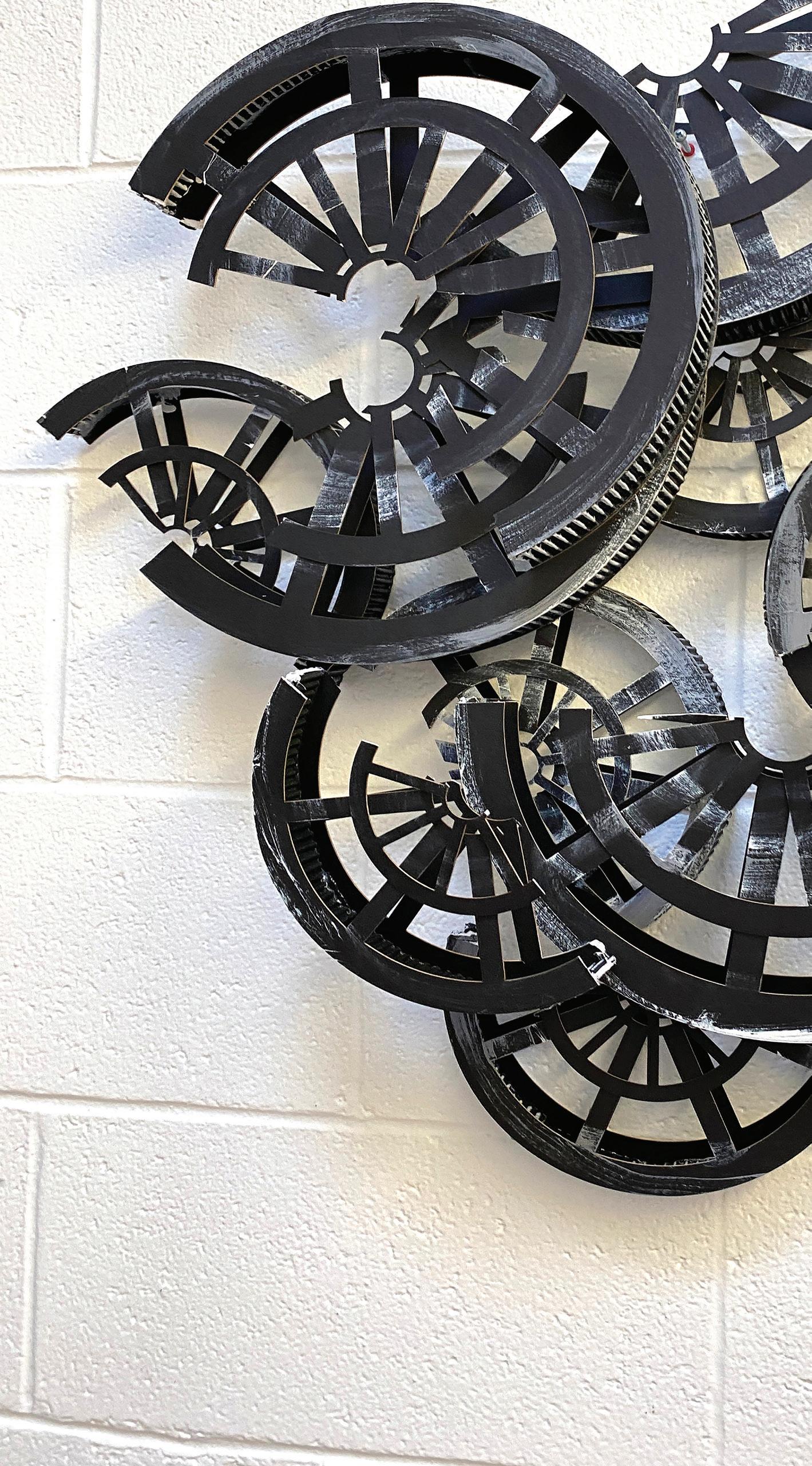

When the warm touch of my many blankets
Would make my eyes droop with sleep, As well as holding my precious doll tight.
I remember the sound of mom whispering
As she tucks me into my bed,
Chanting sweet words
As she flicks off the light.
I still can’t imagine
Anything better than that.
A veces recuerdo
Noches cuando era joven
Cuando el olor a gel de baño y loción
Flotaba por mi dormitorio de noche.
Cuando el tacto cálido de mis mantas
Hacía cerrar mis ojos con sueño, Abrazando a mi muñeca apretada.
Recuerdo el sonido de mamá susurrando Como ella me metía en la cama,
Cantando palabras dulces
Apagando las luces.
Todavía no puedo imaginar
Nada mejor que eso.
Farewell
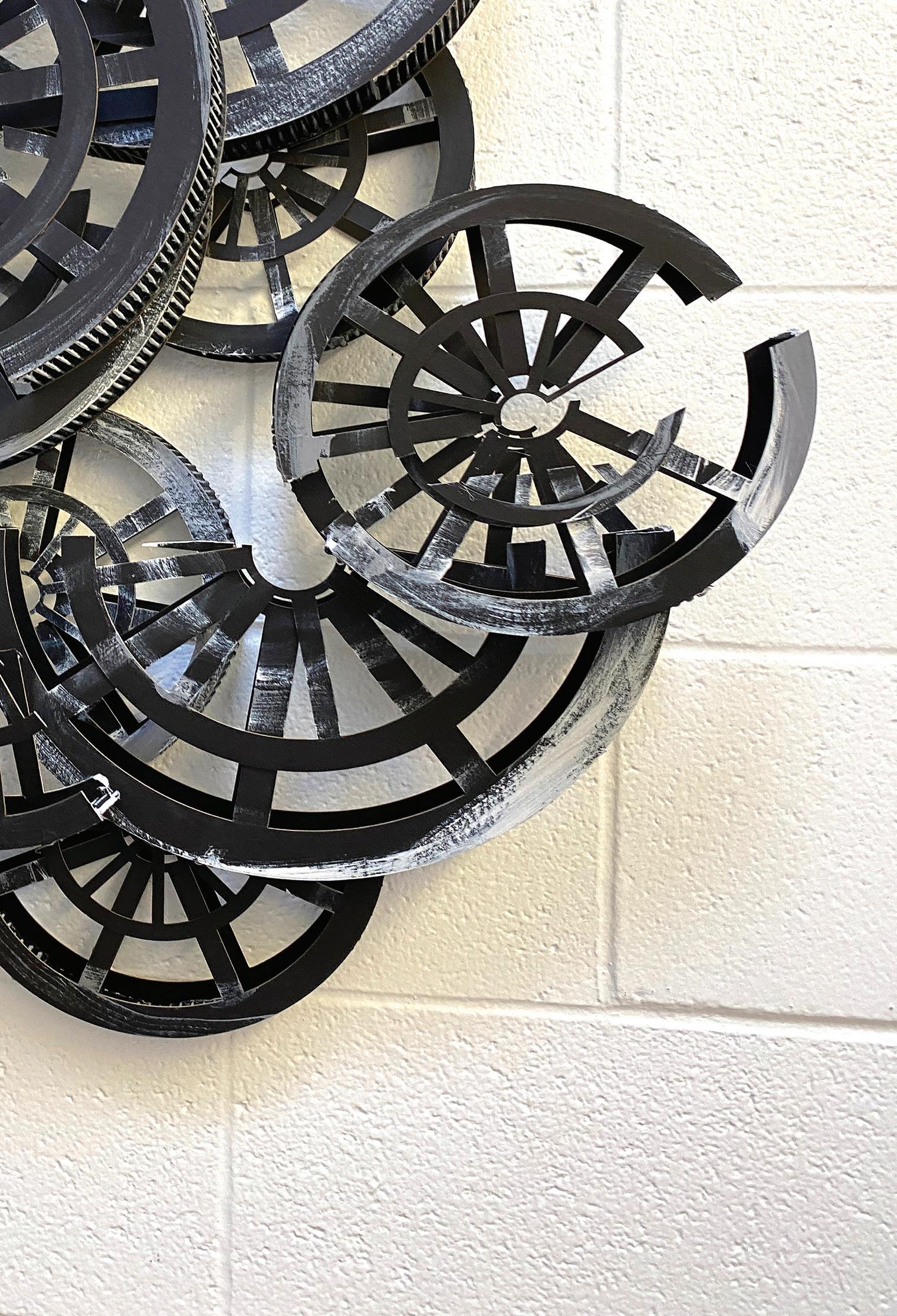
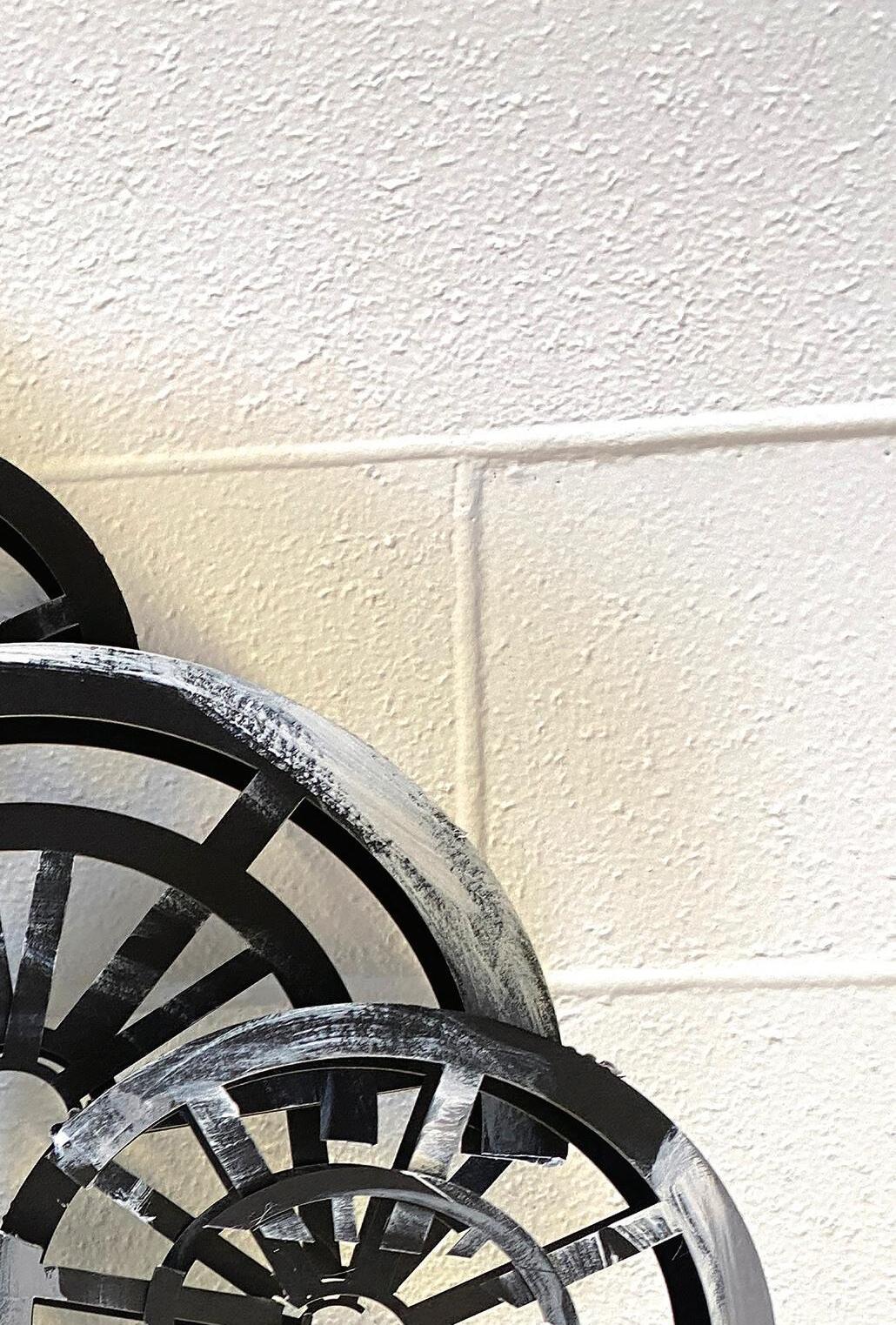

Antagonistic
Unknown, everpresent Fleeting, evading, taunting
Always there, never known Existence
If I die, Allow the door to be open. The child eats oranges.
( I see him from my balcony).
The reaper harvests the wheat.
(From the balcony, I hear him).
If I die, leave the door open!
Si muero, dejad el balcón abierto. El niño come naranjas. (Desde mi balcón lo veo).
El segador siega el trigo. (Desde mi balcón lo siento).
¡Si muero, dejad el balcón abierto!
desconocido, presente Fugaz, evadiendo, burlándose Siempre ahí, nunca entendido la existencia
I exist in a normal world. My day is perfectly fine. I live a routine.
My routine is disrupted. Suddenly, I am transported upwards: high above my company, high above my coach, high above my clouds, high above my world.
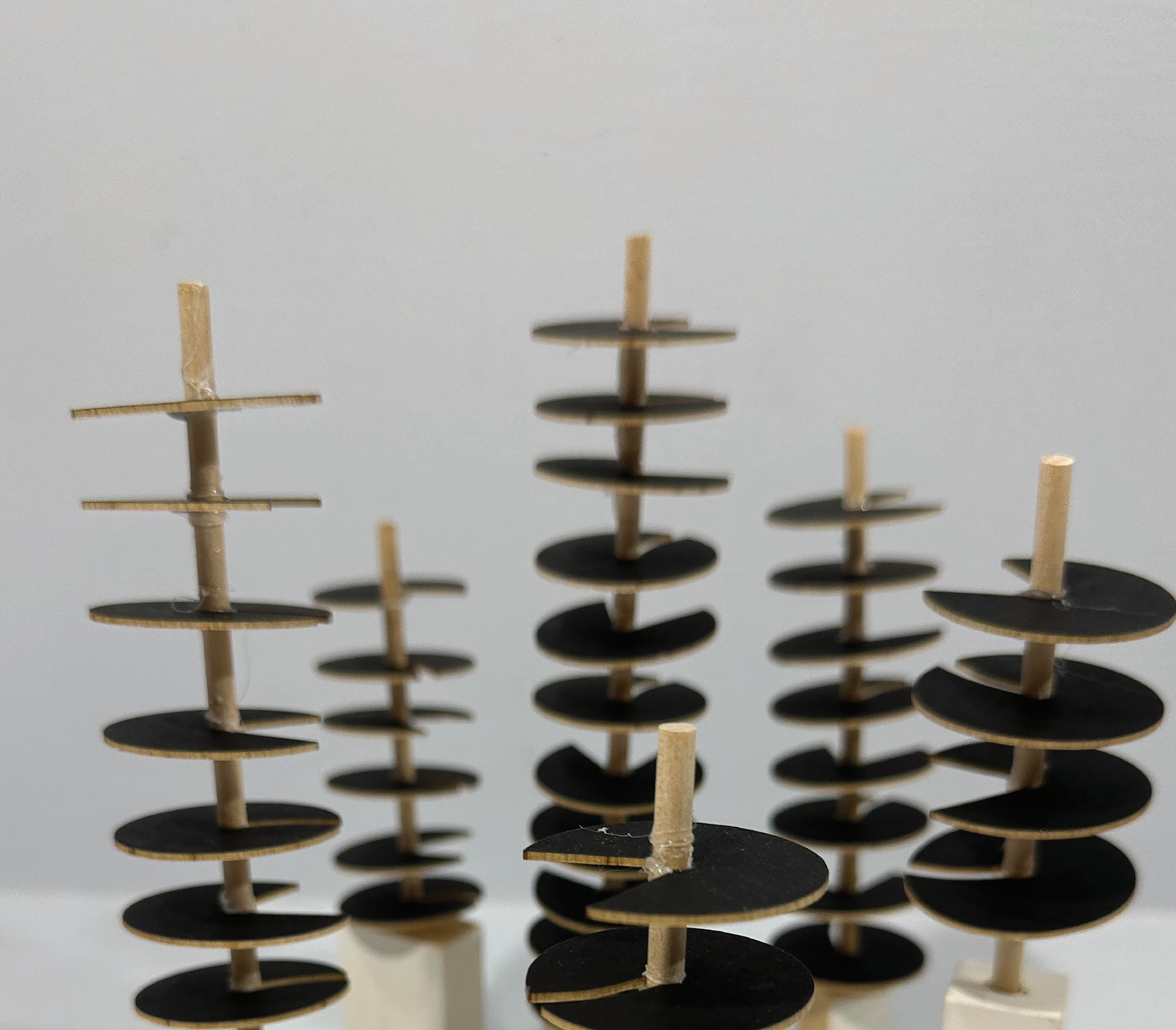
The space is surreal. I am untouchable, I am free. I am no longer confined by the chains of fear and order that had once bound me to routine.
A goal, a team, an end in sight, I now understand why. Why it happens, and what purpose I have in this extensive space.

But, I am pulled closer to the exit with each day that passes. We yearn for the finale, but this desire unknowingly drags us closer, closer, closer to the Hole.
Suddenly, I am falling once more. Falling downwards this time, not up. I am going the wrong way. Why am I falling back down?
This hurts.This hurts so much. It hurts all the more because of how high I was.The glimpse into a perfect space makes my world ugly.The elevation of my life distorts my old routine into displeasing bits and pieces.
I hit the ground with all the more force because now I know what my day could look like, what my day should look like. I am shattered. I am broken.
I almost wish I had not been pulled up in the first place.Then I wouldn’t be able to fathom this feeling.
I exist in an unfortunate world. My day is a dreadful one. I live a routine.
Existo en un mundo normal. Mi día está perfectamente bien. Vivo una rutina.
Mi rutina se interrumpe. De repente, soy transportado hacia arriba: muy por encima de mi grupo, muy por encima de mi entrenador, muy por encima de mi mundo.
El espacio es surreal. Soy intocable. Soy libre. Ya no estoy confinado por las cadenas del miedo y el orden que una vez me ataron a la rutina.
Una meta, un equipo, un objetivo, ahora entiendo por qué. Por qué ocurre, y qué propósito tengo en este extenso espacio.


Pero, me acerco a la salida con cada día que pasa.Anhelamos el final, pero este deseo, sin saberlo, nos arrastra más cerca, más cerca, más cerca del Hoyo.
De repente, me estoy cayendo una vez más. Cayendo hacia abajo esta vez, no hacia arriba. Voy por el camino equivocado. ¿Por qué me estoy cayendo de nuevo?
Esto duele. Esto duele mucho. Me duele aún más por lo alto que estaba. El vislumbre de un espacio perfecto hace que mi mundo sea feo. La elevación de mi vida distorsiona mi vieja rutina en pedazos desagradables.
Golpeé el suelo con más fuerza porque ahora sé cómo podría ser mi día, cómo debería ser mi día. Estoy destrozado. Estoy roto.
Casi desearía no haber subido a tales alturas en primer lugar para no ser capaz de comprender este sentimiento.
Existo en un mundo desafortunado. Mi día es terrible. Vivo una rutina.
“You are what you eat” is certainly true for me. The food I have prepared and consumed over the years represents me and my multicultural family, and has helped to shape my unique identity as a person of Japanese-Syrian-French descent.
Food has always been a way for me to connect with my family members and their cultures. I’ve rolled countless stuffed grape leaves with my Syrian great aunt and made the traditional hummus recipe from my great grandmother by heart, adding my own spin by including marinated artichokes (yum!). I love using the mochi machine with my Japanese grandmother to make my all-time favorite snack, and her cooking skills have informed my definition of comfort food. Finally, I’ve dedicated multiple hours (and batches) to making the perfect macaron with my French-Canadian grandmother and learned great classic cooking techniques from her.
I’ve created such joyous memories with my family in the kitchen, and so many of my relationships have been strengthened through triumphs and failures while cooking with my relatives, celebrating the foods of my heritage.
“Eres lo que comes” es absolutamente cierto para mí. La comida que he preparado y comido durante mi vida me representa a mí y a mi familia multicultural, y ha ayudado a dar forma a mi identidad única como una persona de ascendencia japonesasiria-francesa.
Para mí, la comida siempre ha sido una manera de conectar con los miembros de mi familia y sus culturas. He enrollado innumerables hojas de uva rellenas con mi tía abuela siria y he hecho la receta tradicional de humus de mi bisabuela de memoria, creando mi propia versión al añadir alcachofas marinadas (¡mmm!). Me encanta usar la máquina de mochi con mi abuela japonesa para hacer mi merienda favorita de todos los tiempos, y sus habilidades culinarias han informado mi definición de la comida reconfortante. Finalmente, he dedicado varias horas (y lotes) a hacer el macarrón perfecto con mi abuela franco-canadiense y he aprendido excelentes técnicas de cocina clásica de ella.
He creado recuerdos tan alegres con mi familia en la cocina, y muchas de mis relaciones se han fortalecido a través de triunfos y fracasos de cocinar con mis familiares, y celebrando los alimentos de mi herencia.
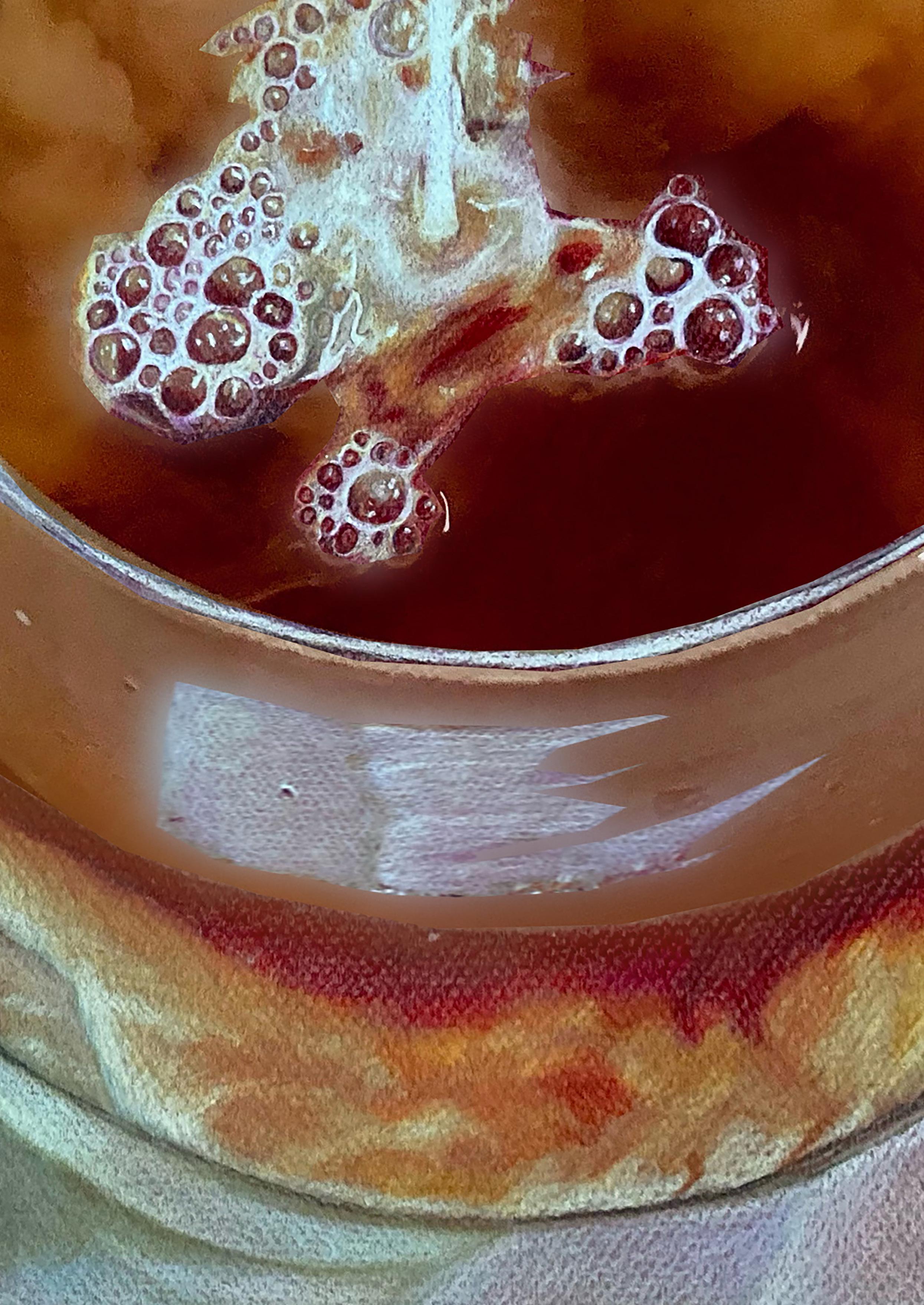
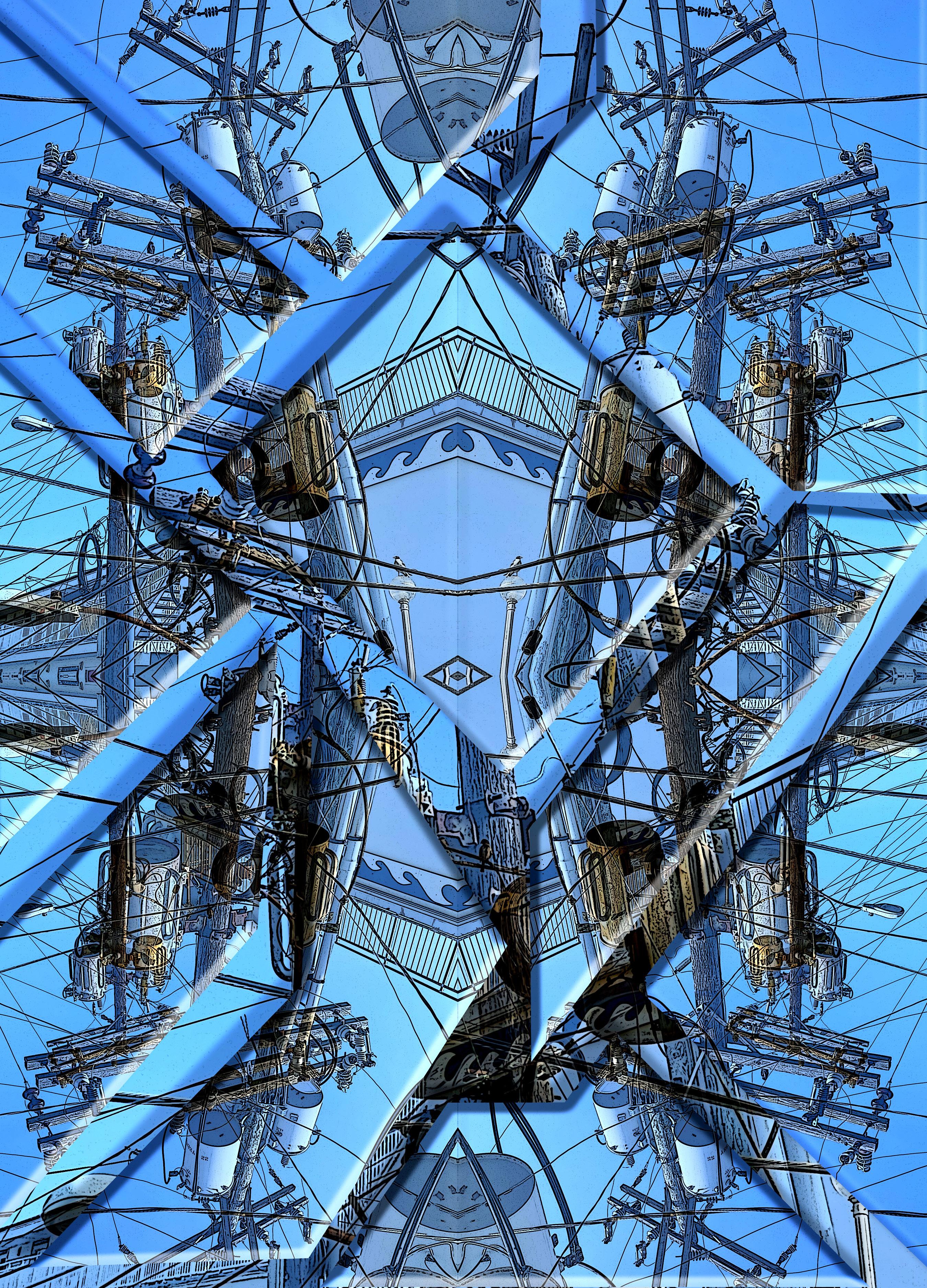
Diría que soy una persona enojada. La palabra “enojada” parece ser un miembro permanente de las palabras que me describen. Estoy agitado Y dejo que las cosas me molesten.
El otro día mi clase me describió en esta manera No estaba allí No tenía que estar allí. Enojada, agresiva, tensa, estresada Entre tantas otras cosas, así soy.
I would say that I’m an angry person The word “angry” seems to be a permanent member of the words that describe me
I’m tightly wound And I let things bother me.

The other day my class described me this way I wasn’t there I didn’t have to be there.
Angry, aggressive, tense, stressed Among many other things, that’s me.
I try hard to keep things from getting to me. I let them pile up.
Each new addition making the pile teeter, Over and over and over again, Until finally, the pile comes crashing down on my head. Explosion.
Me esfuerzo por evitar que las cosas me molesten. Dejo que se acumulen. Cada nueva adición hace que la pila se tambalee, Una y otra vez, Hasta que finalmente, la pila se derrumba. Explosión.

Perfection surrounds me so why are people surprised that I’m a perfectionist? Perfection is unattainable, nonexistent, yet my only focus.
Everyone says that my grades must be perfect, my performance must be perfect, my life must be perfect. Yet perfection doesn’t exist.
Trying to be perfect has destroyed me
Trying to be perfect has changed my entire life Trying to be perfect has broken me
If perfect doesn’t exist, then why does everyone seem to be perfect?
Why do I feel like if I’m not perfect I’m a failure?
Why do I feel like my entire life depends on being perfect if perfect doesn’t exist?
La perfección me rodea, entonces ¿porque a la gente le sorprende que yo sea una perfeccionista?
La perfección es inalcanzable, inexistente, pero mi único enfoque.
La gente dice que mis notas necesitan ser perfectas, que mi rendimiento necesita ser perfecto, que mi vida necesita ser perfecta. Pero la perfección no existe.
Tratando de ser perfecto me ha destruido Tratando de ser perfecto ha cambiado toda mi vida Tratando de ser perfecto me ha roto
Si la perfección no existe, ¿porque todas las personas parecen perfectas?
¿Porque siento que si no soy perfecto, soy un fracaso?
¿Porque siento que toda mi vida depende de la perfección si la perfección no existe?
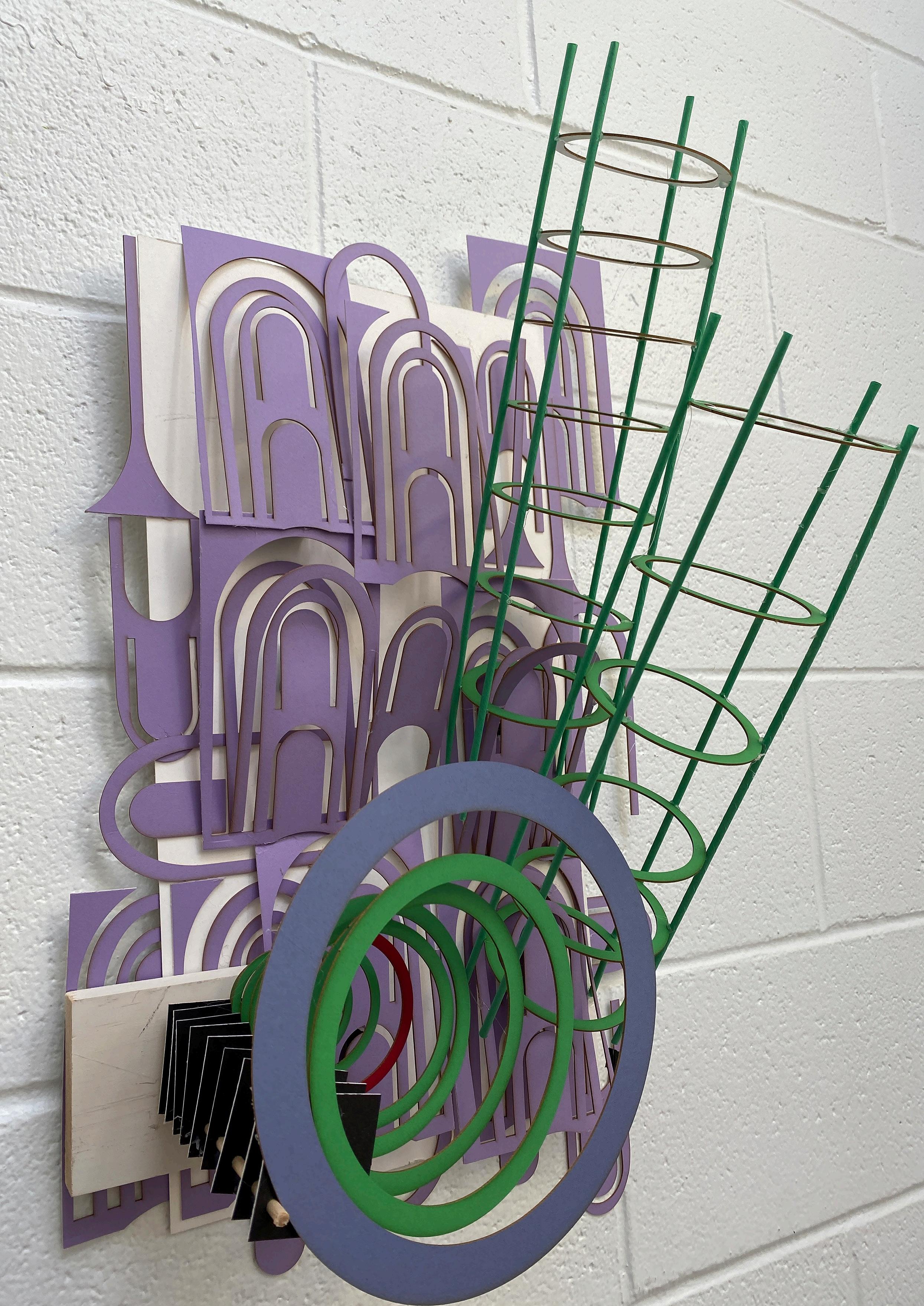 By BenAtkinson’25
By BenAtkinson’25
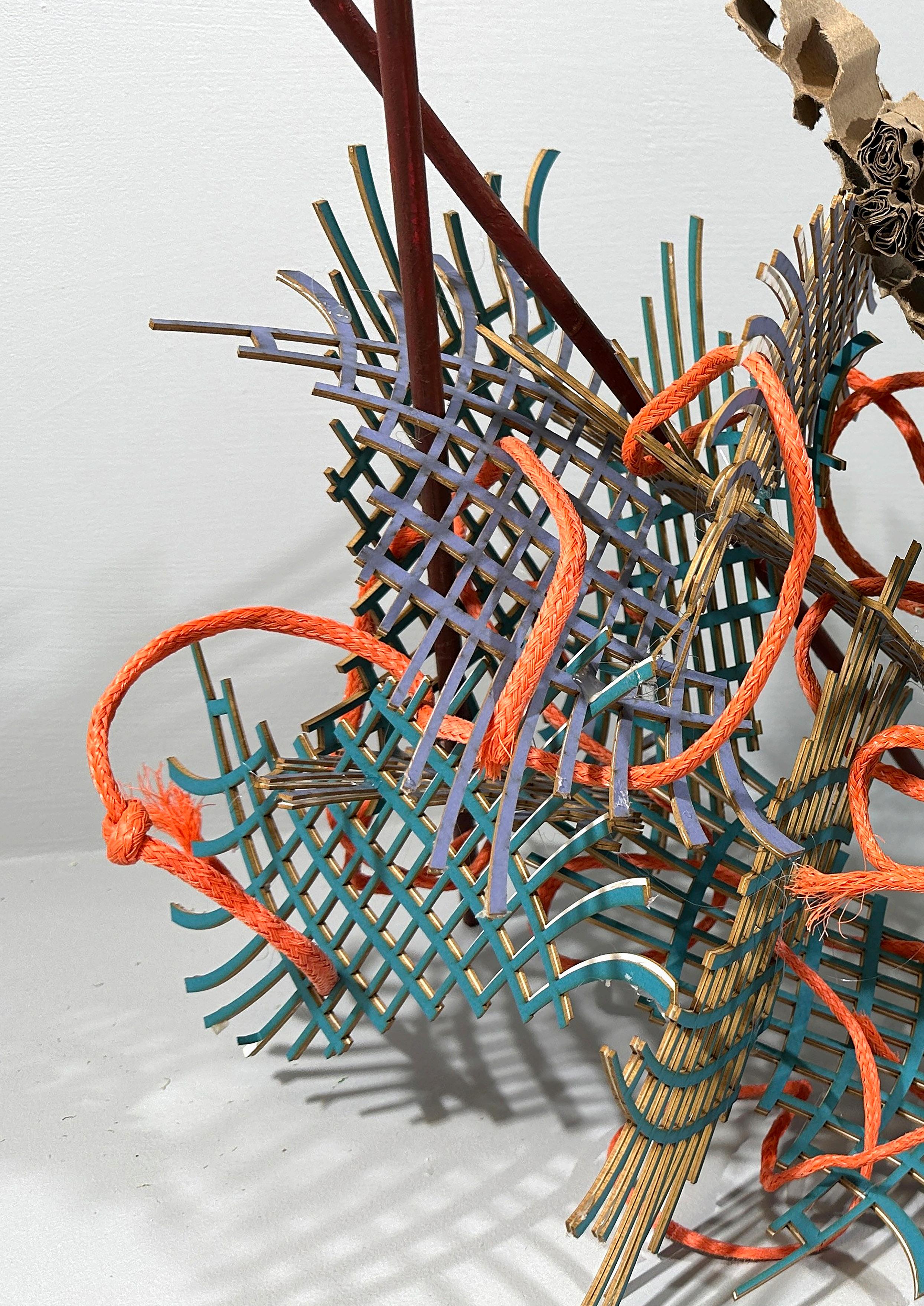
 By SebastianDeAngelis’24
By SebastianDeAngelis’24
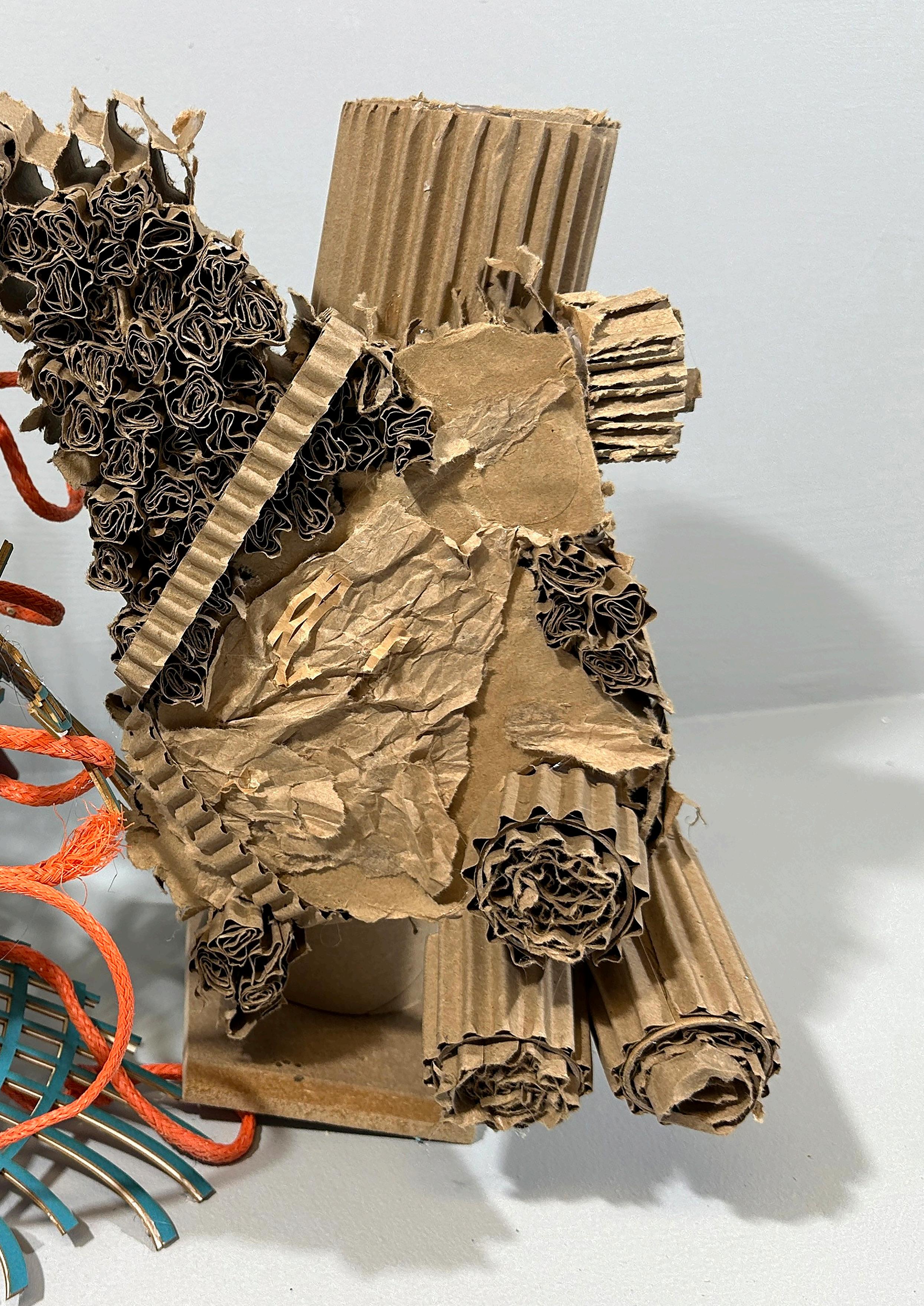

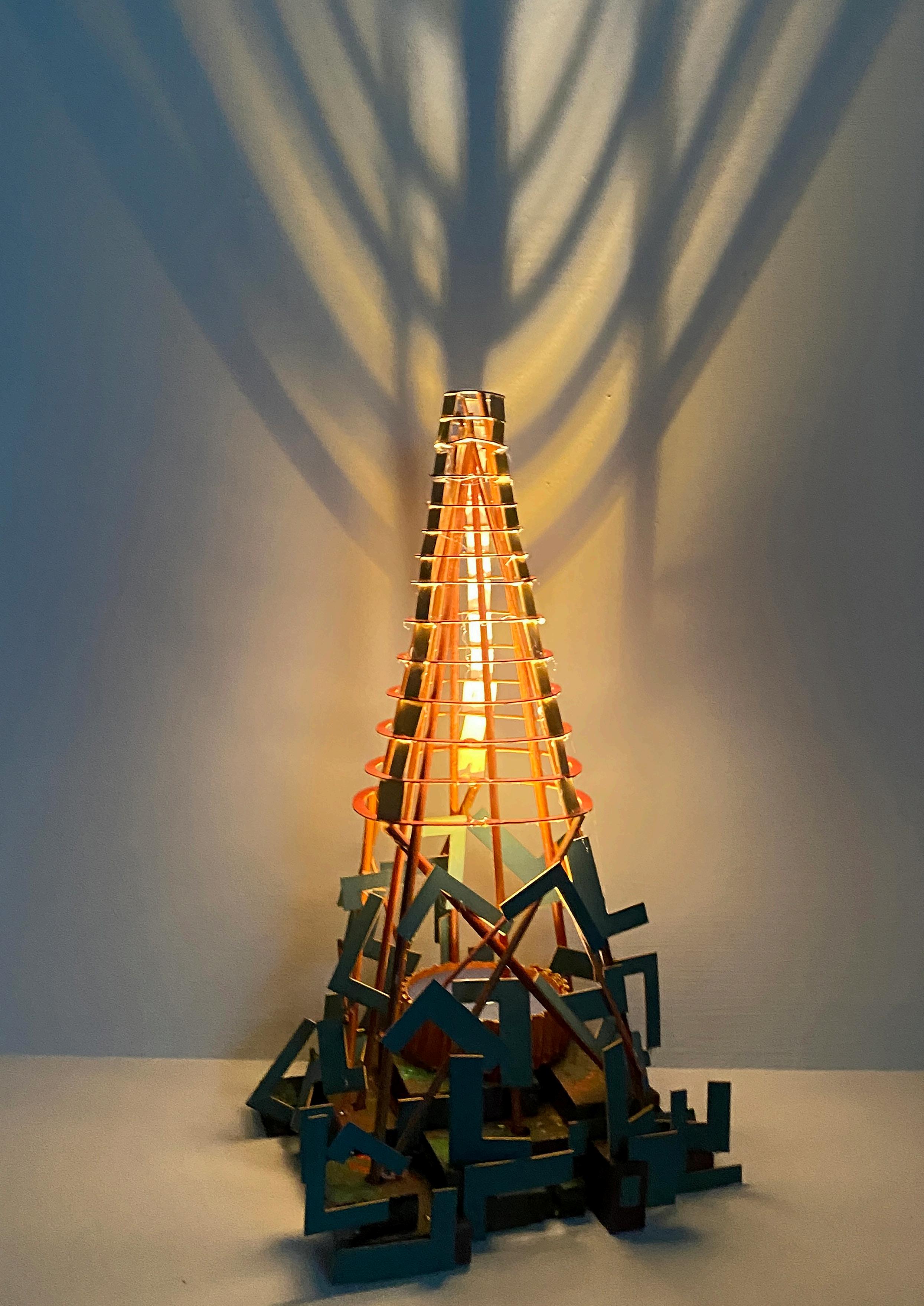
“So powerful is the light of unity that it can illuminate the whole earth.”
-
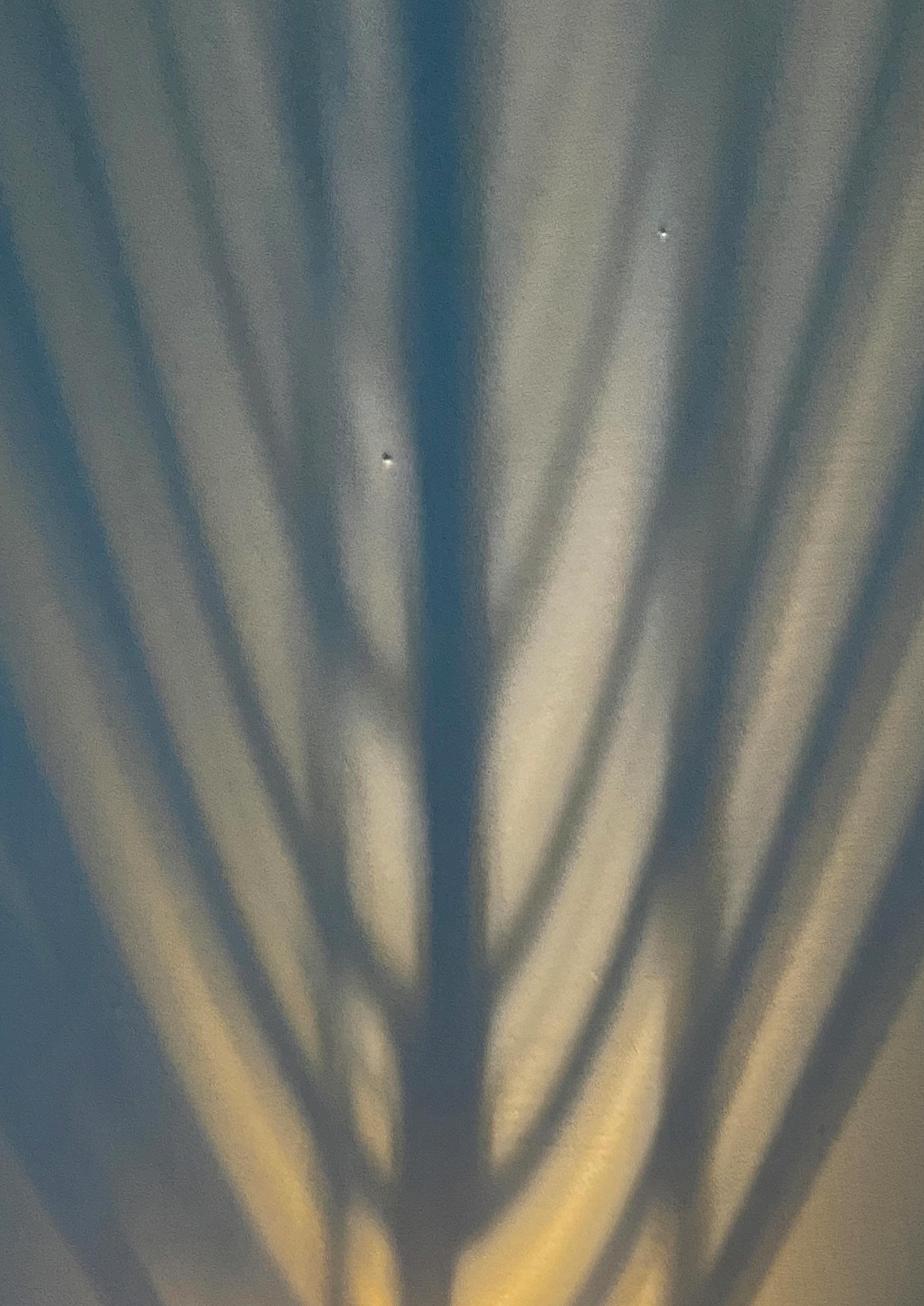 Baha’u’llah
Baha’u’llah
This year’s edition of Babel explores “Illuminating Words Through the Ages.” The sheer number and quality of pieces submitted to this 10th Edition speaks to the diversity of our community and our desire to share in culture. With languages ranging from Arabic, Chinese, Gallego, Greek and even Tigrinya (to name a few), the diversity of this year’s submissions highlights the number of languages spoken in our community.
We took a new approach in presenting our student pieces this year. Rather than past editions where we divided the magazine by language, the backbone of this year’s magazine is a timeline of literary pieces from poets around the world, telling a story of language through time. By putting pieces on a continuum we can begin to see themes across cultures and time. Starting with the writings of the ancient Greeks, continuing through to post-modern writings and concluding with our very own original student works, this year’s edition of Babel hopes to illuminate the evolution of language and punctuate our interconnectivity by highlighting our shared emotions, desires and values.
We hope you enjoyed this edition as much as we enjoyed bringing it together.
- Sebastian Otero DeAngelis ’24
